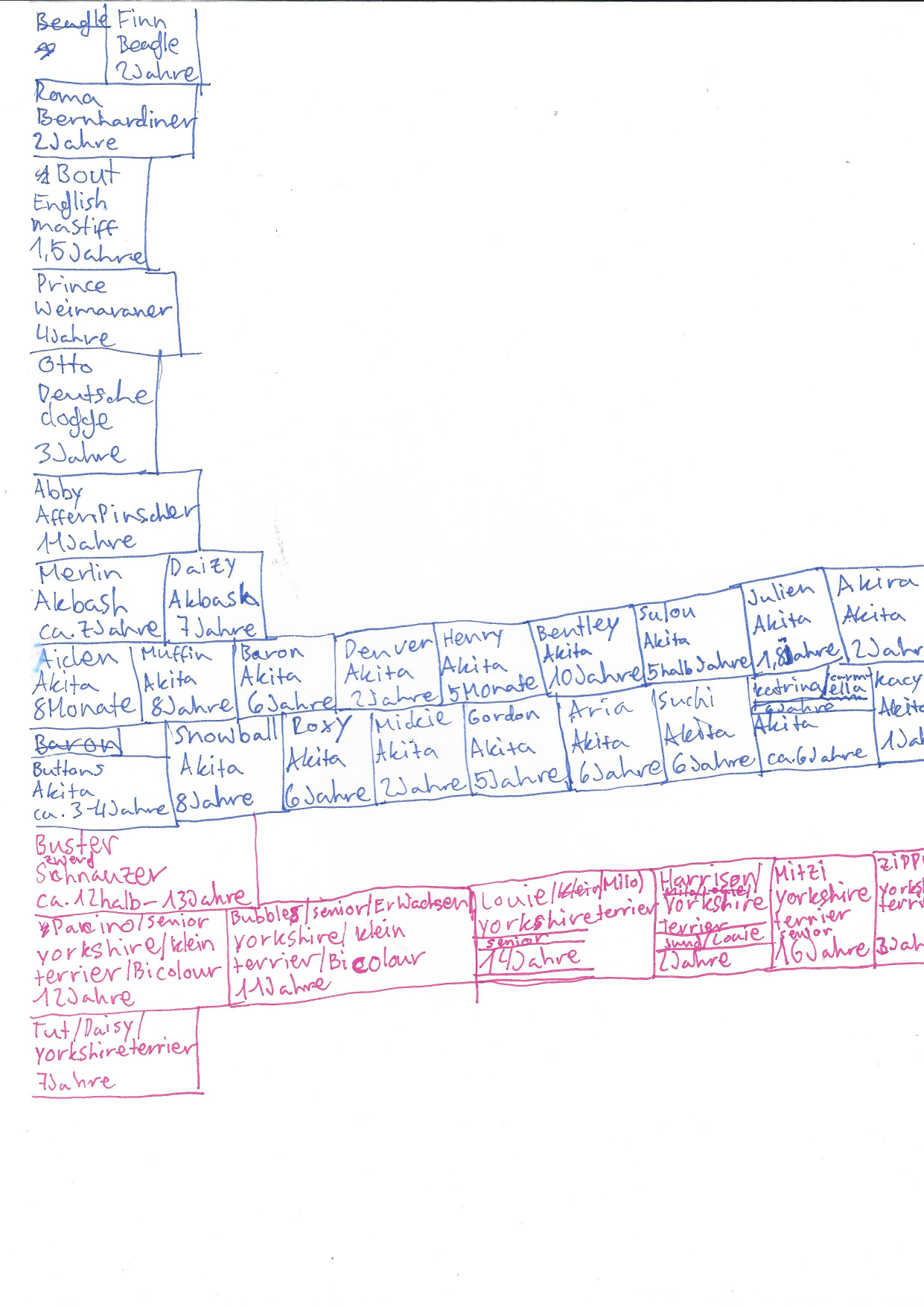
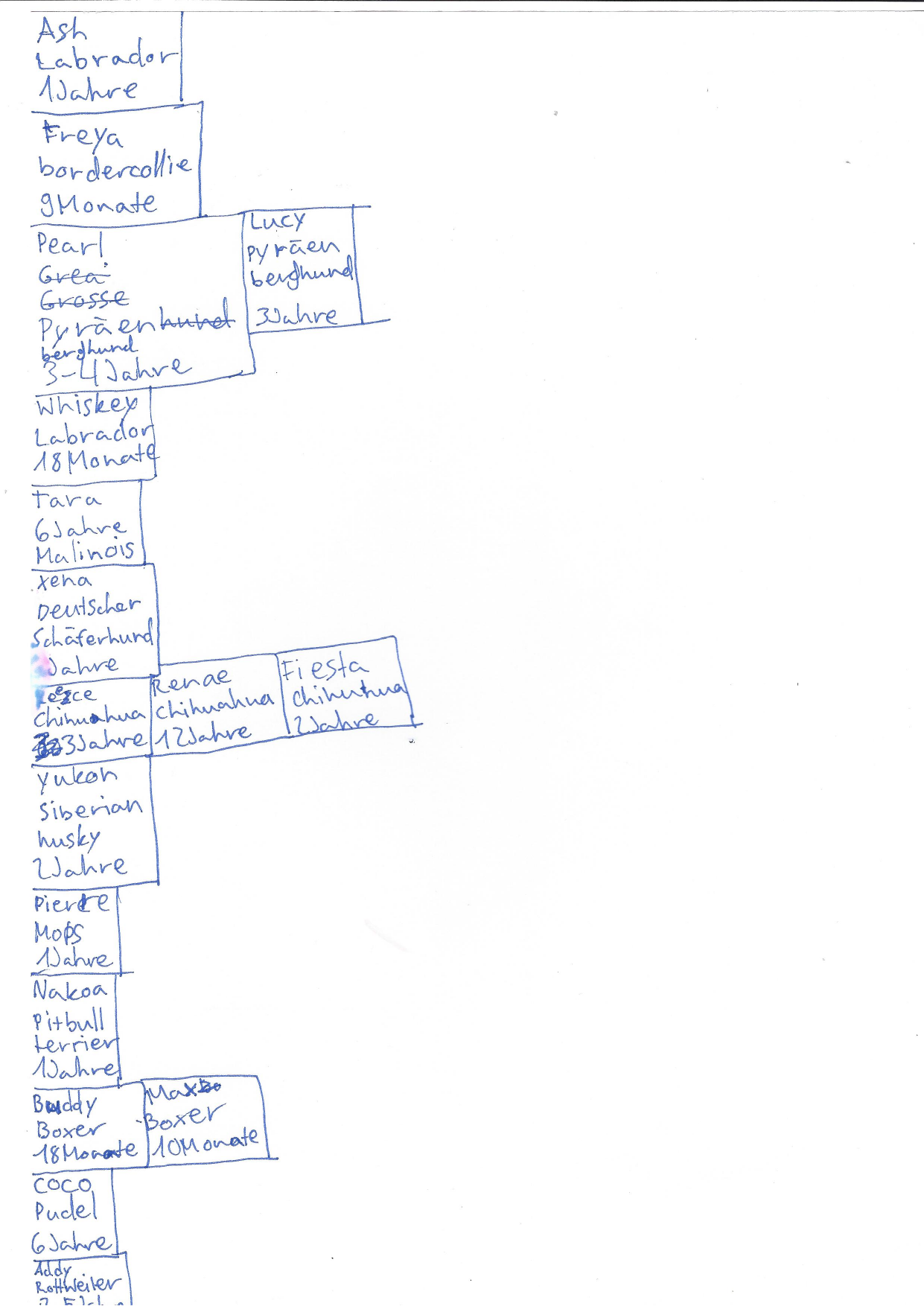
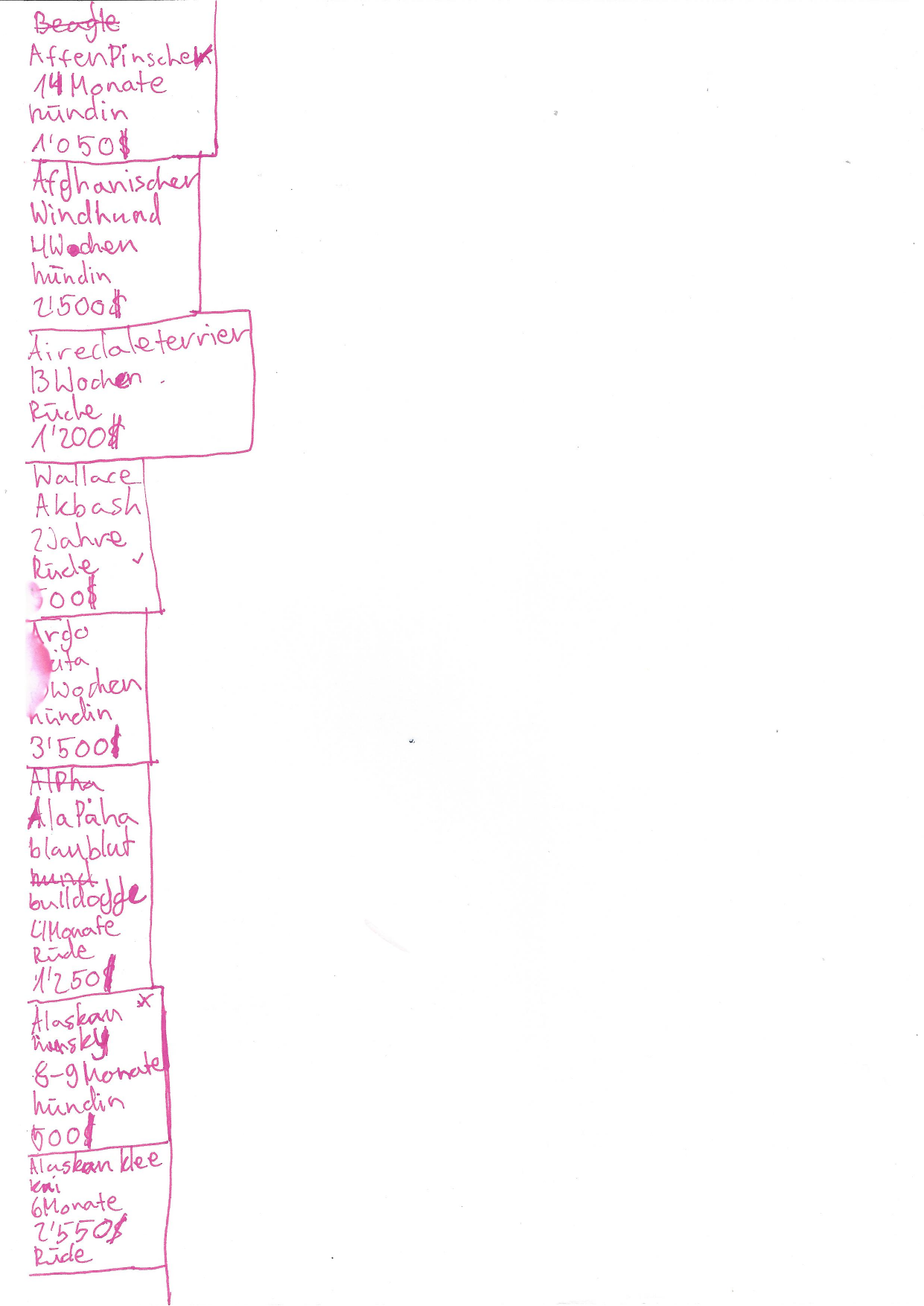
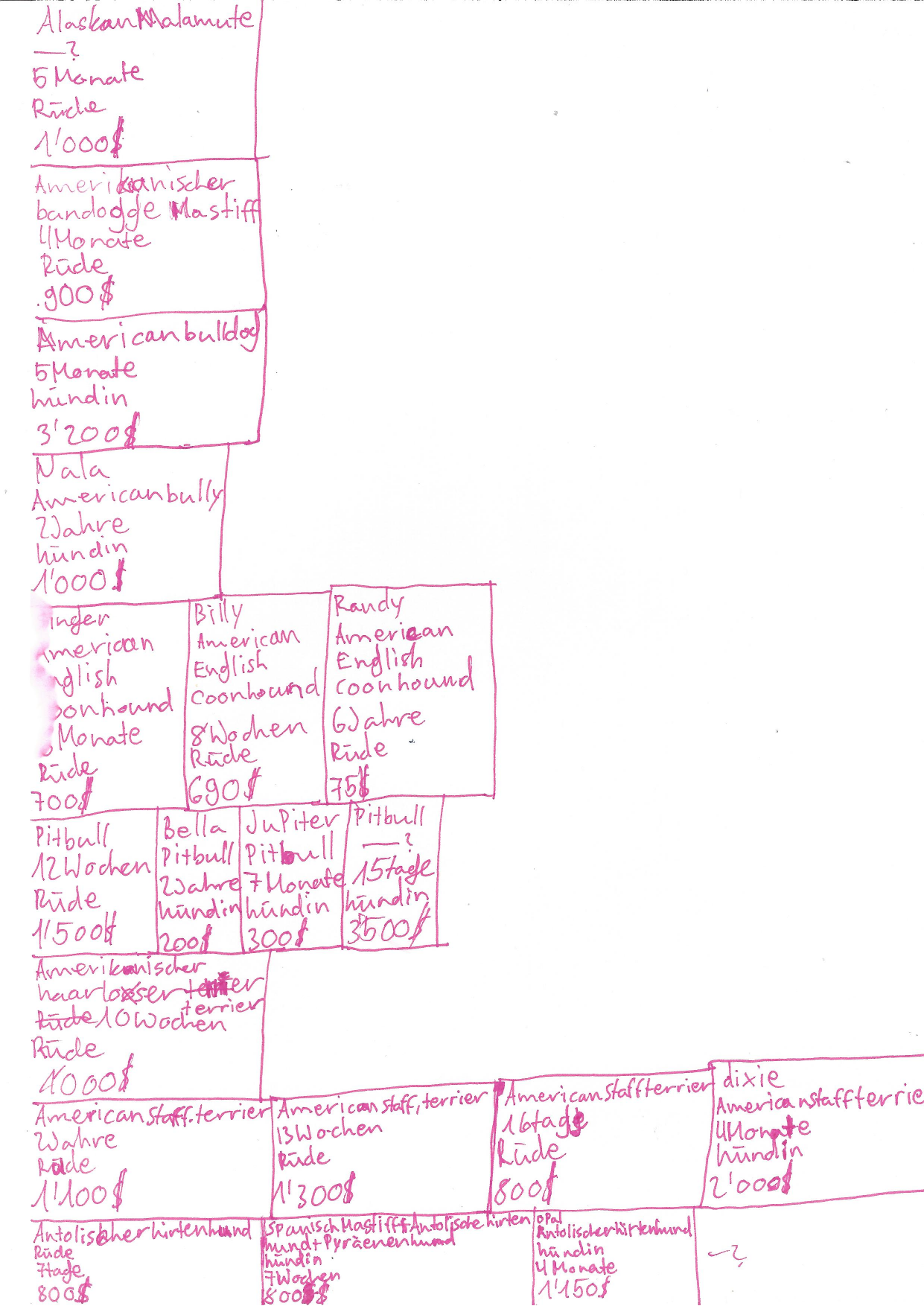
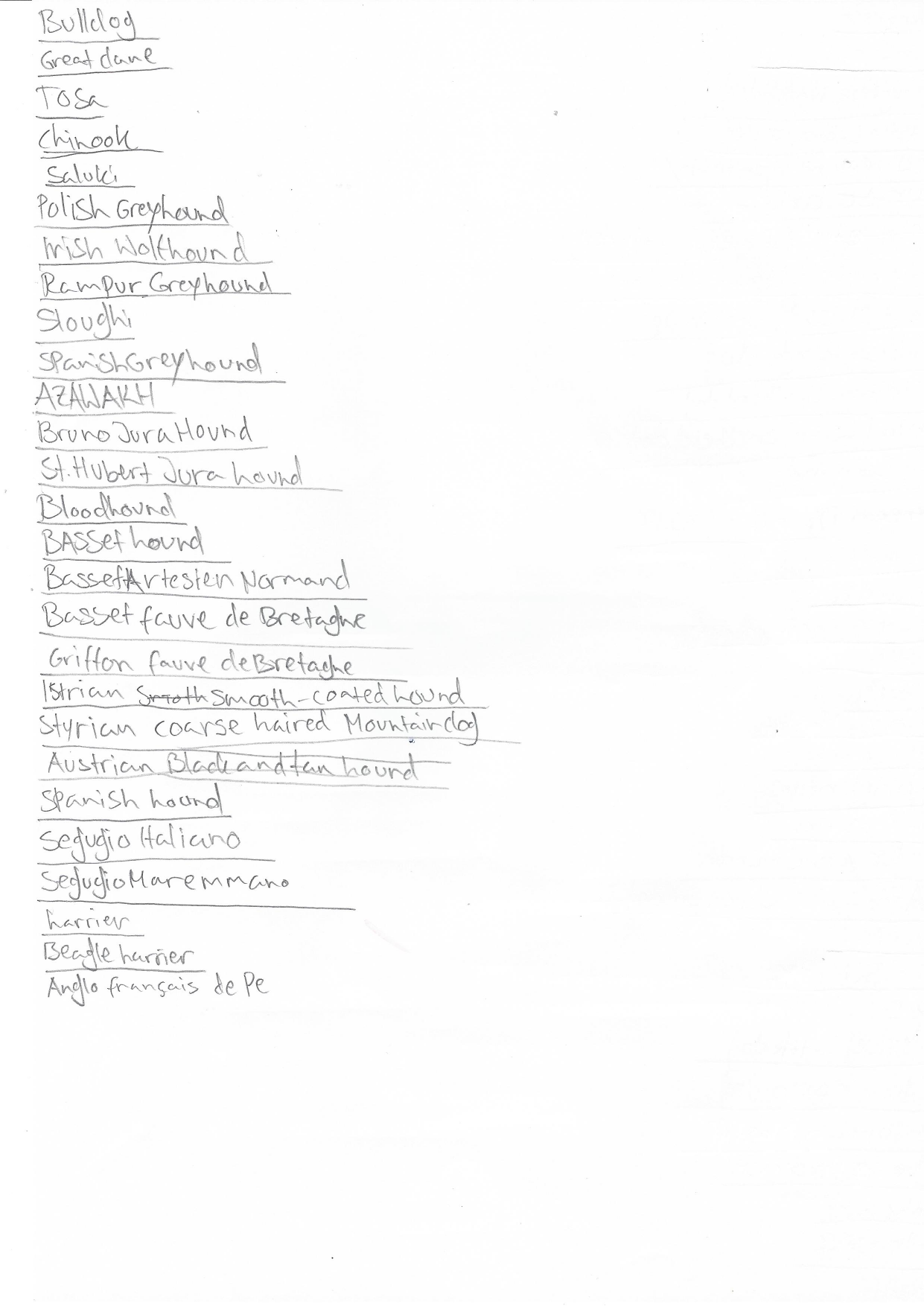
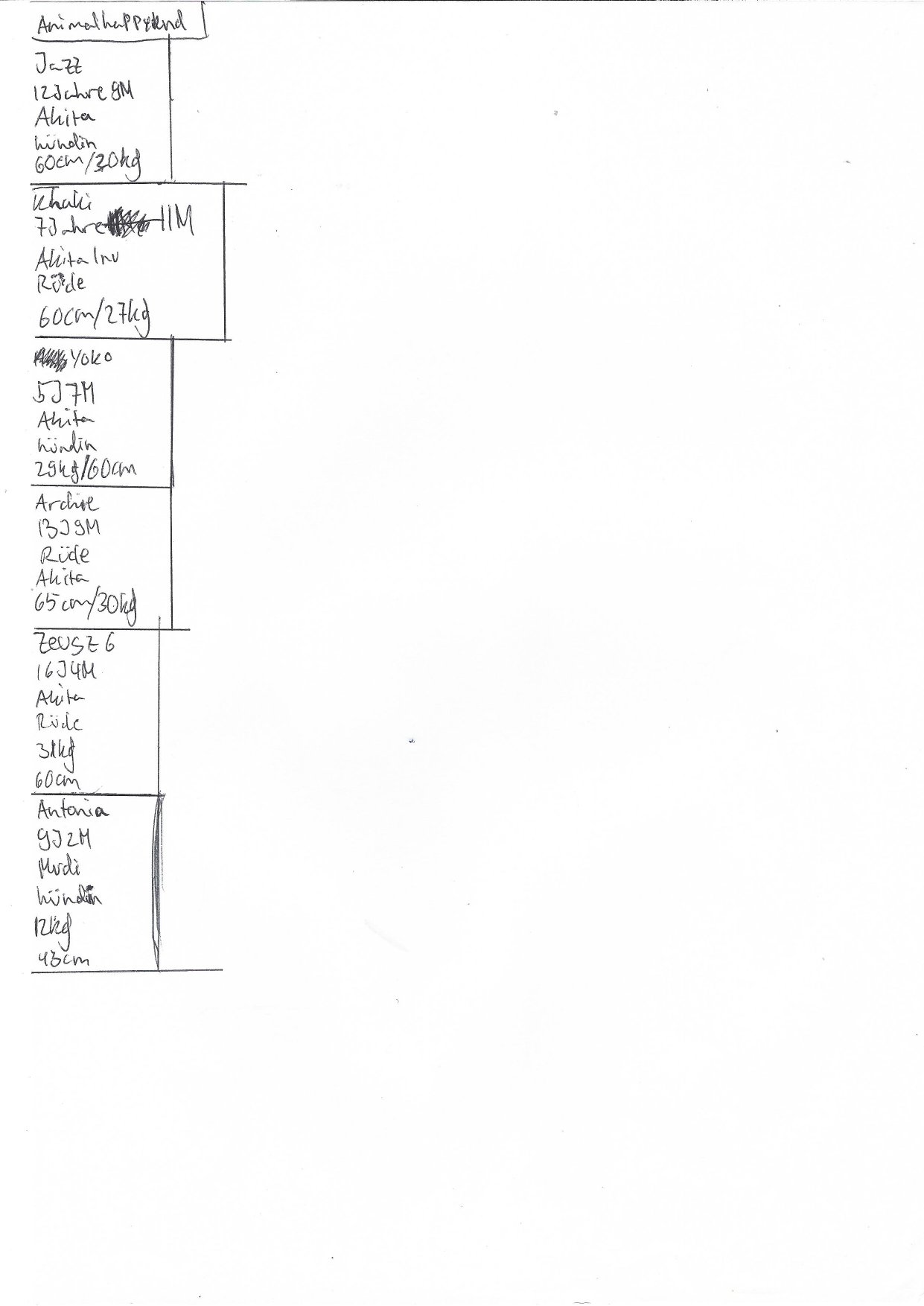
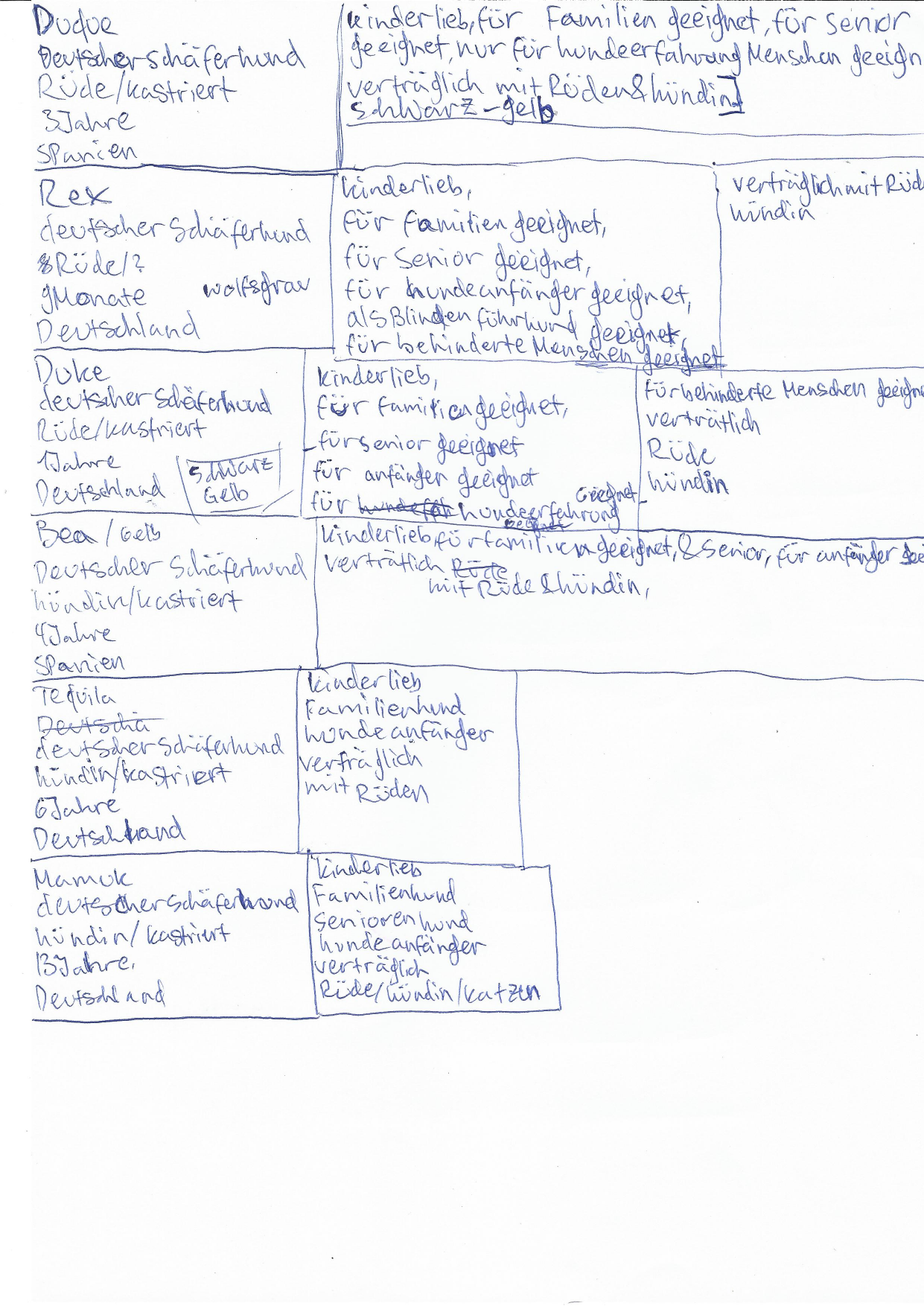
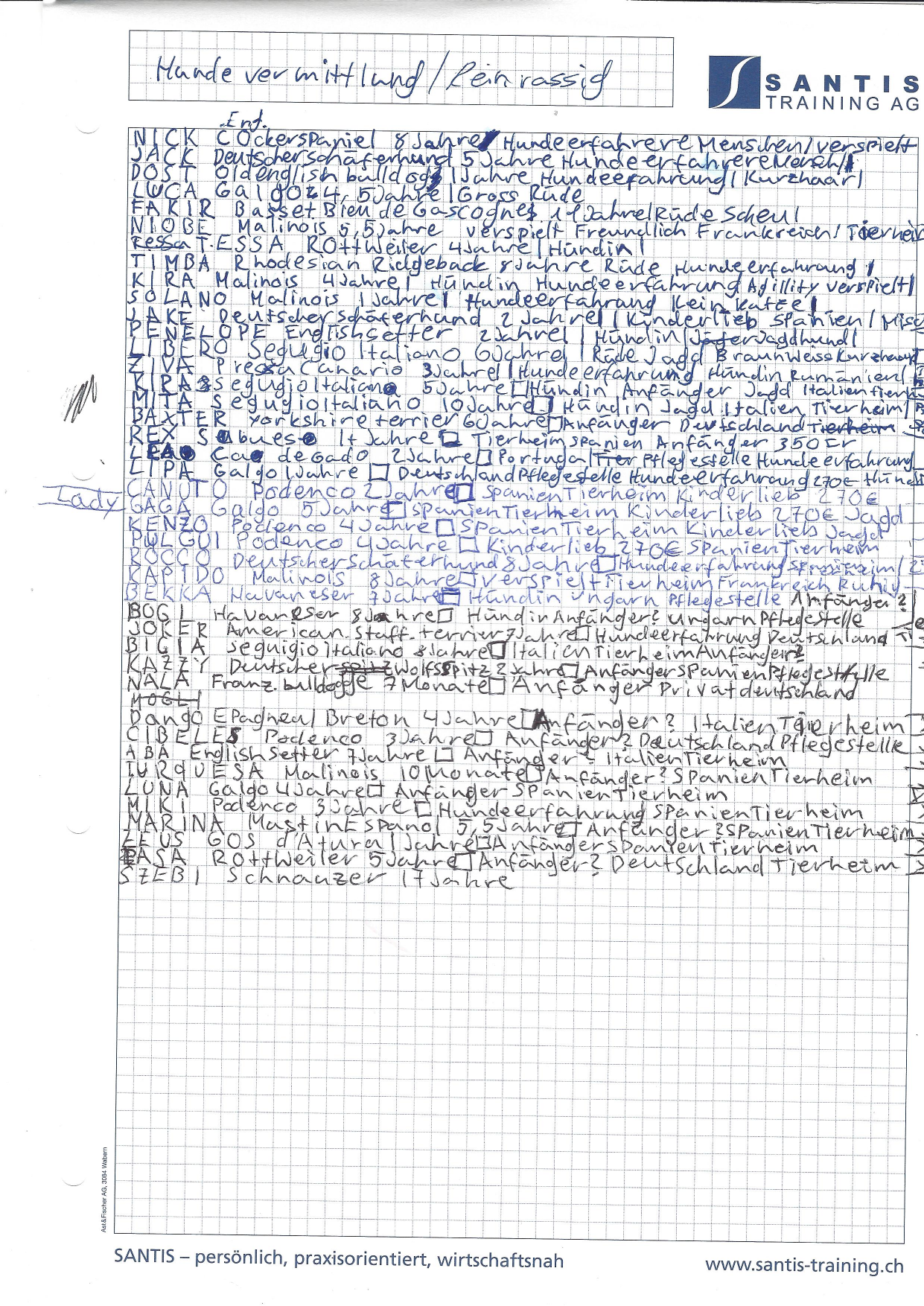
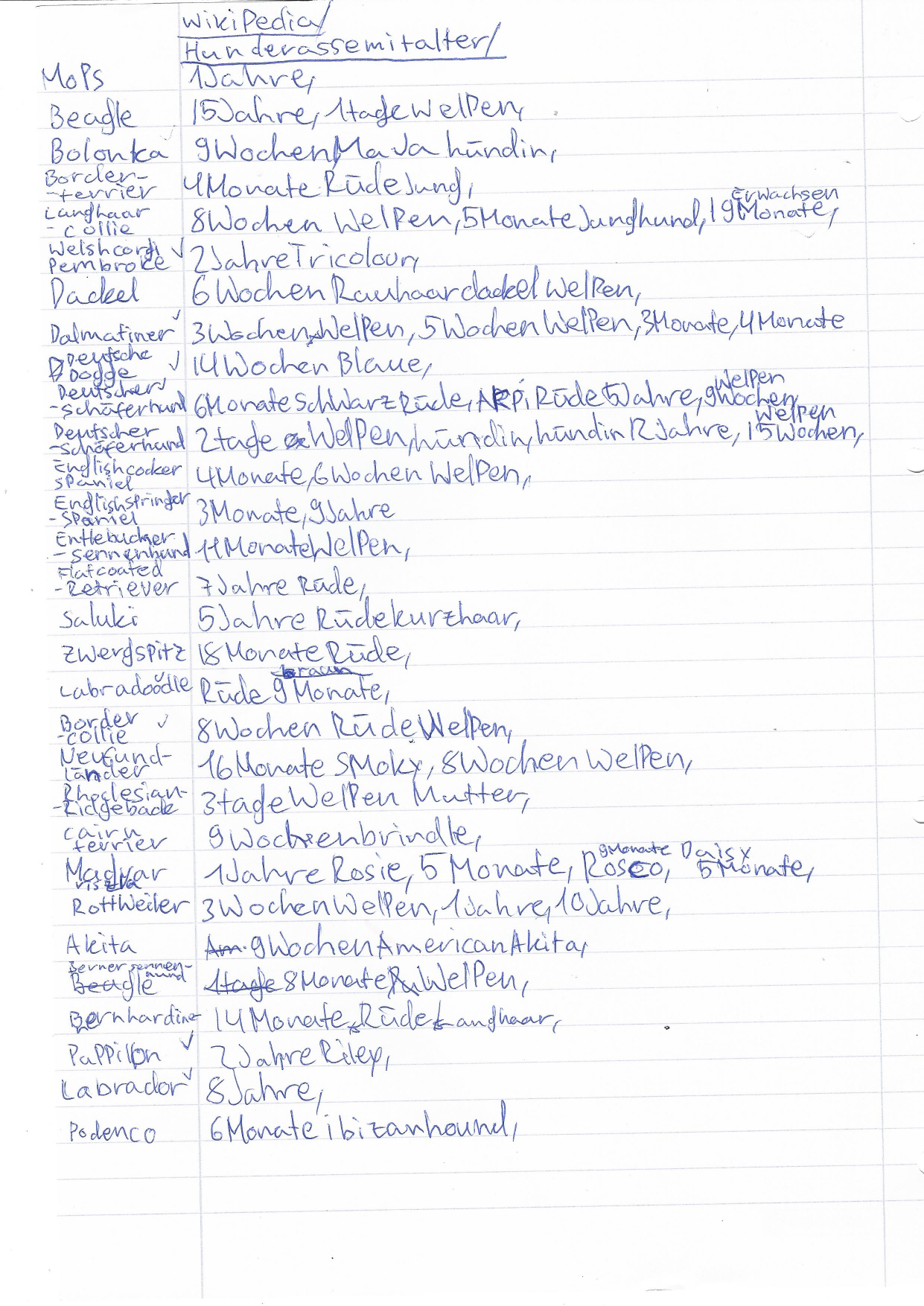
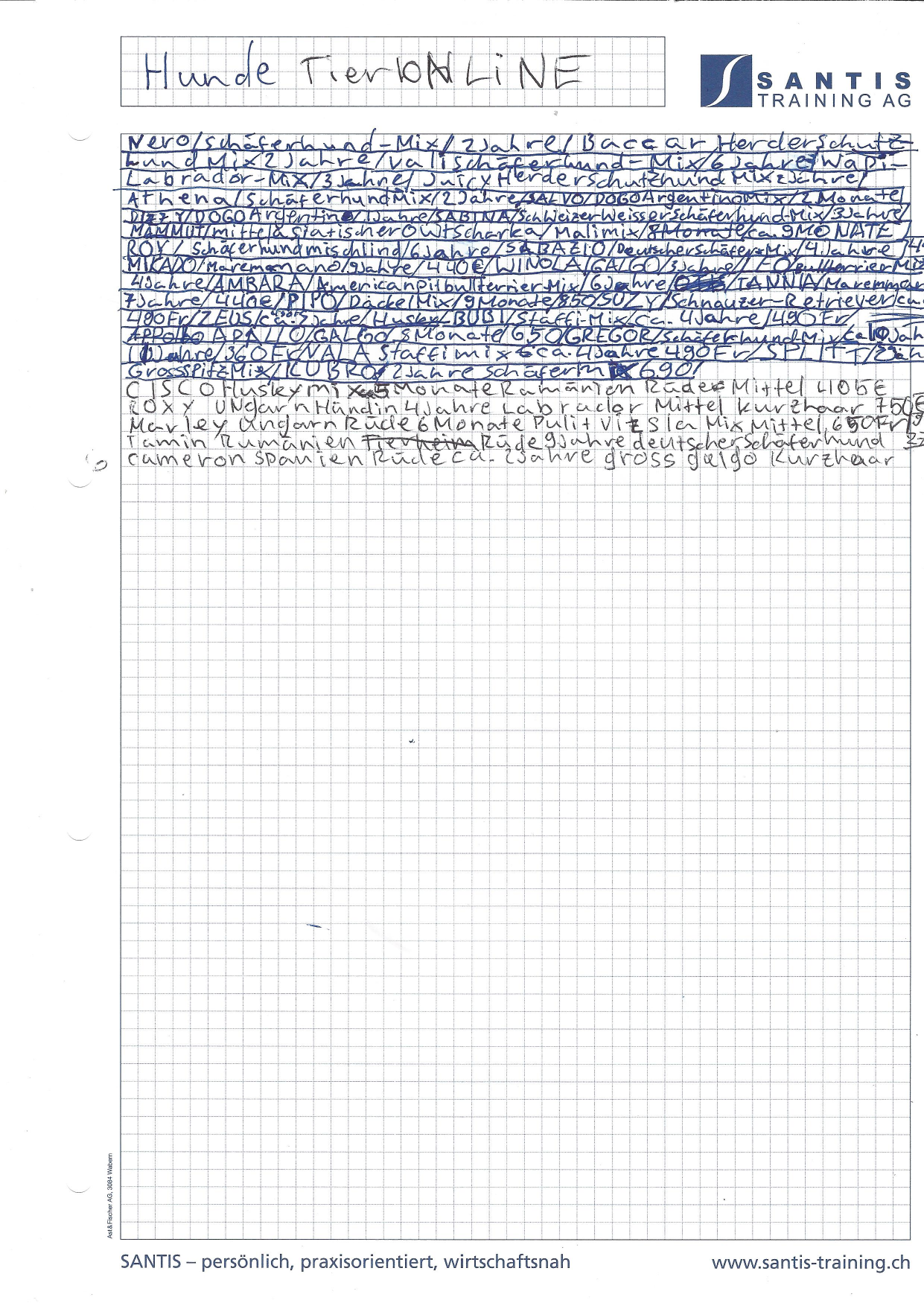
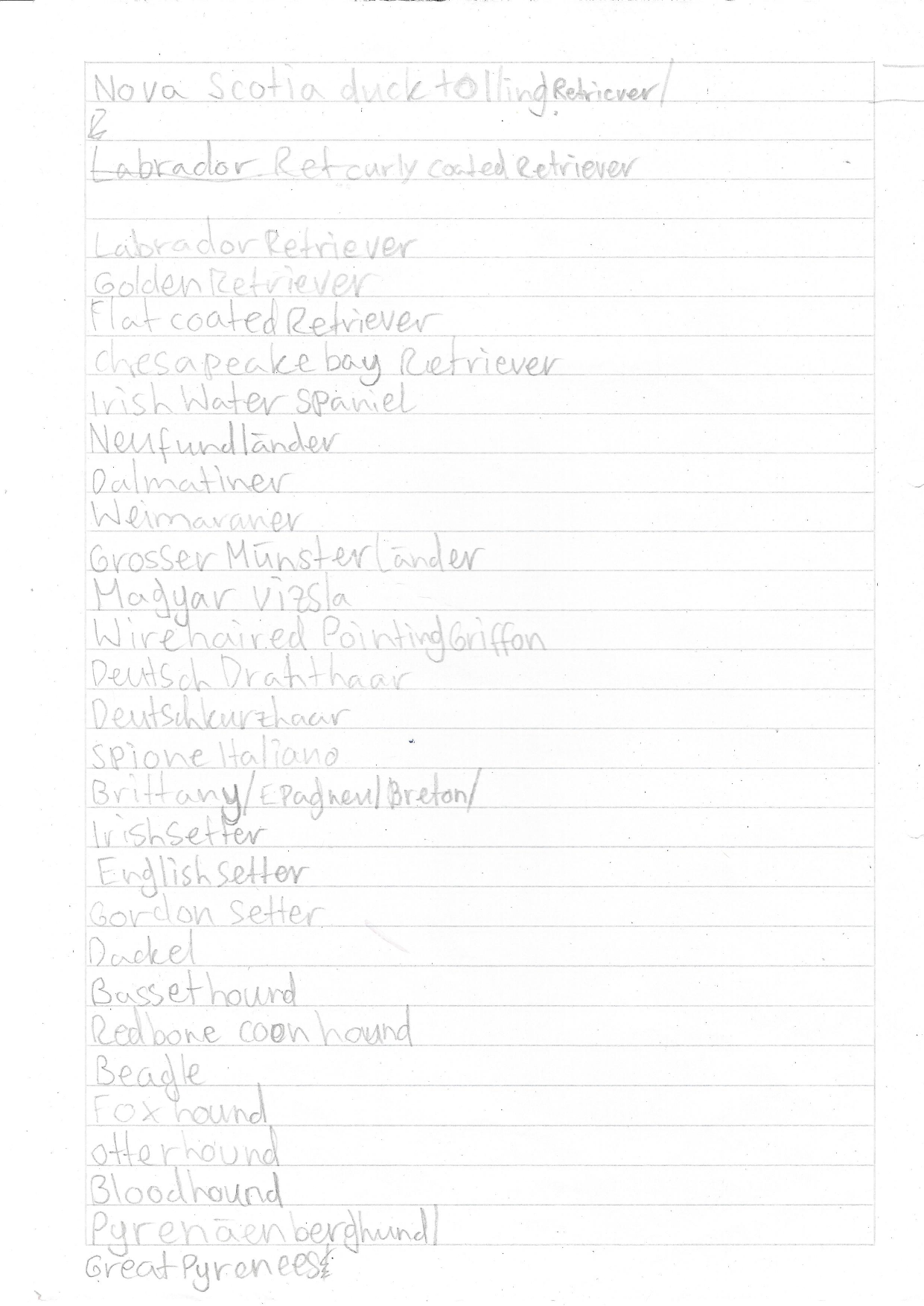
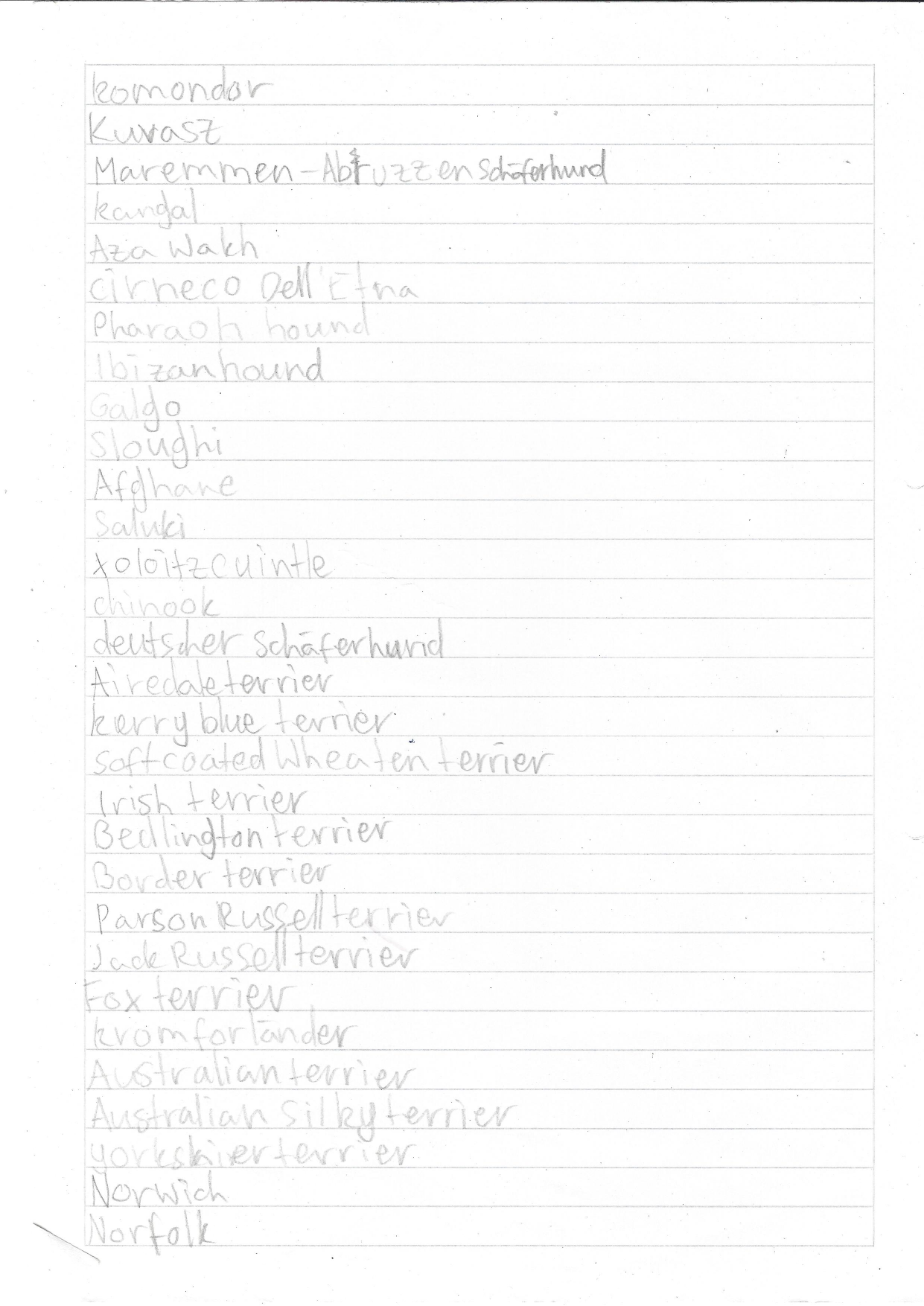
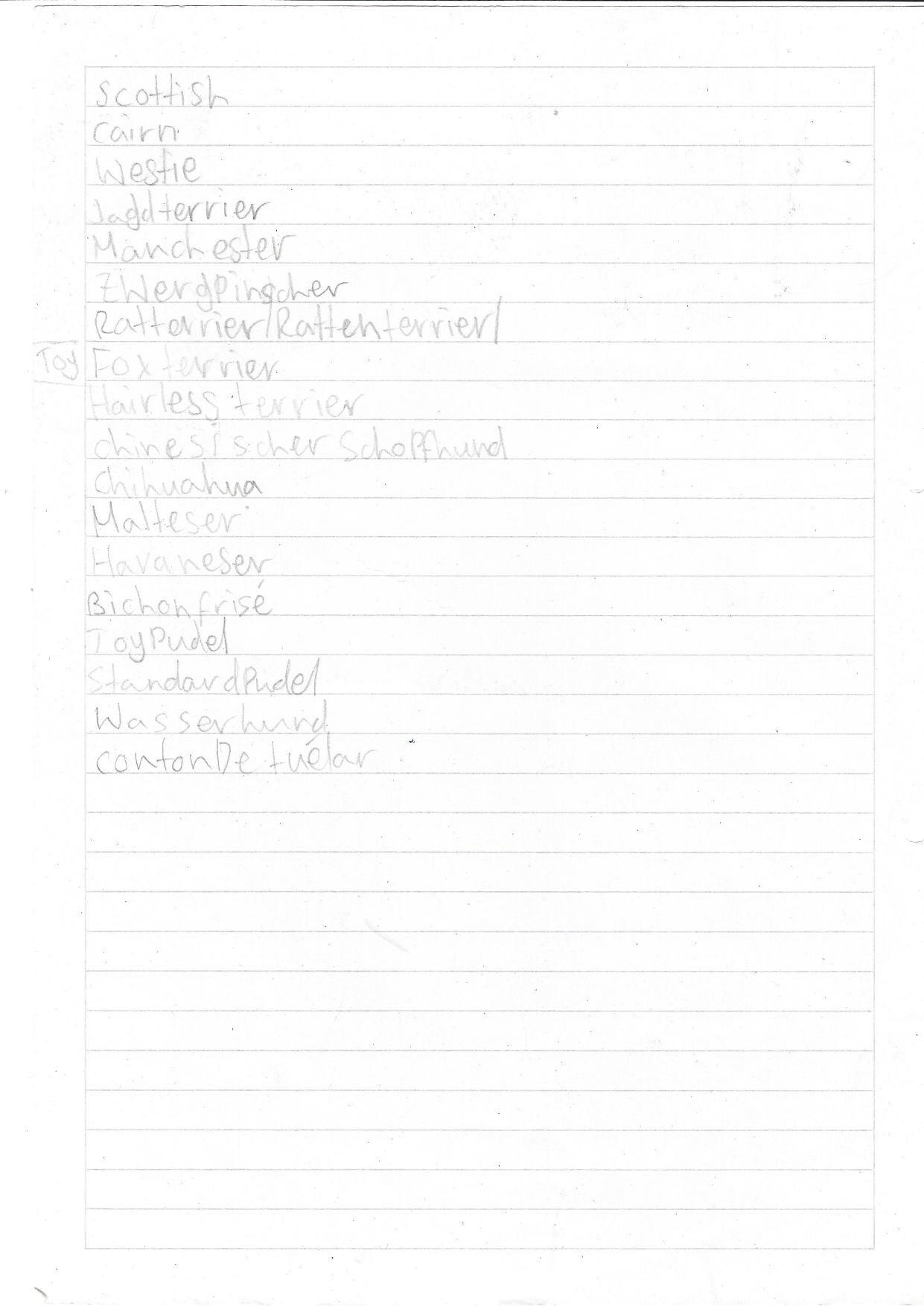
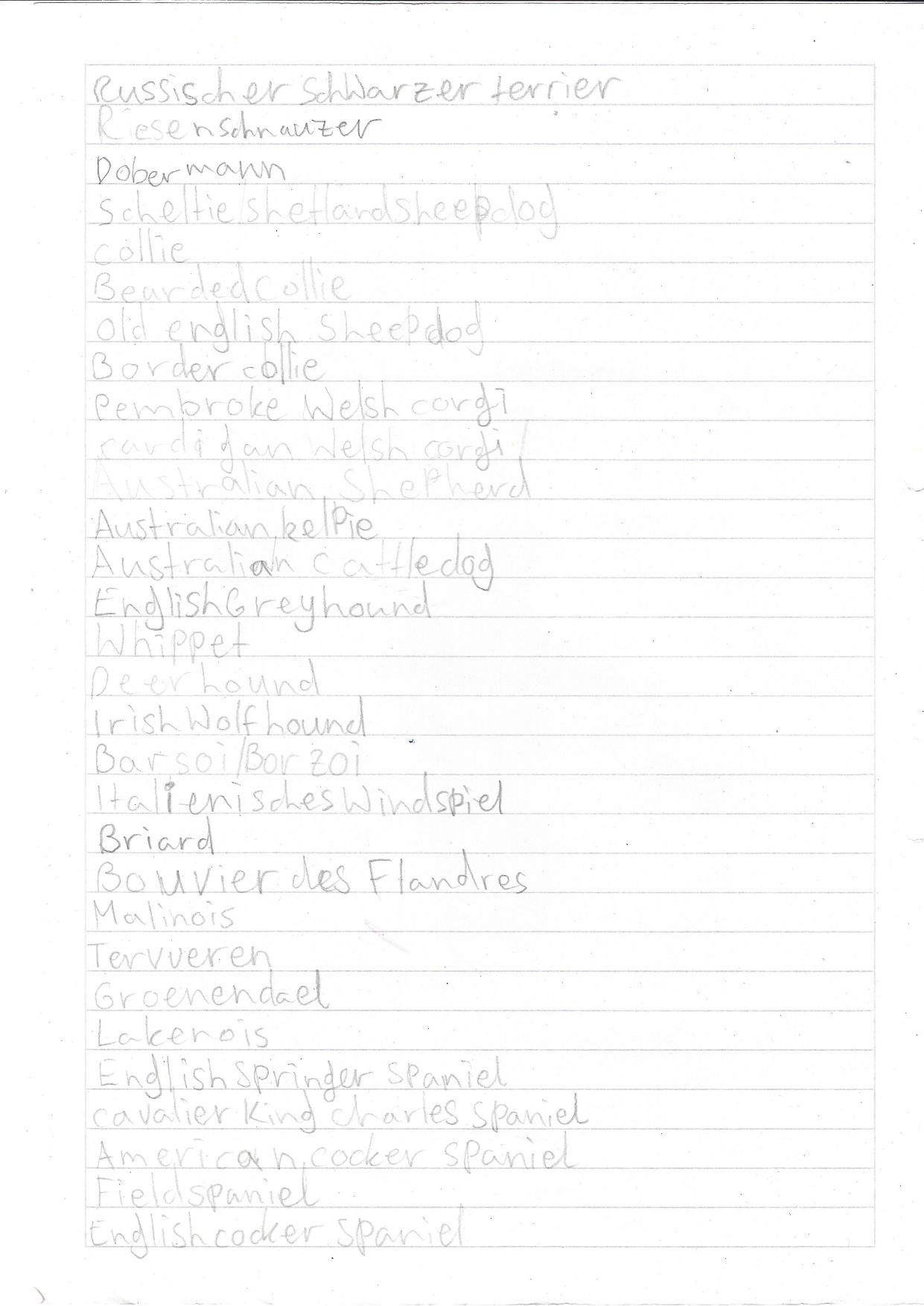
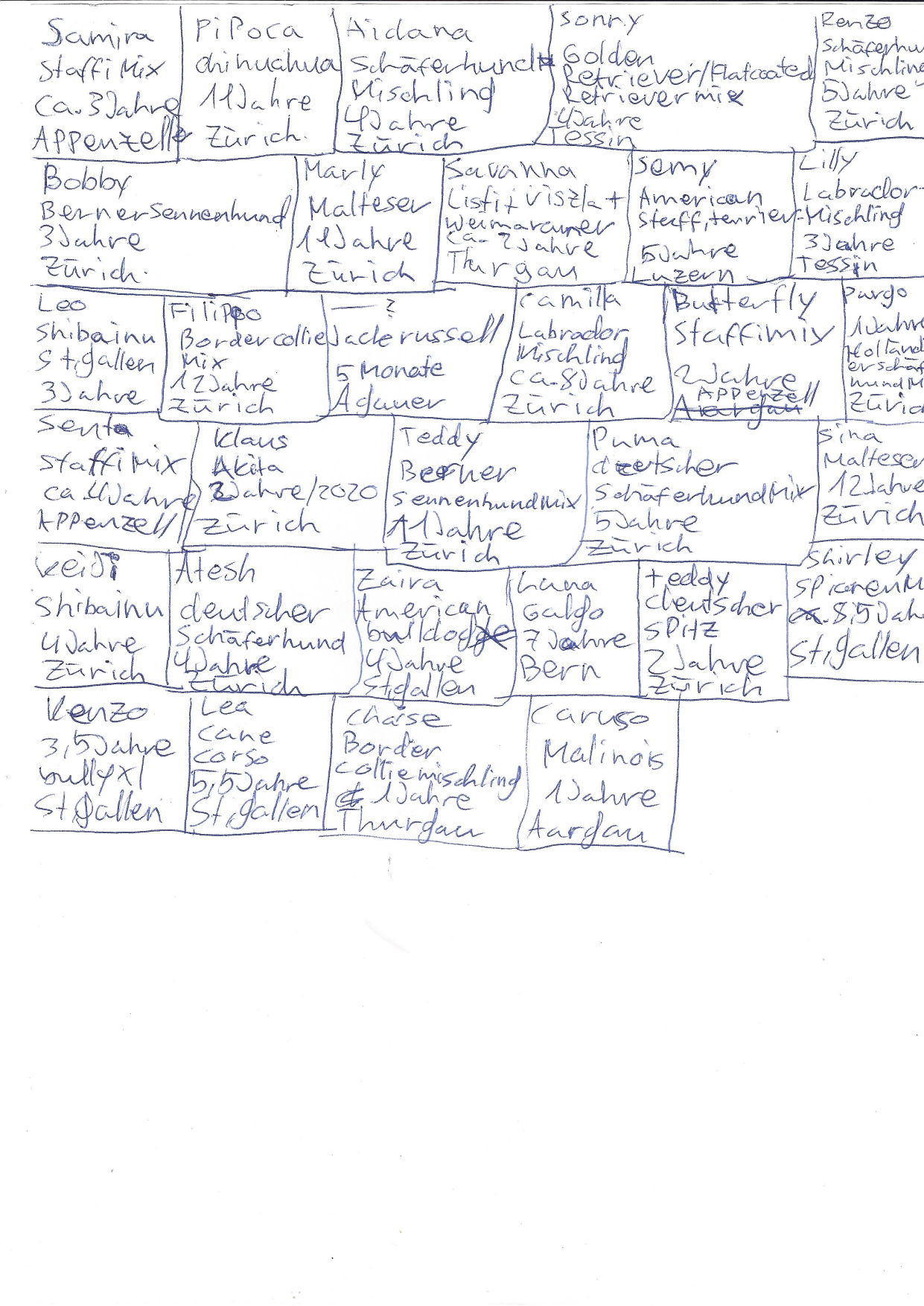
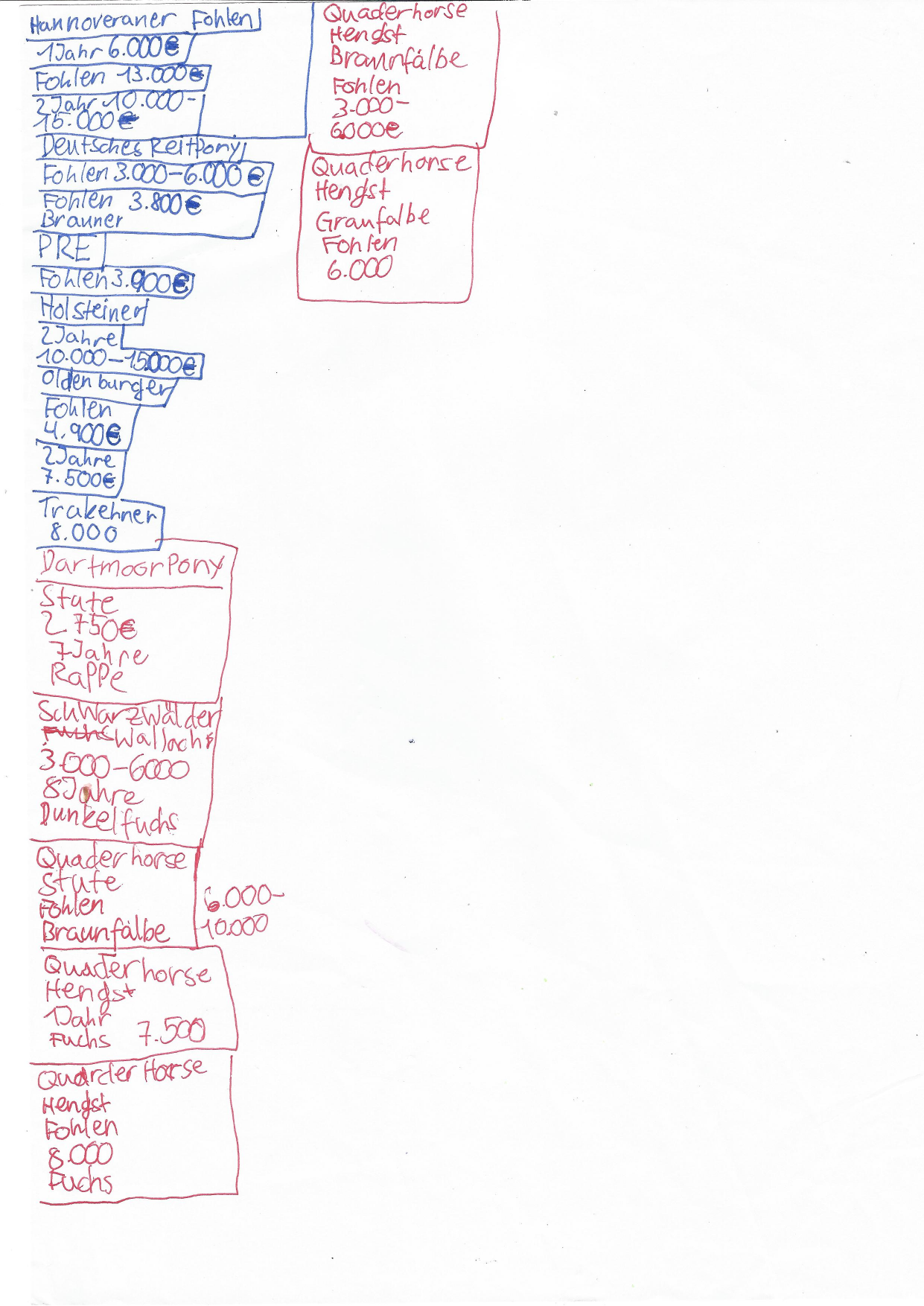
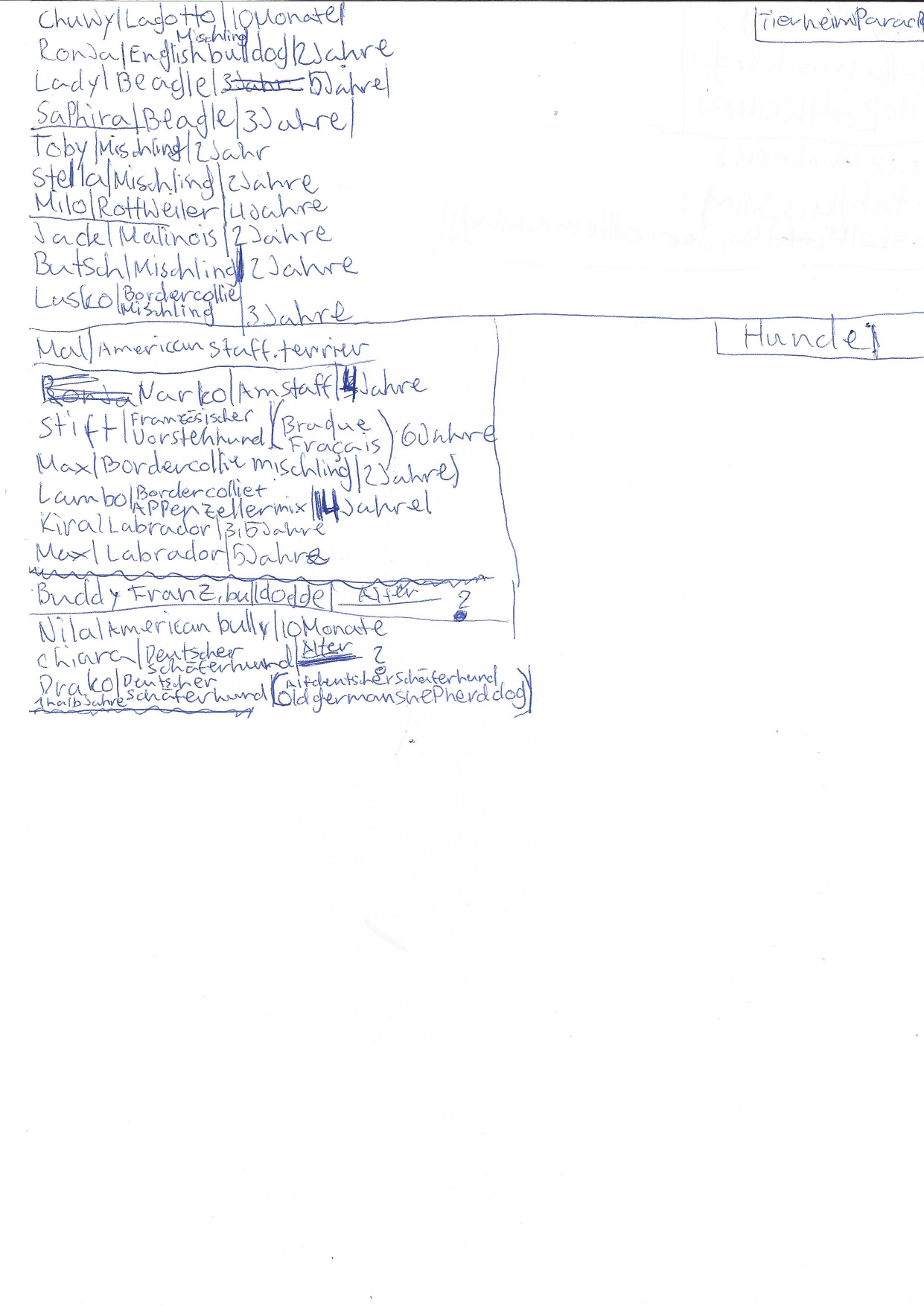
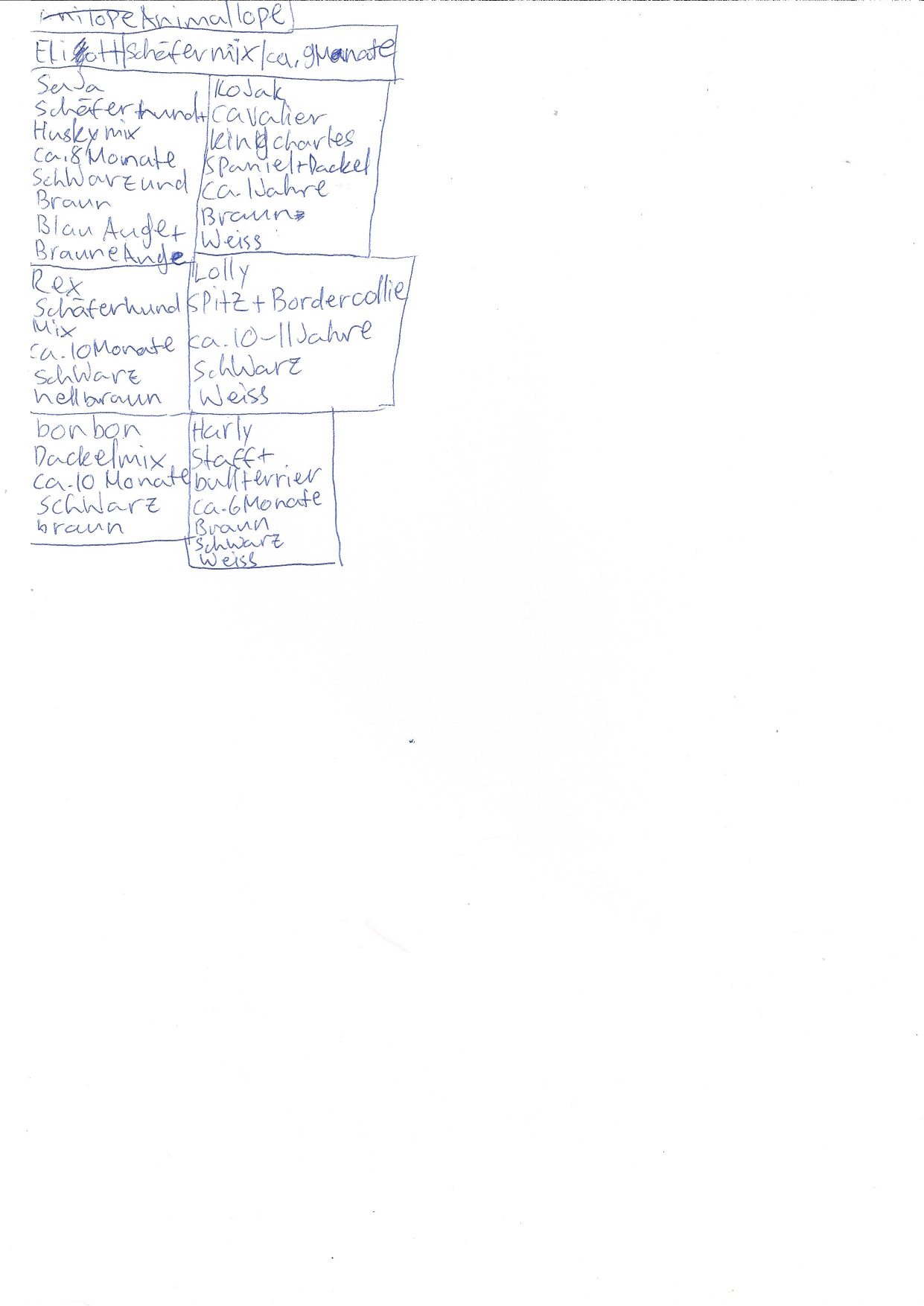
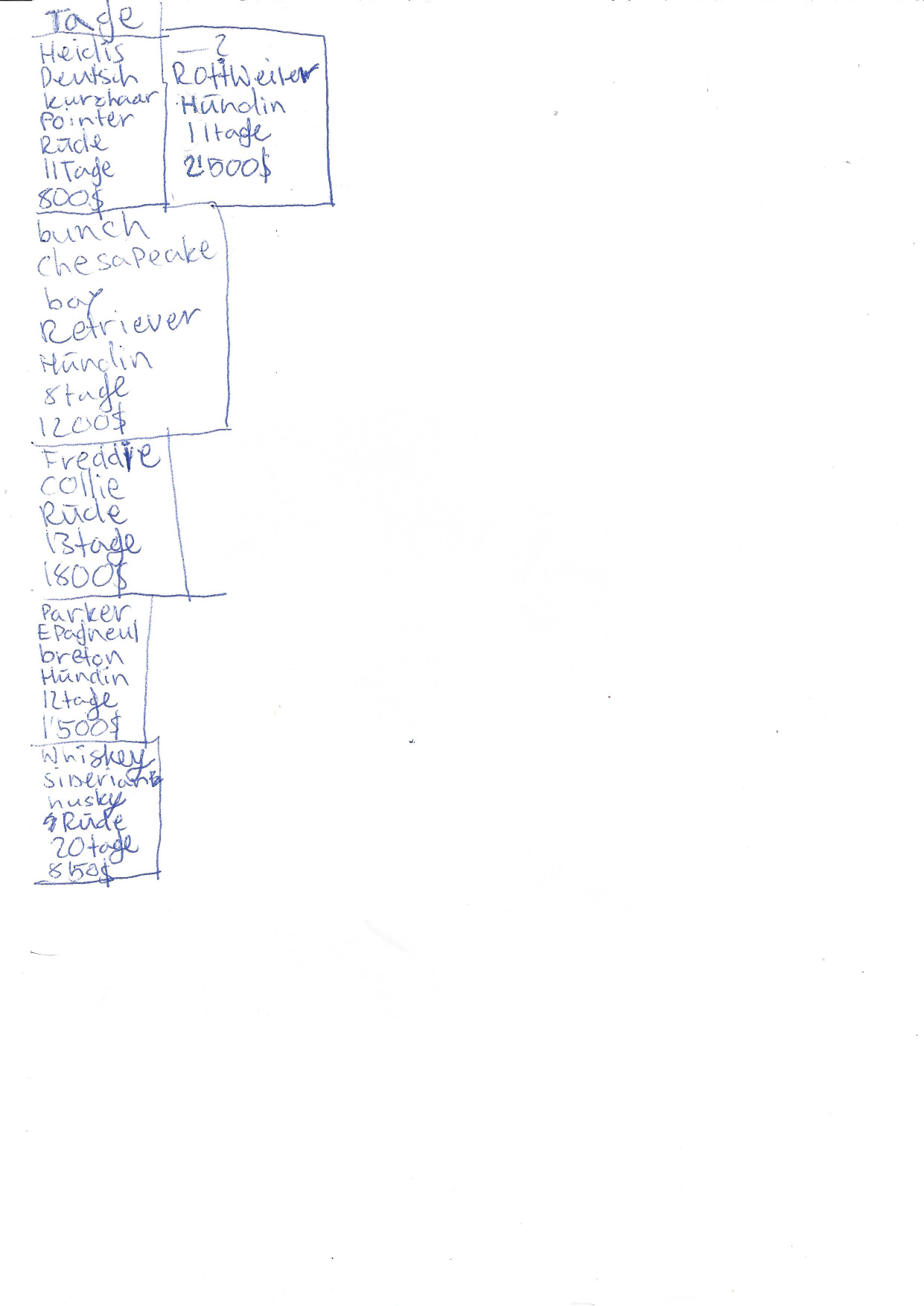
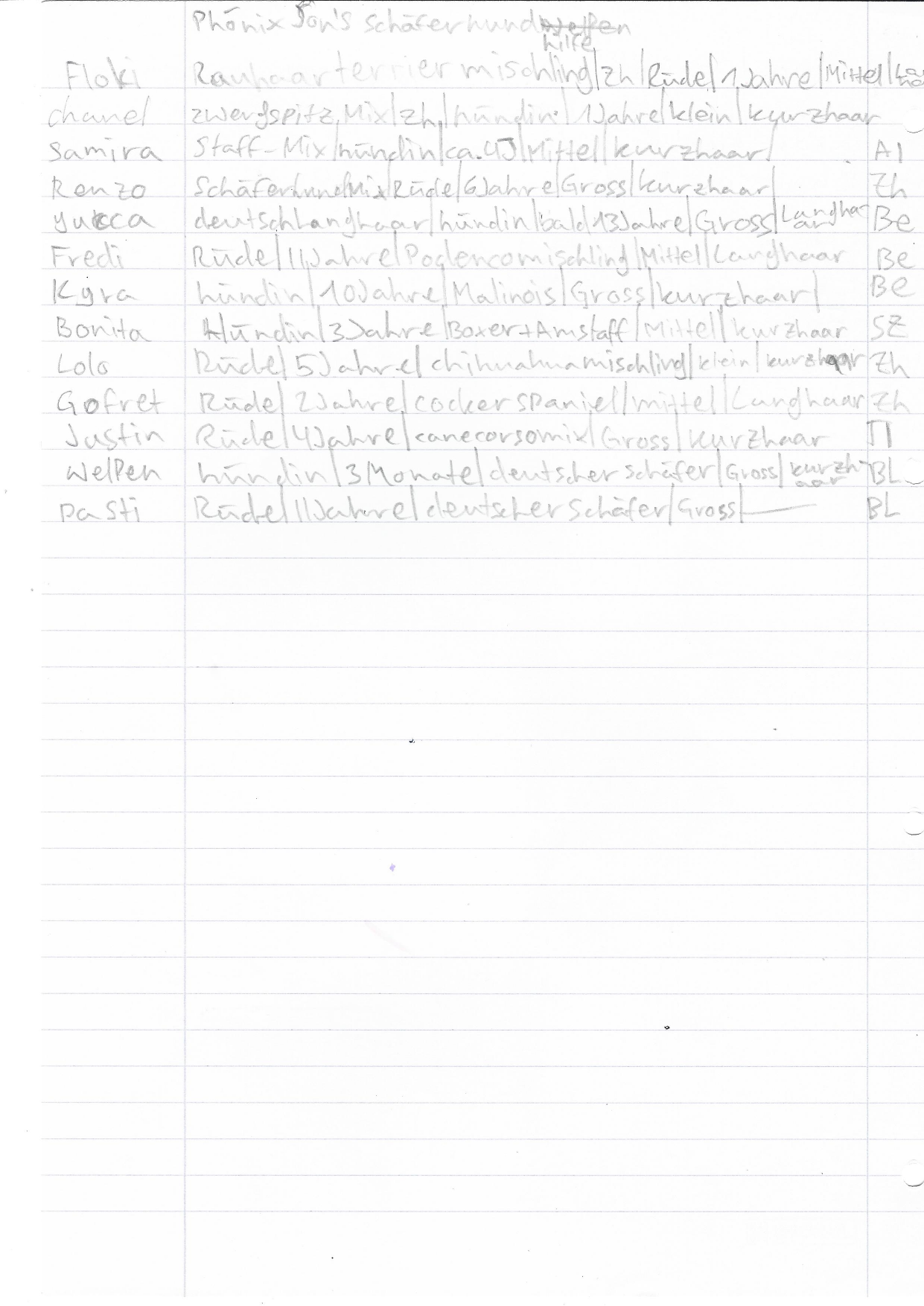
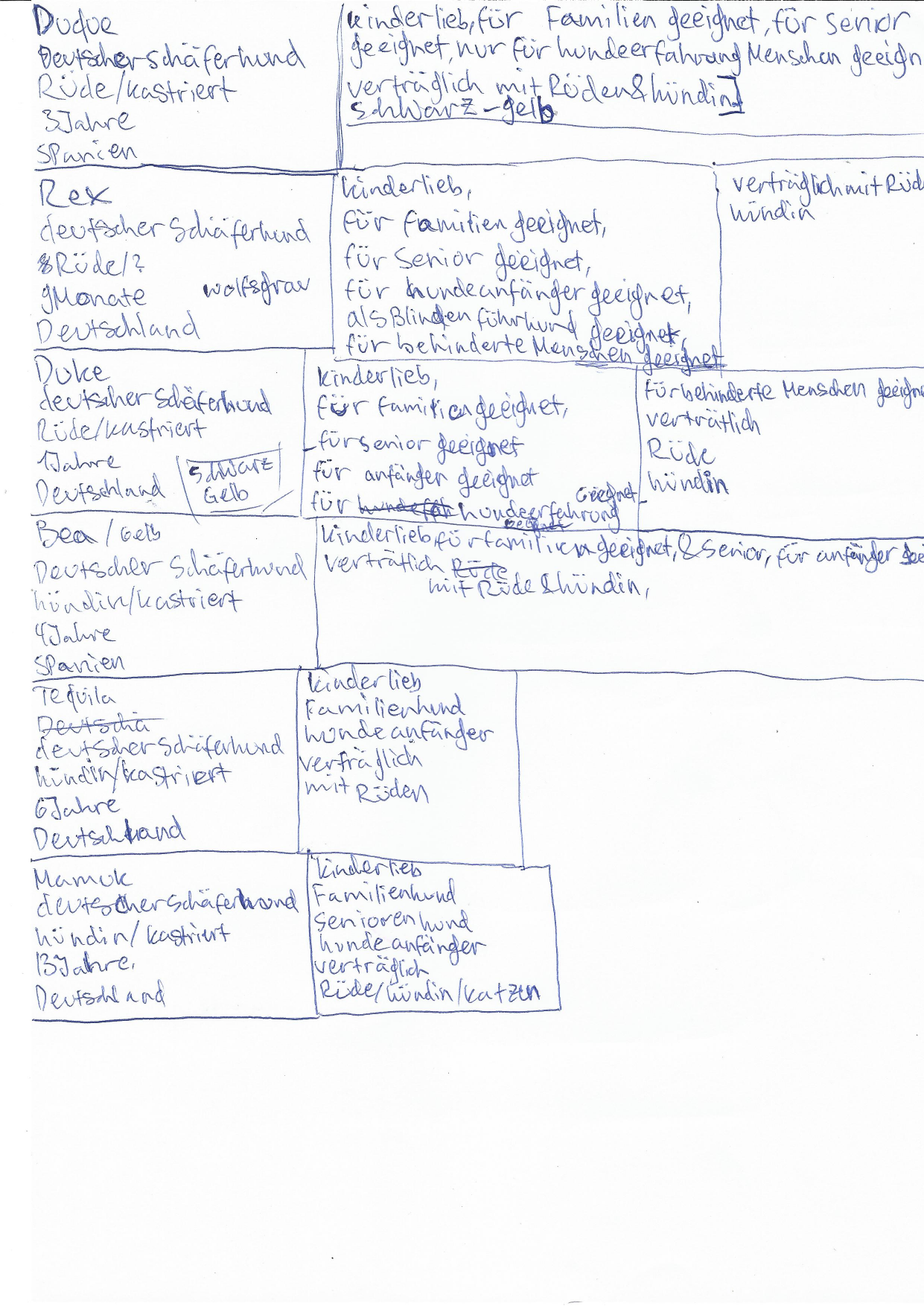
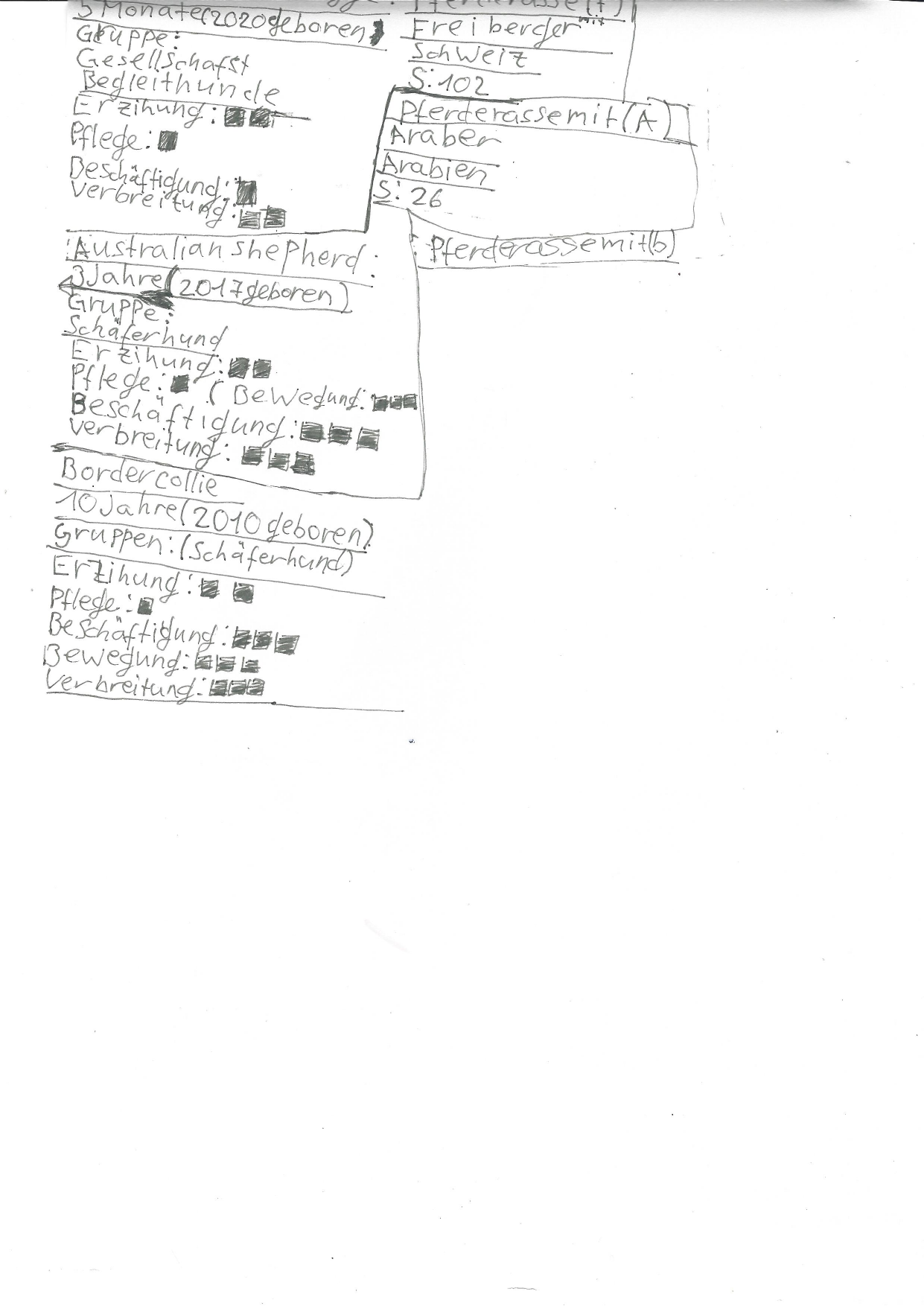

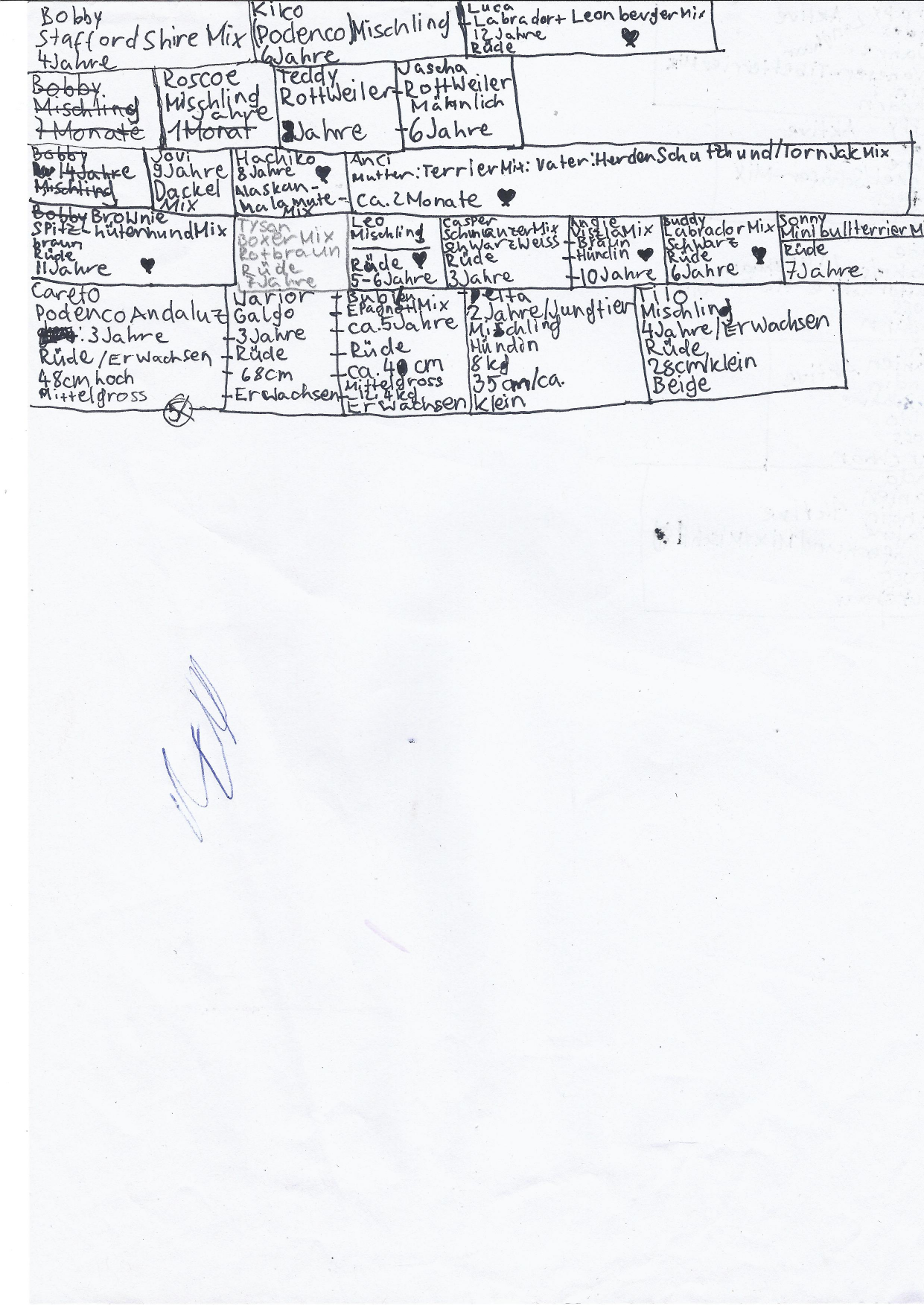
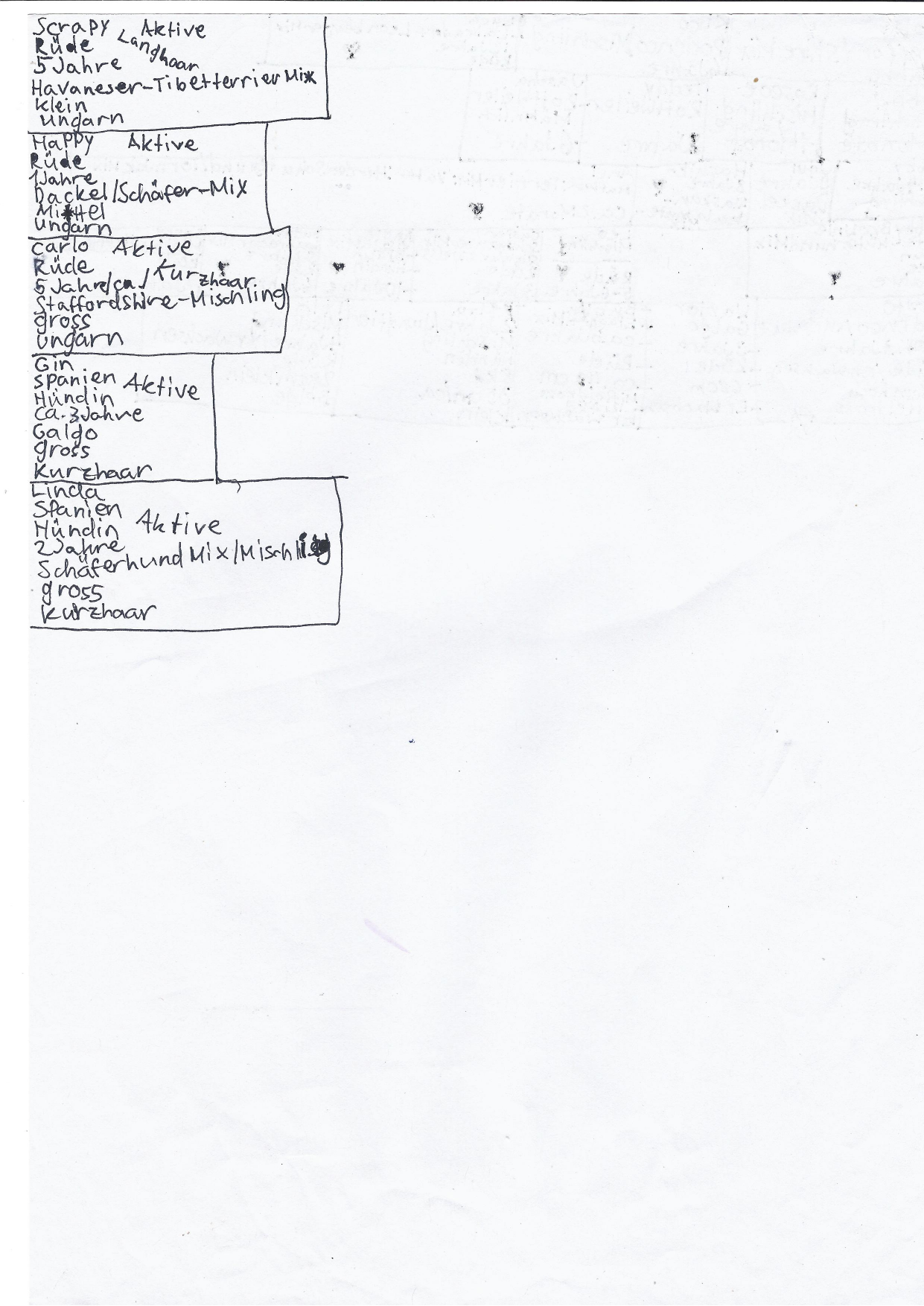
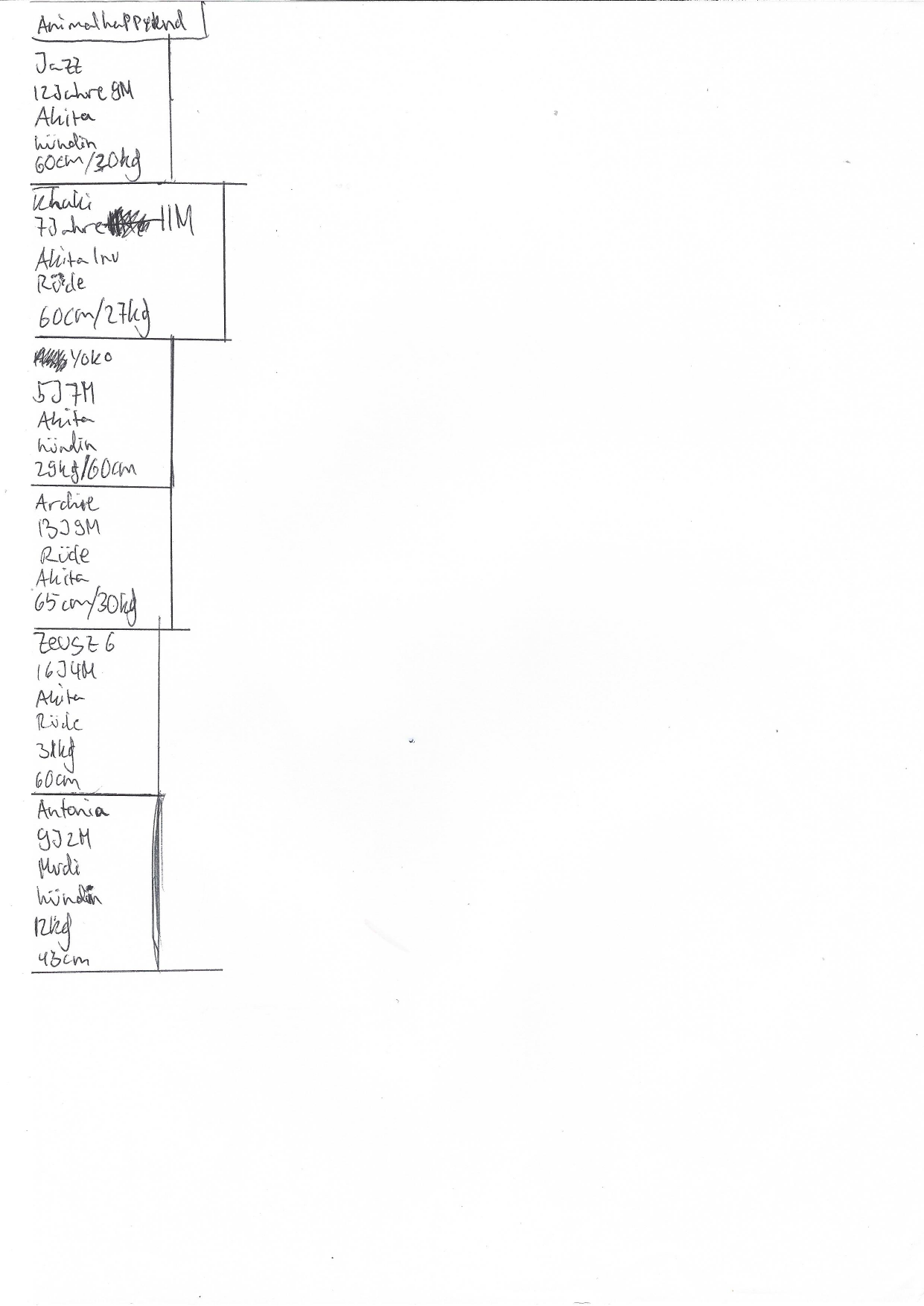
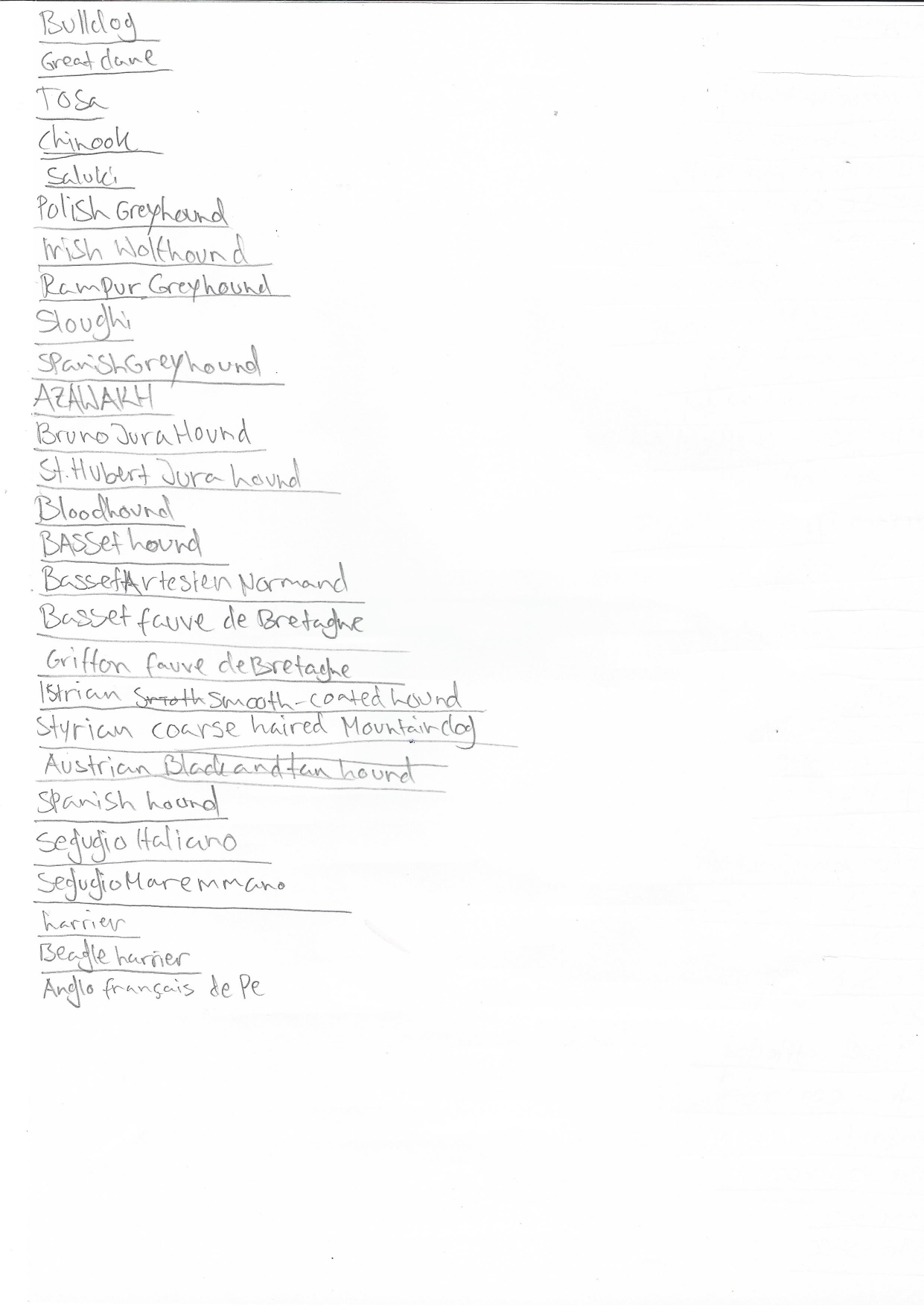
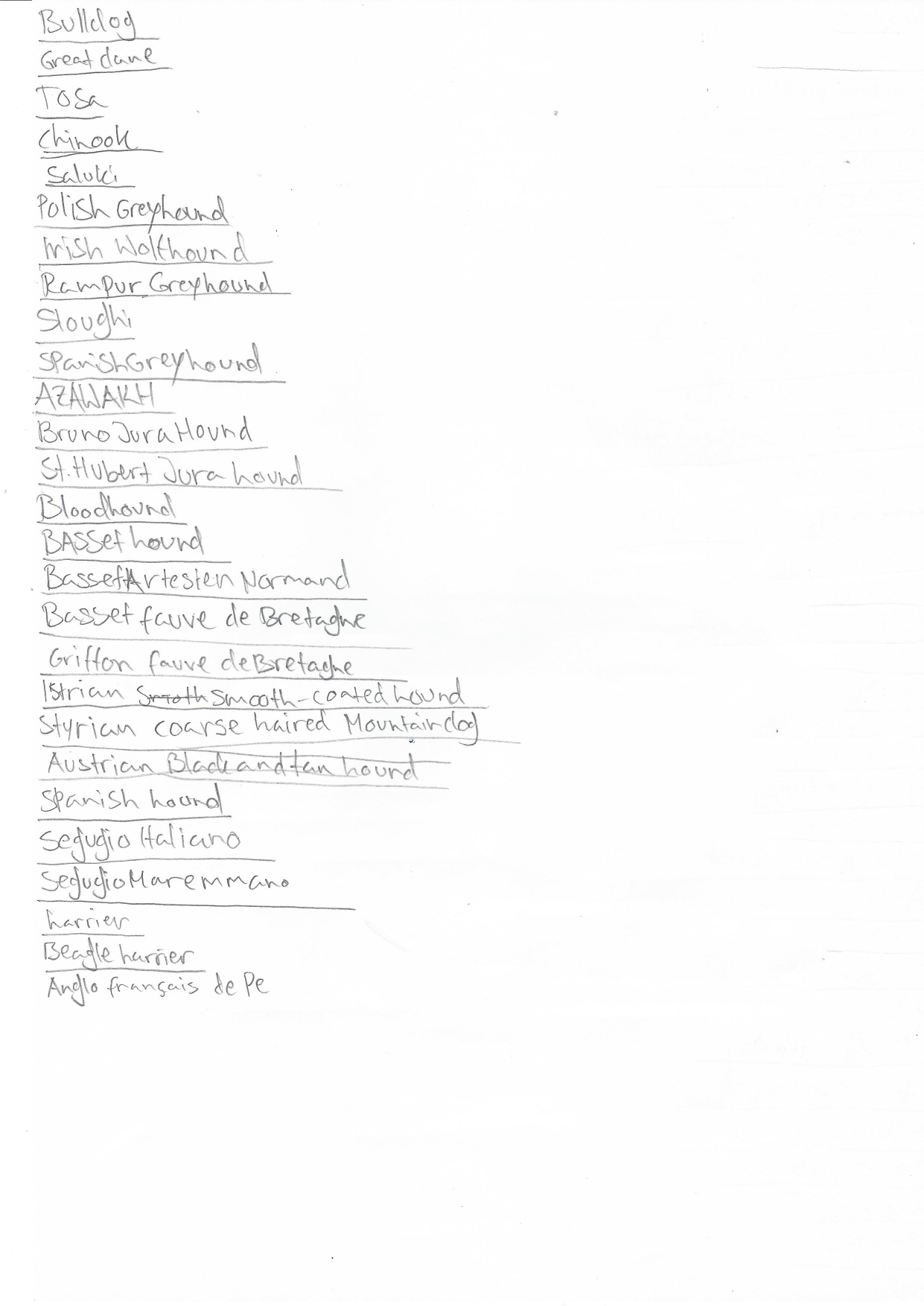
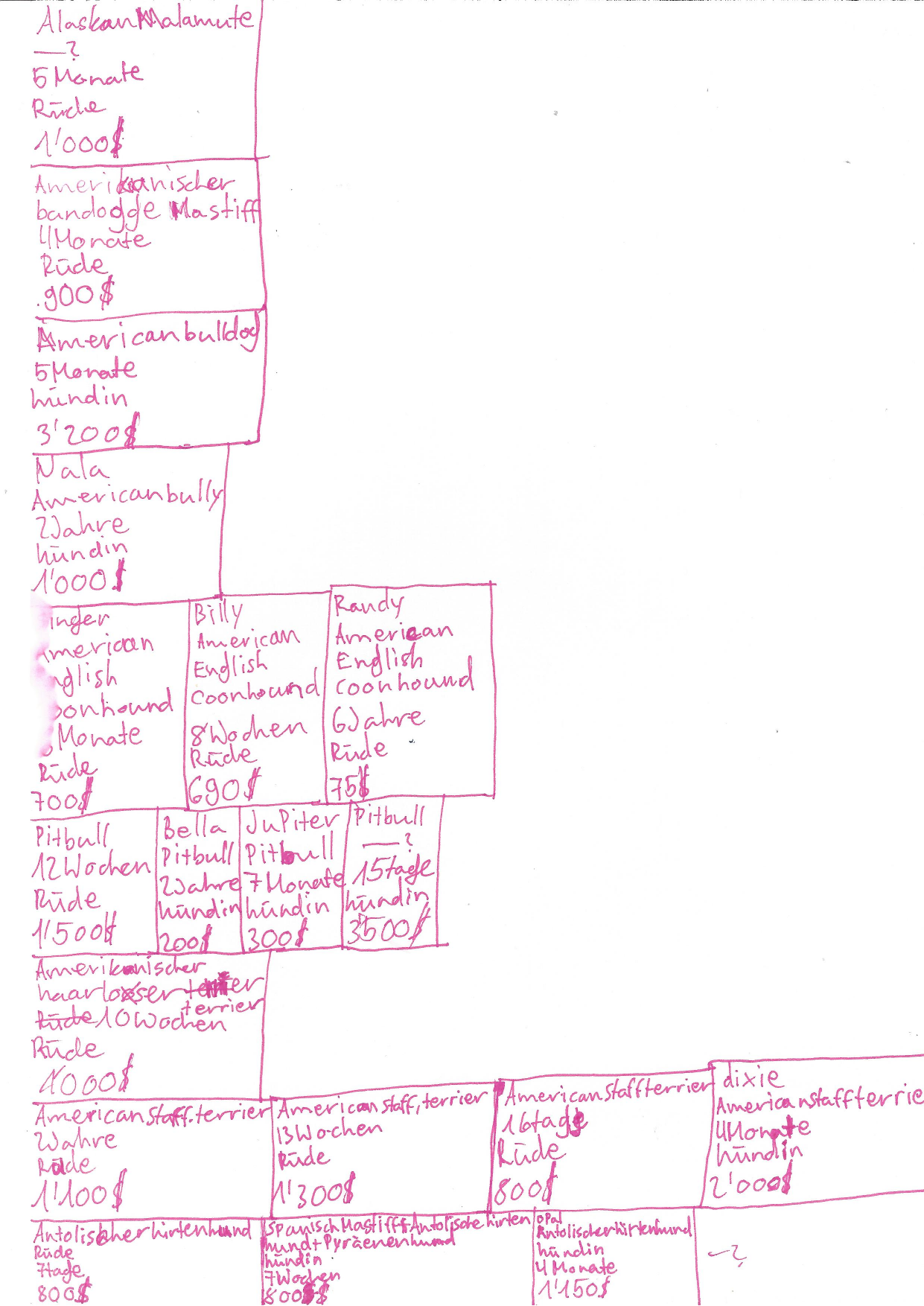
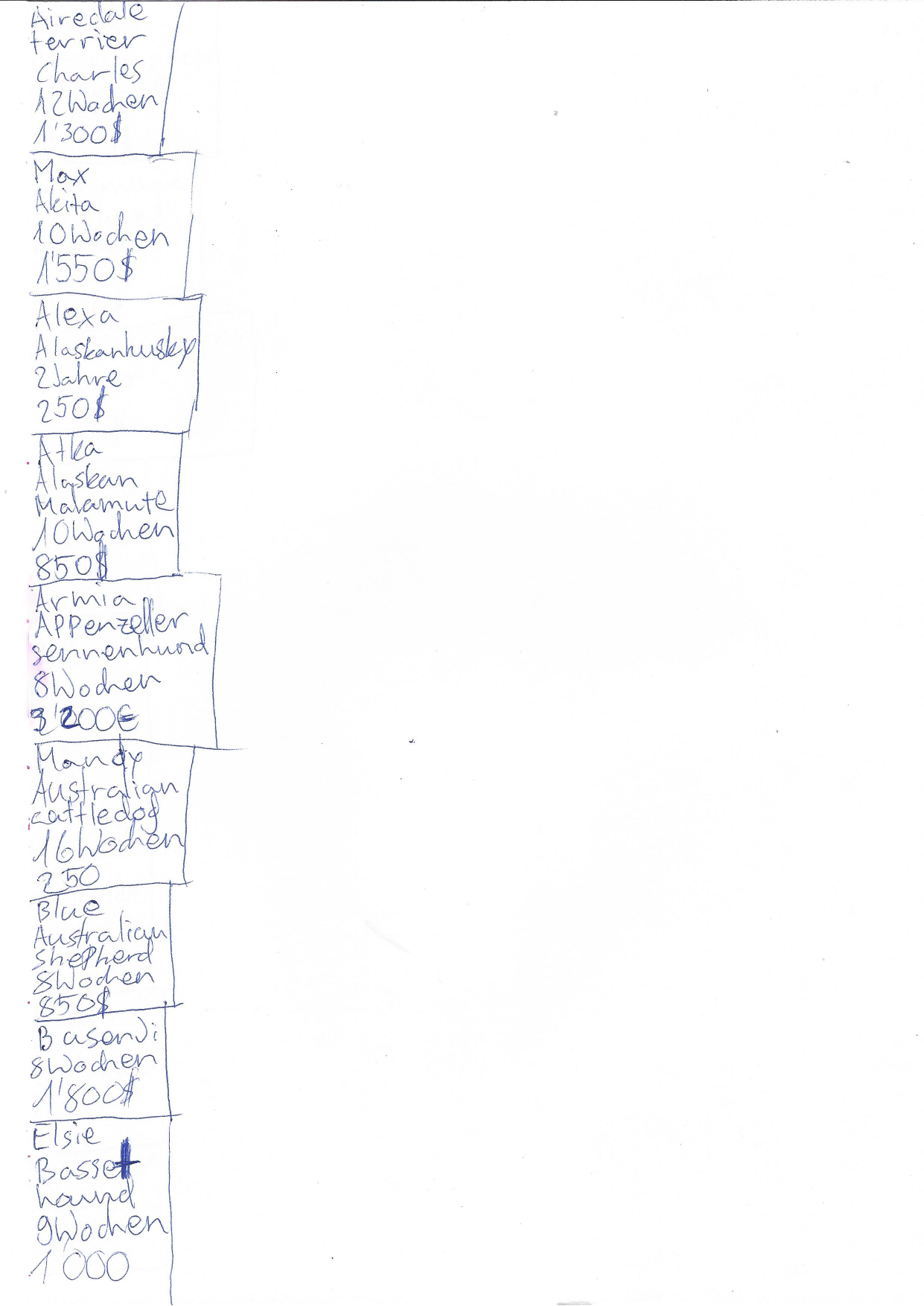
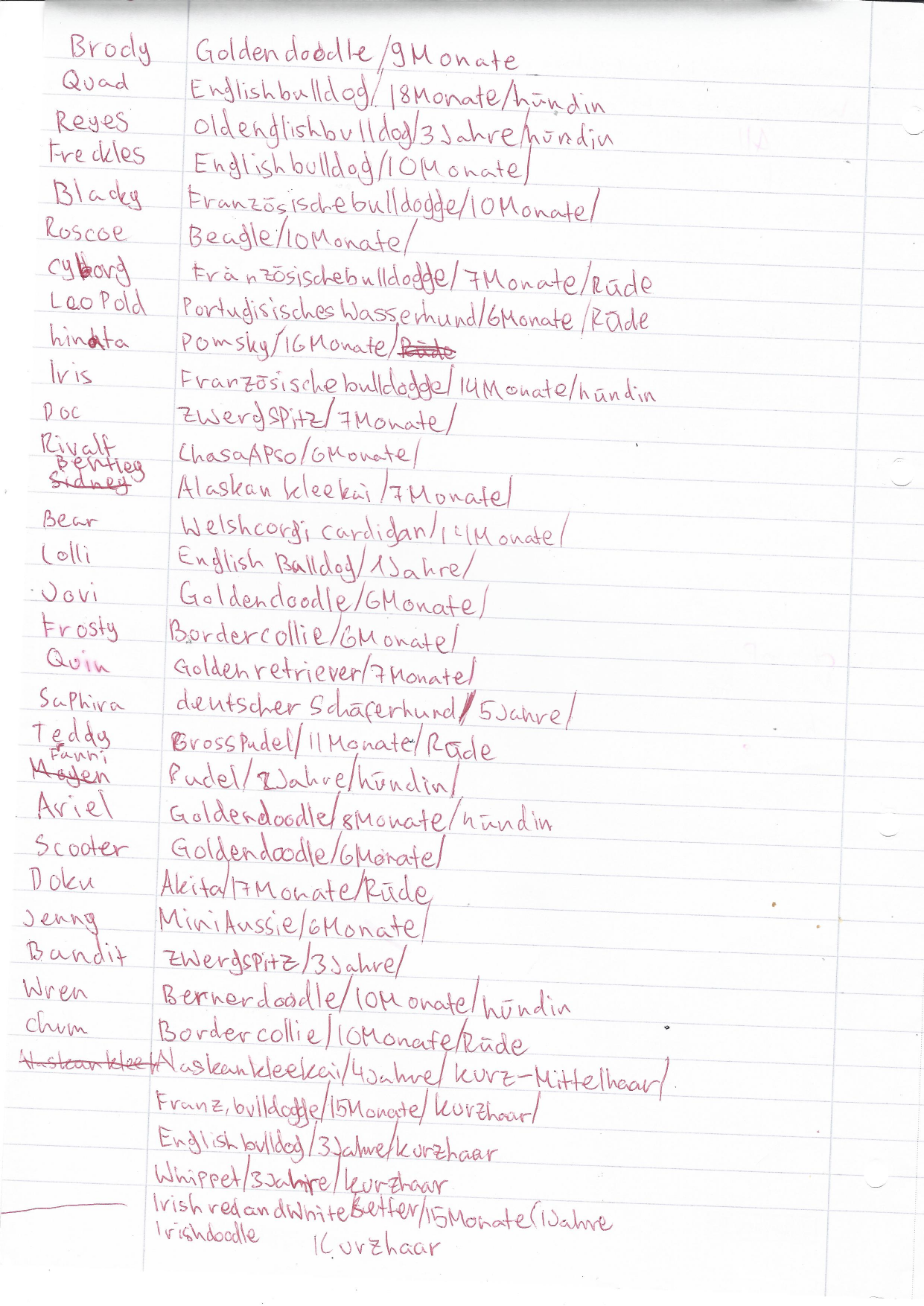
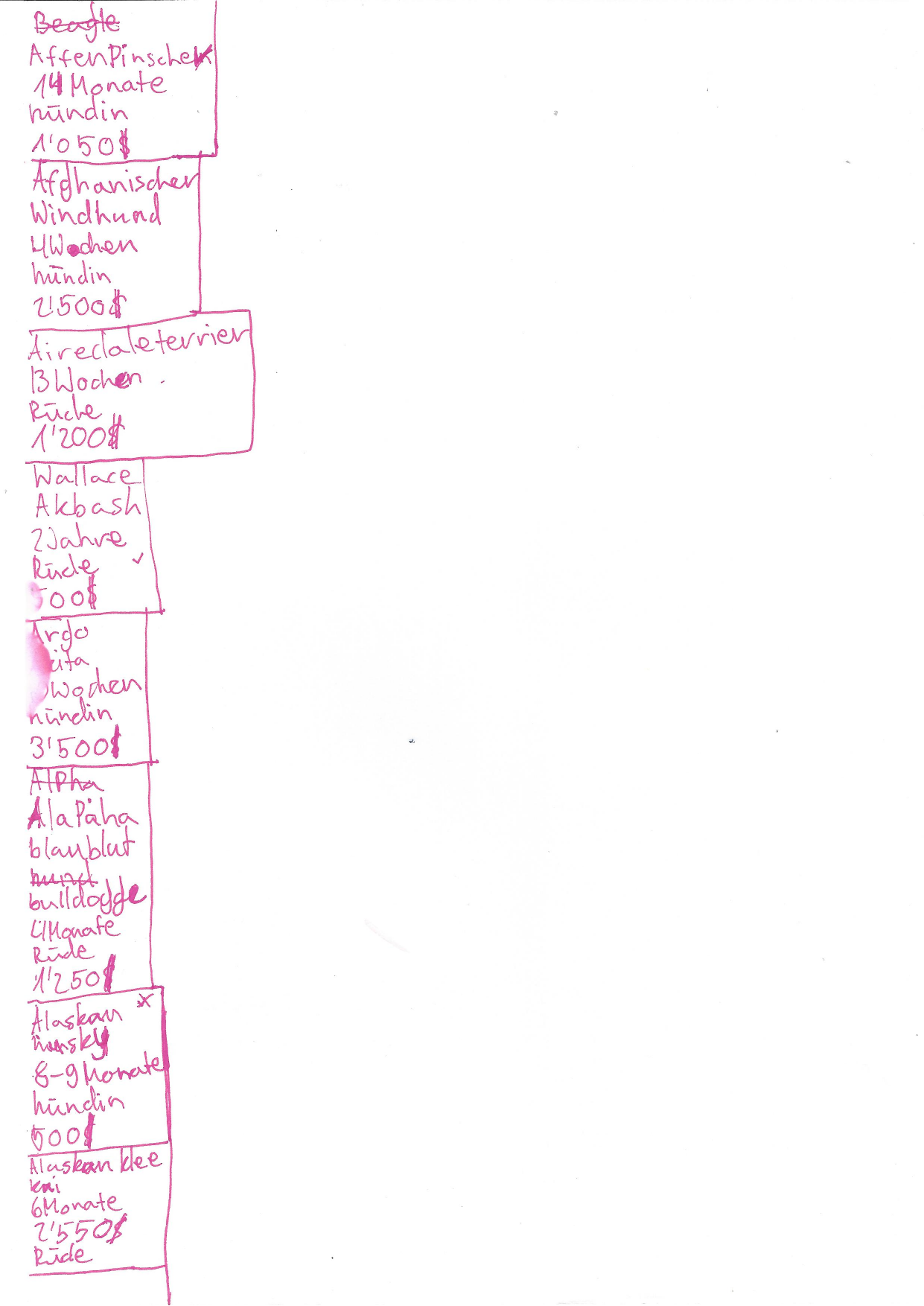
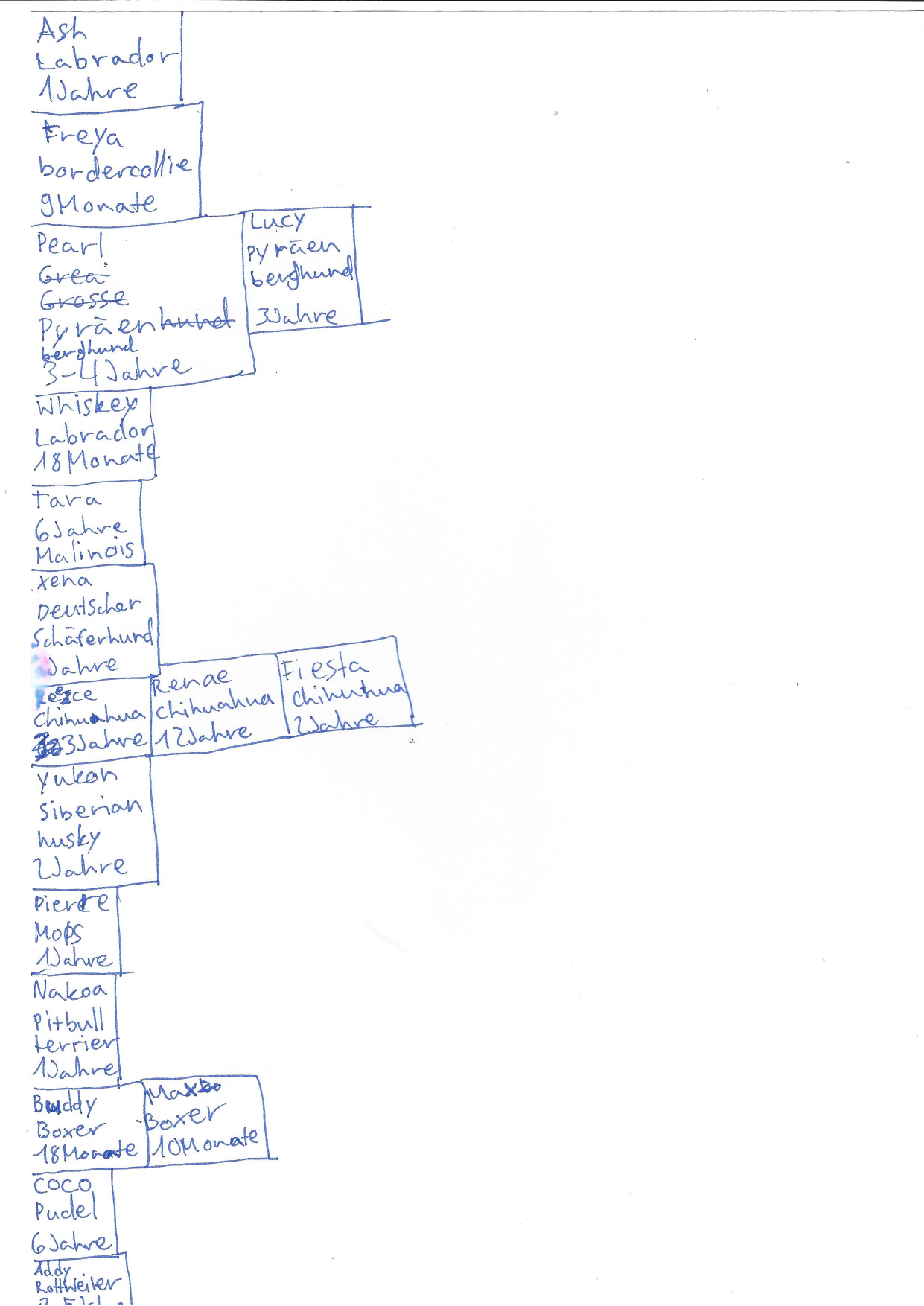
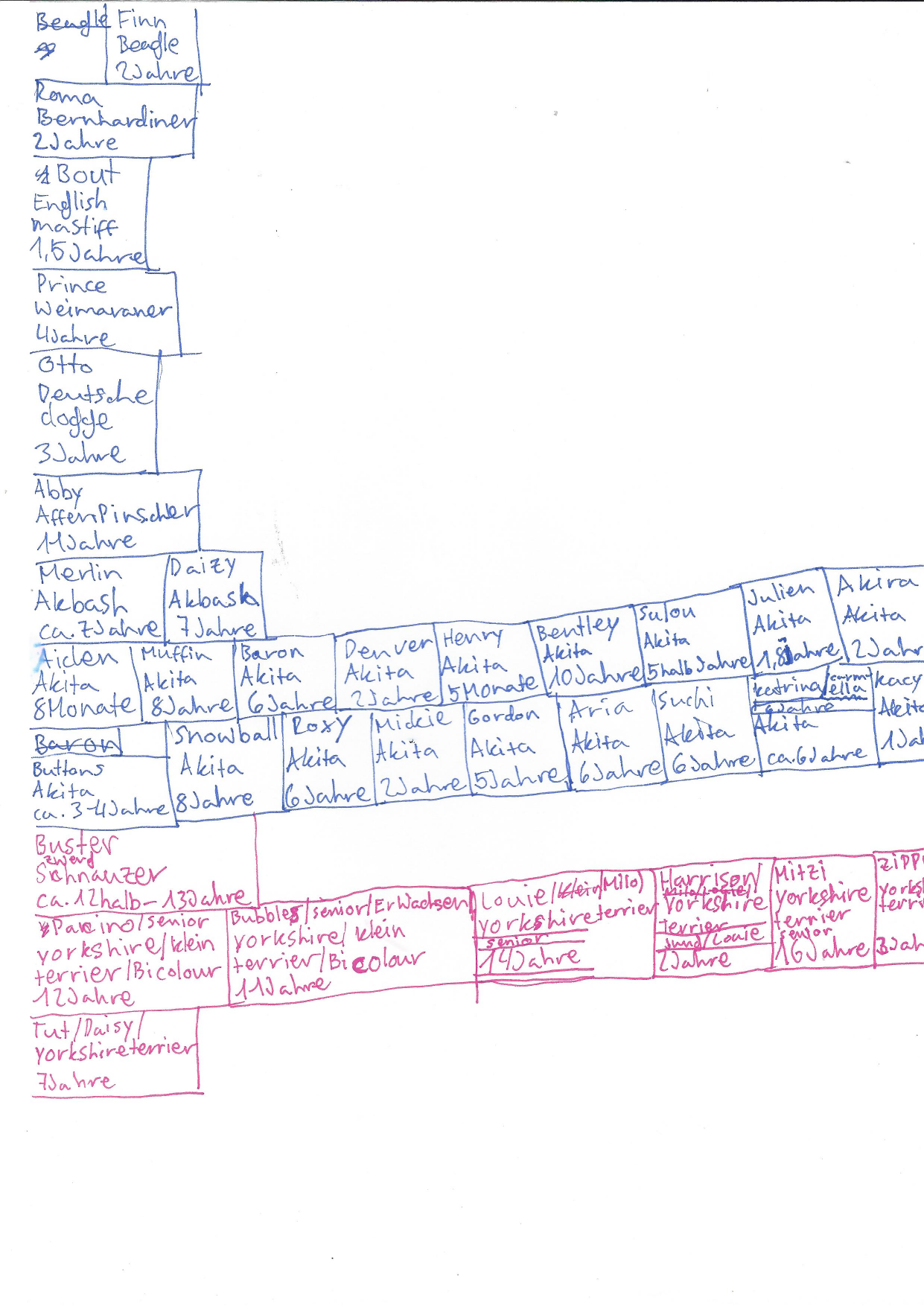
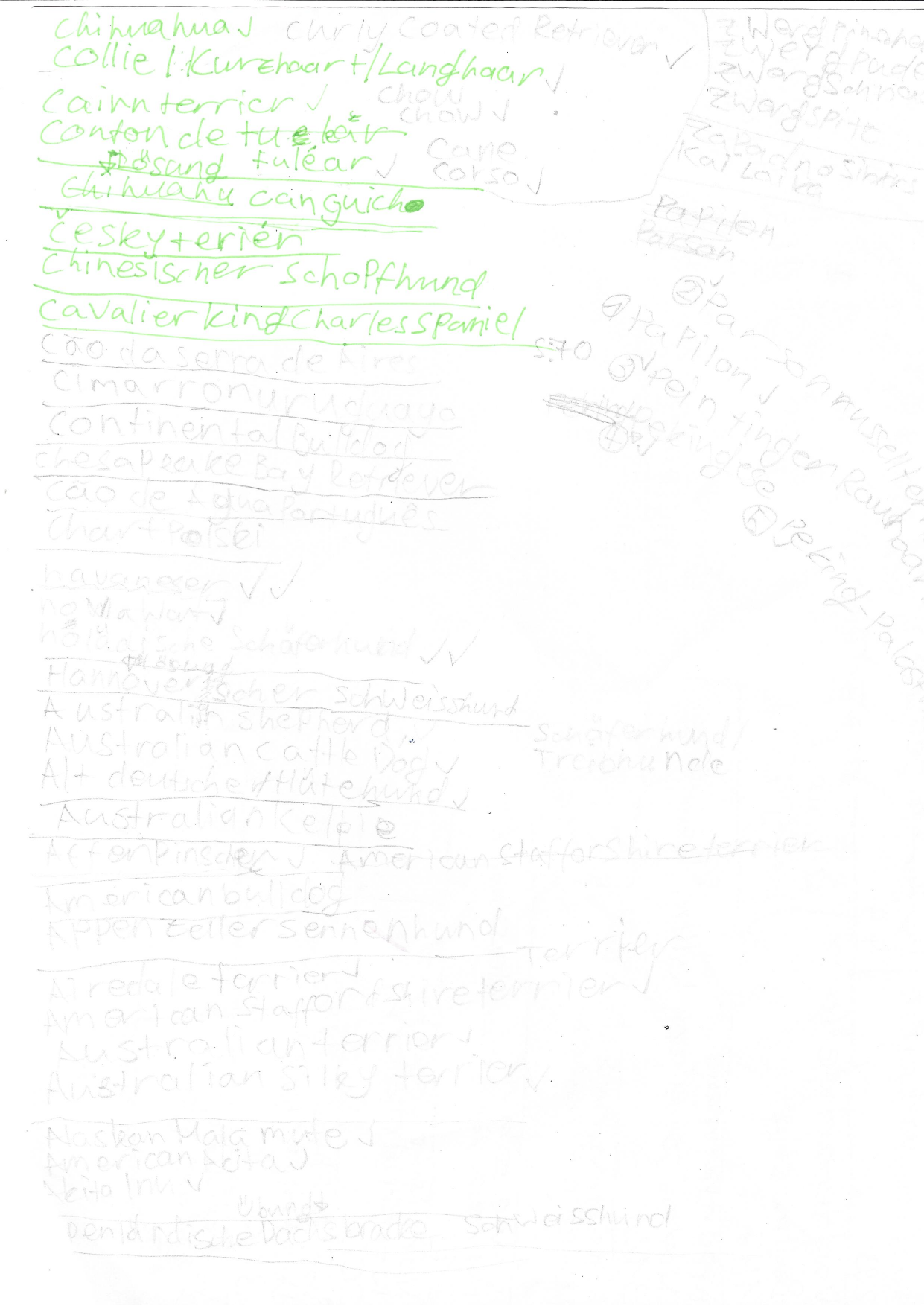
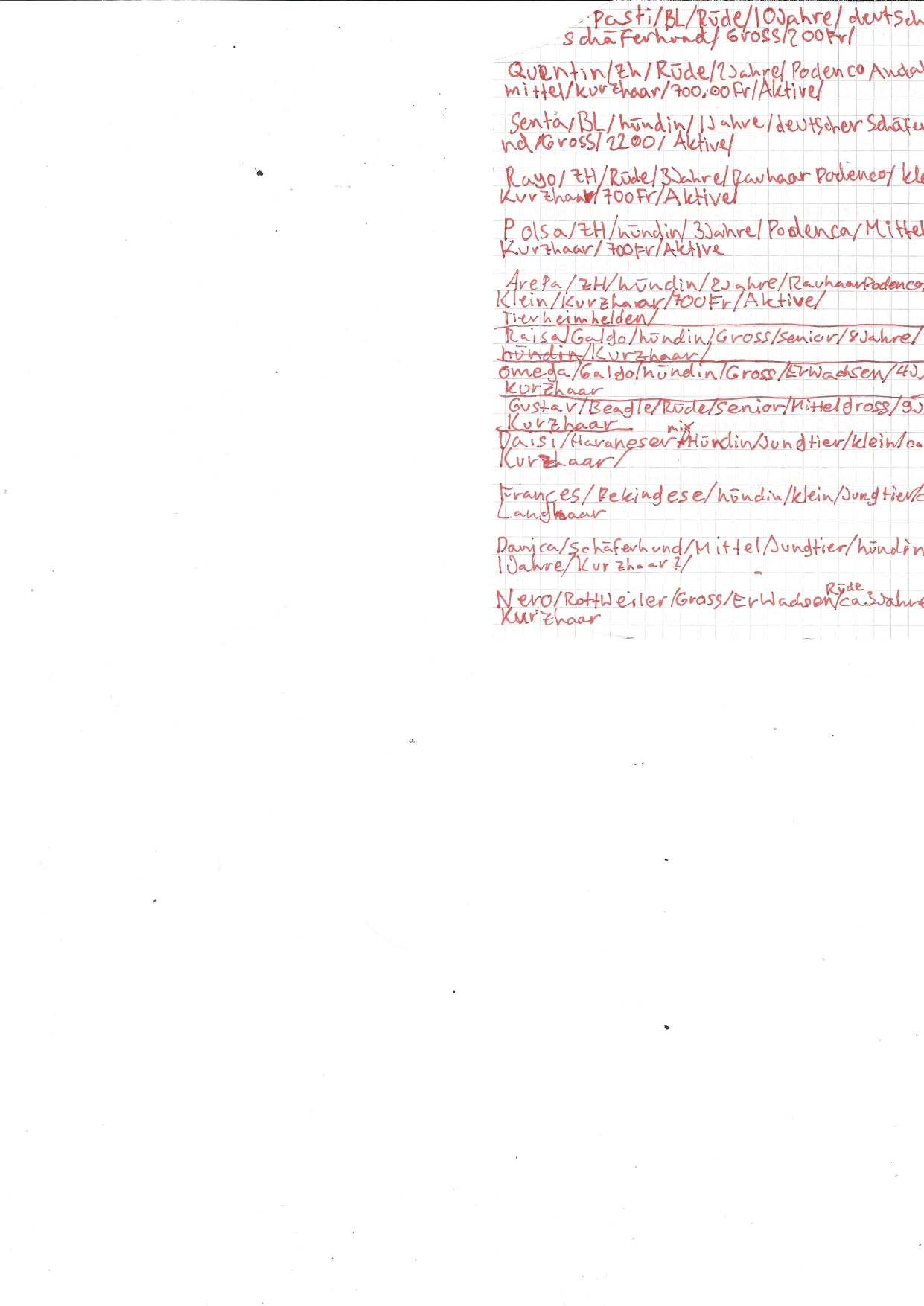
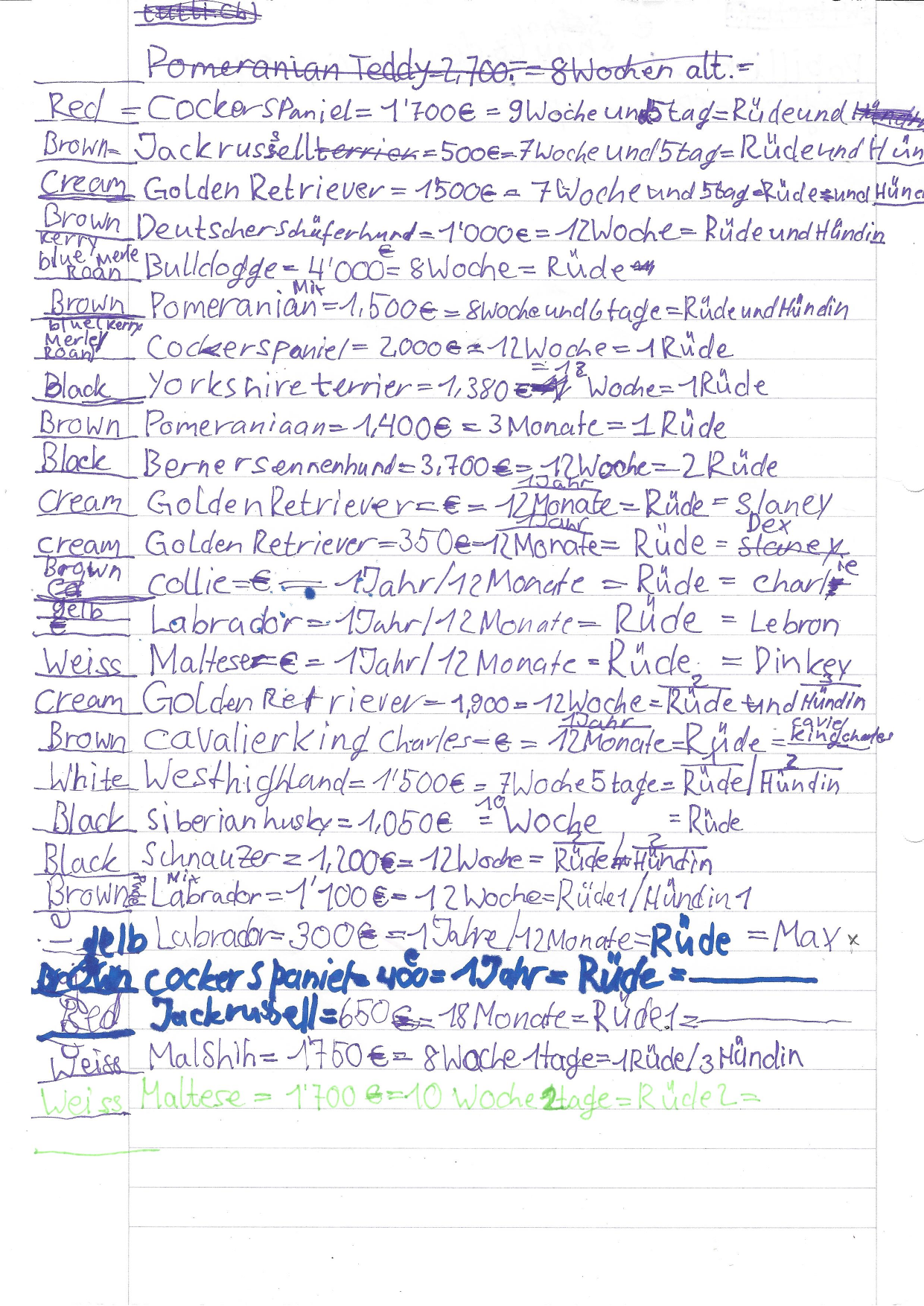
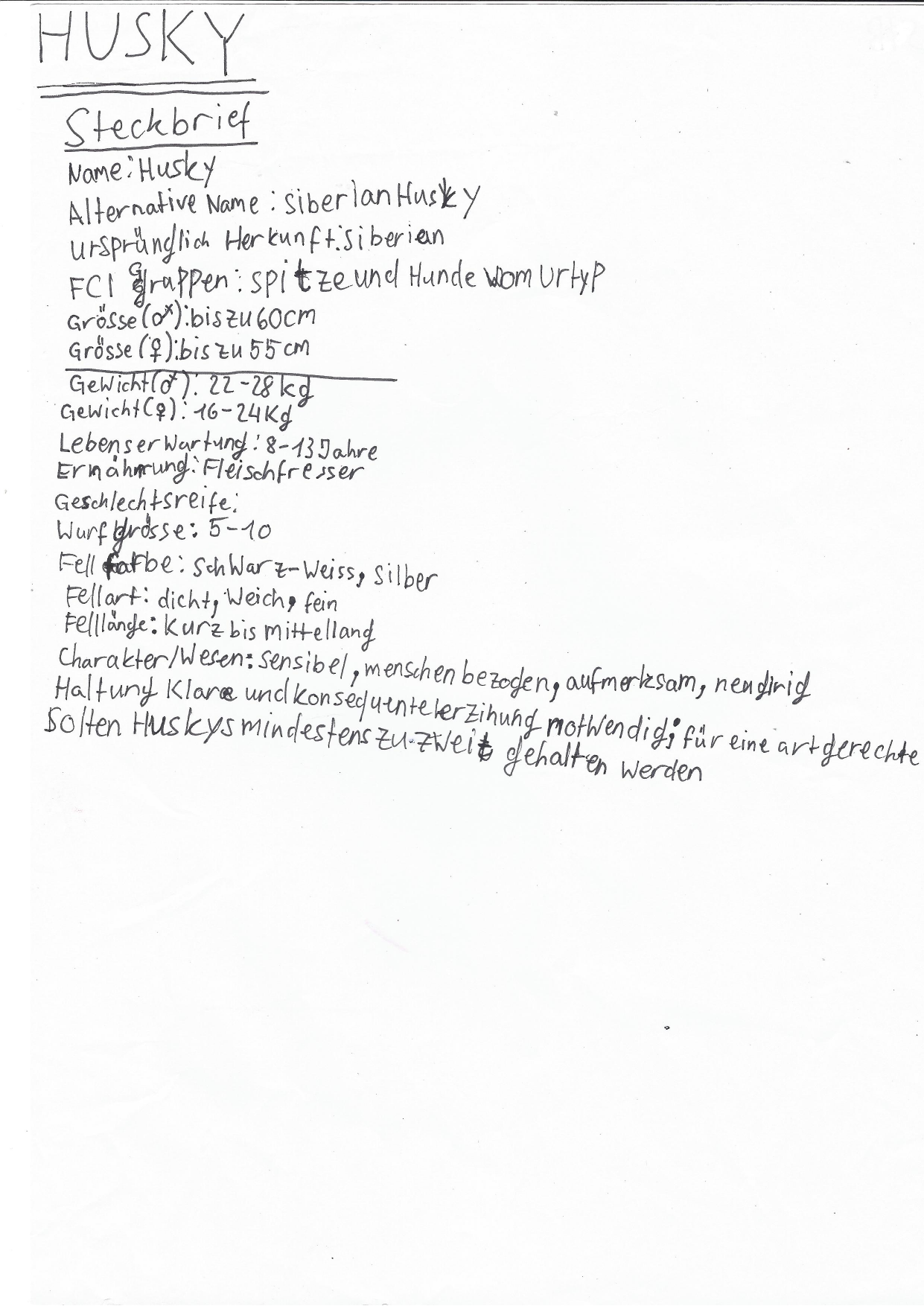
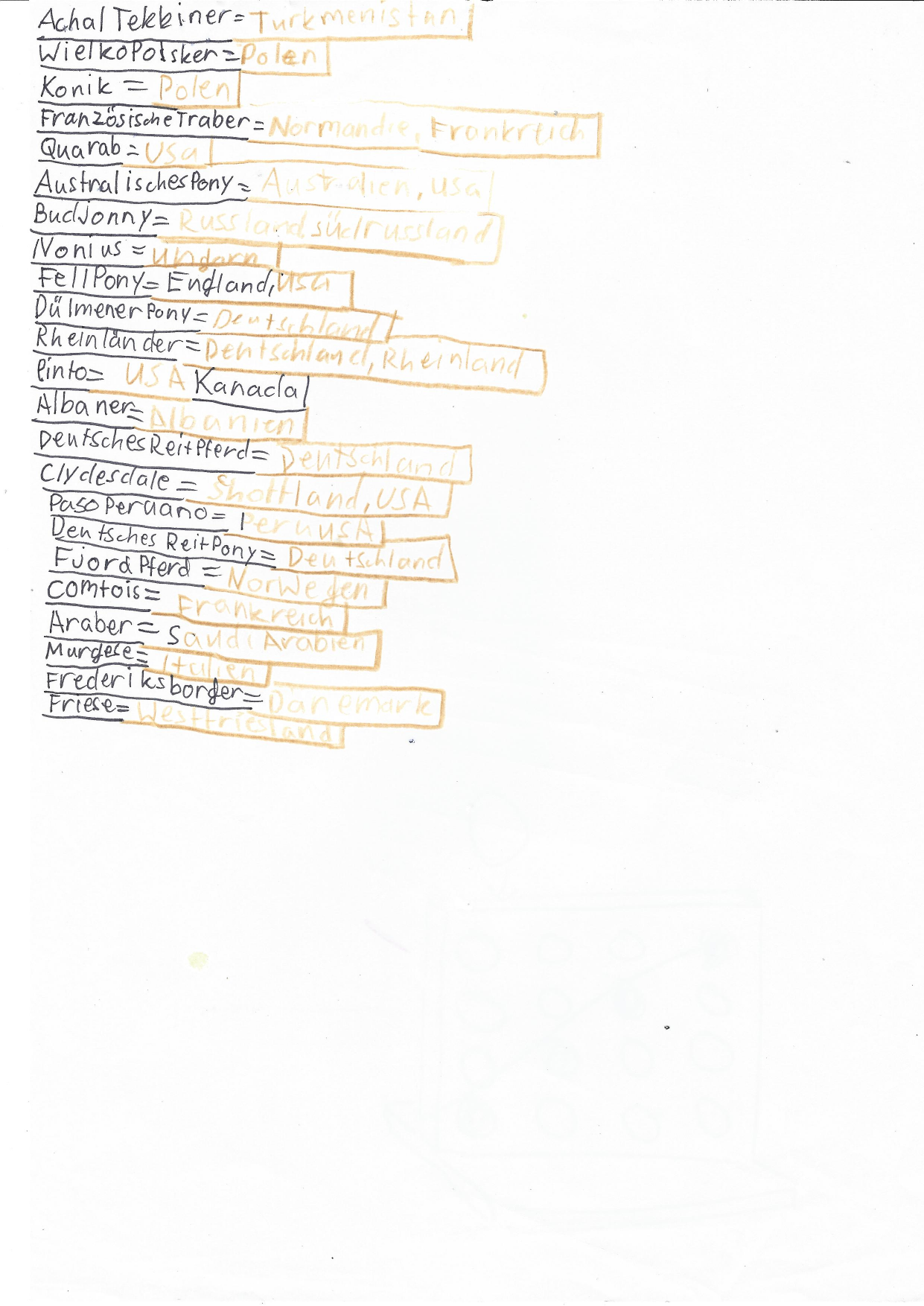
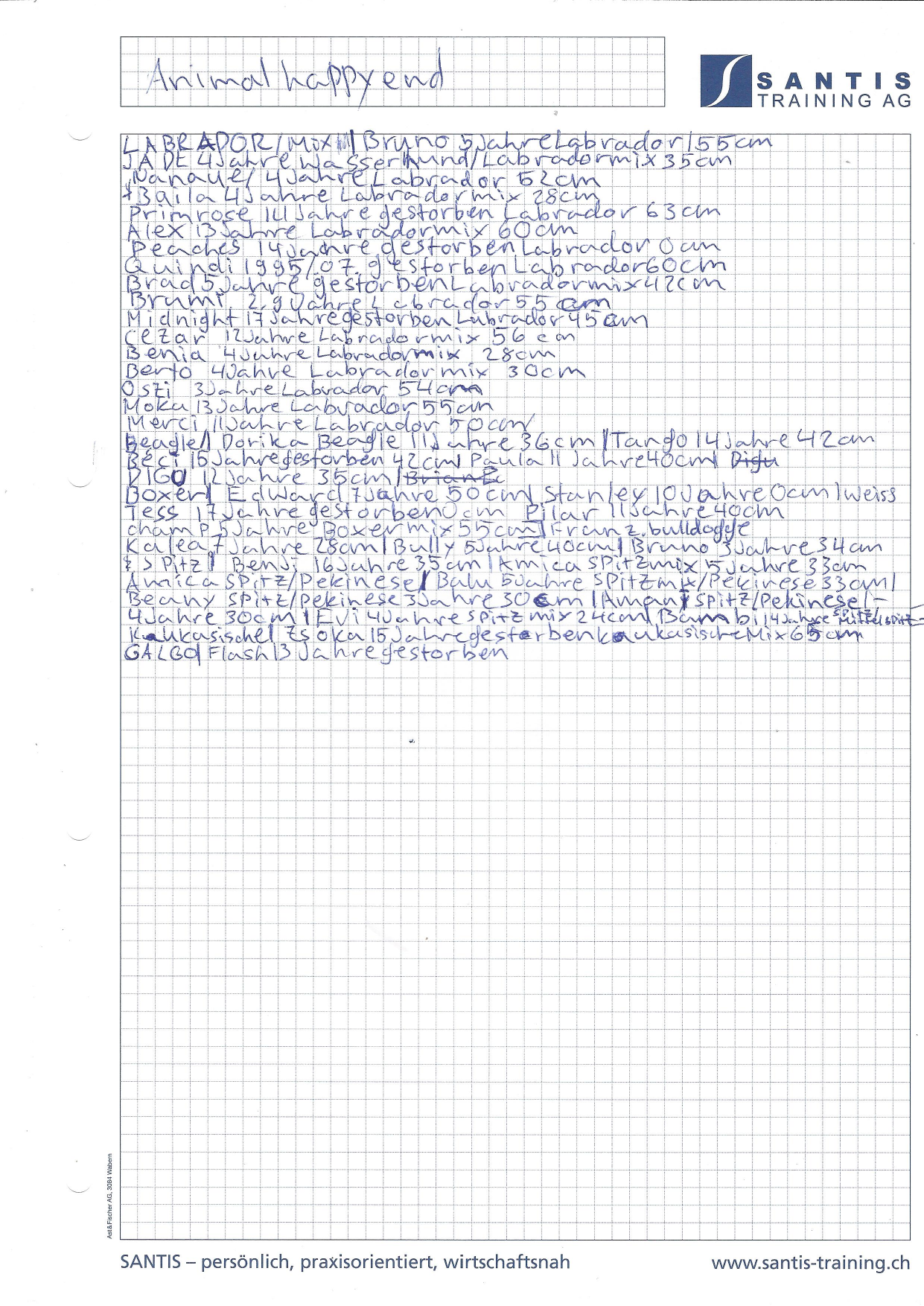
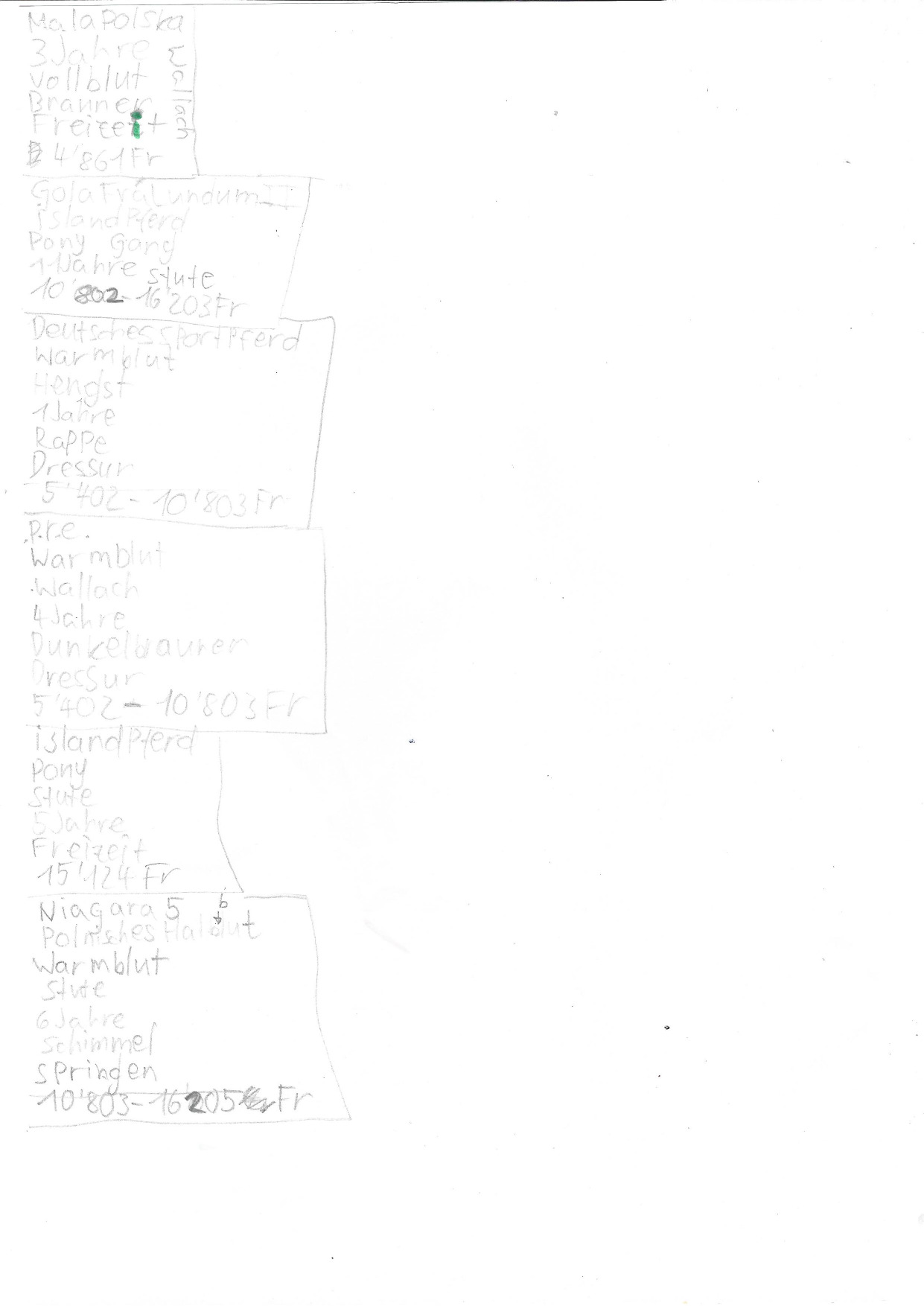
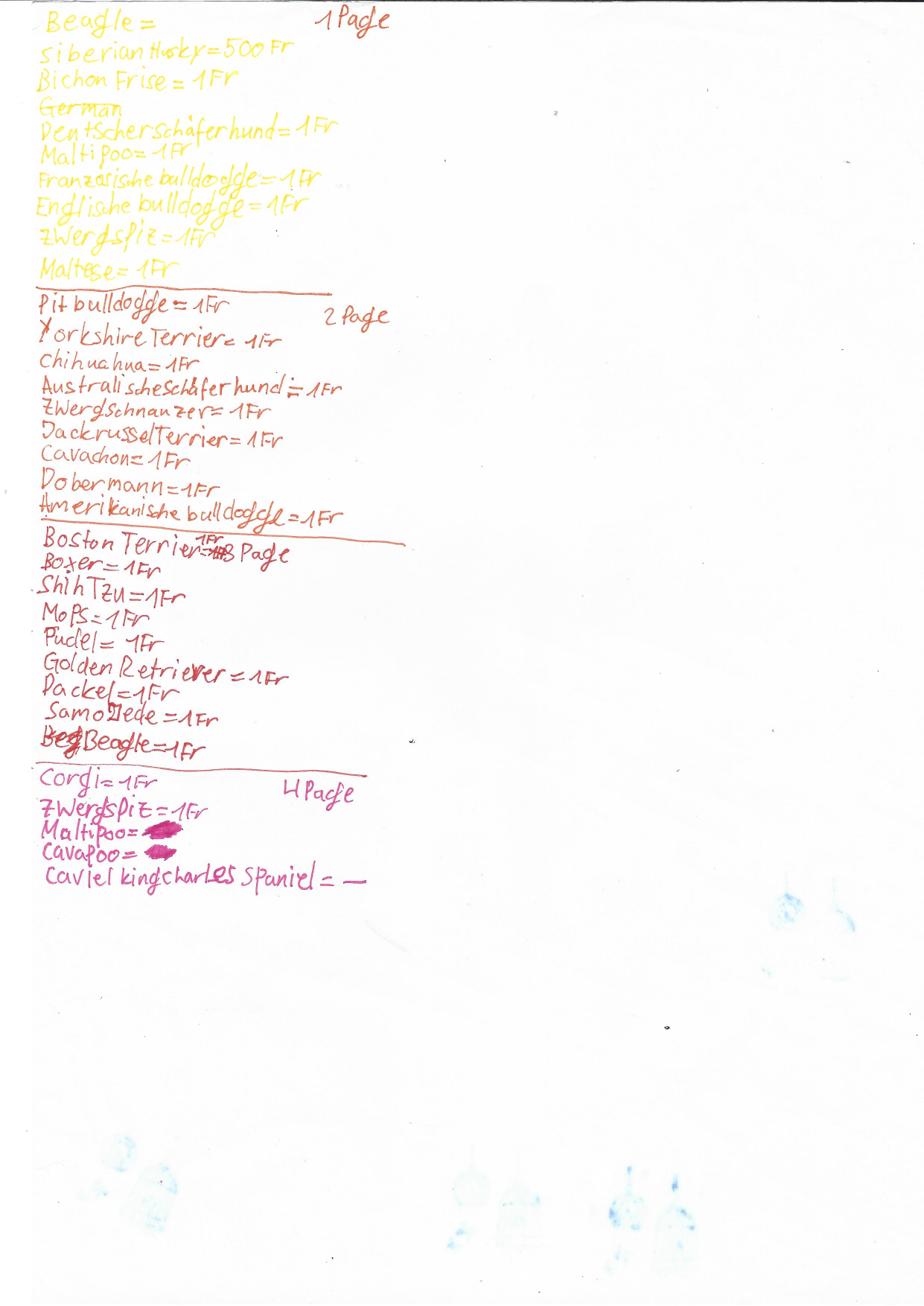
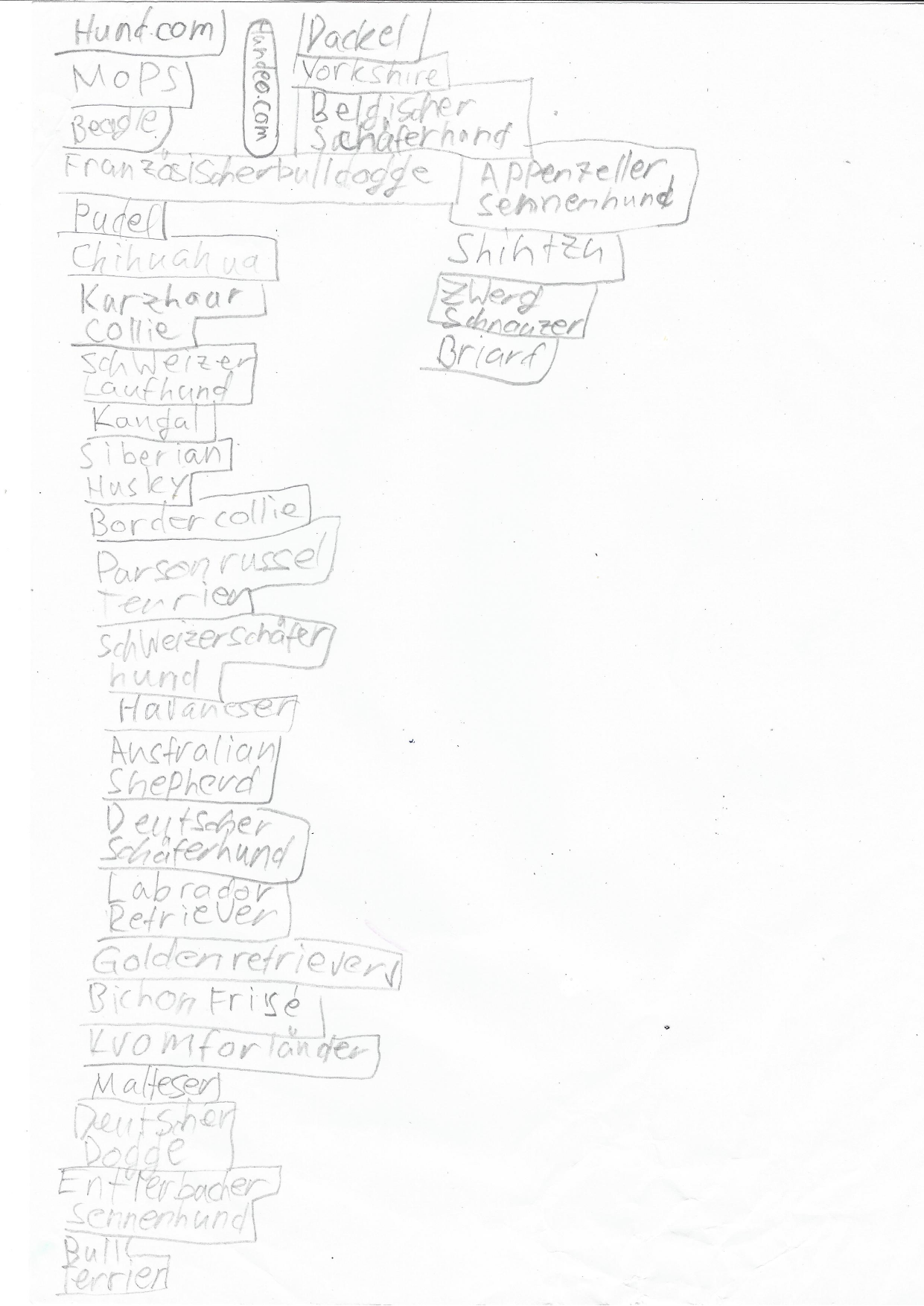
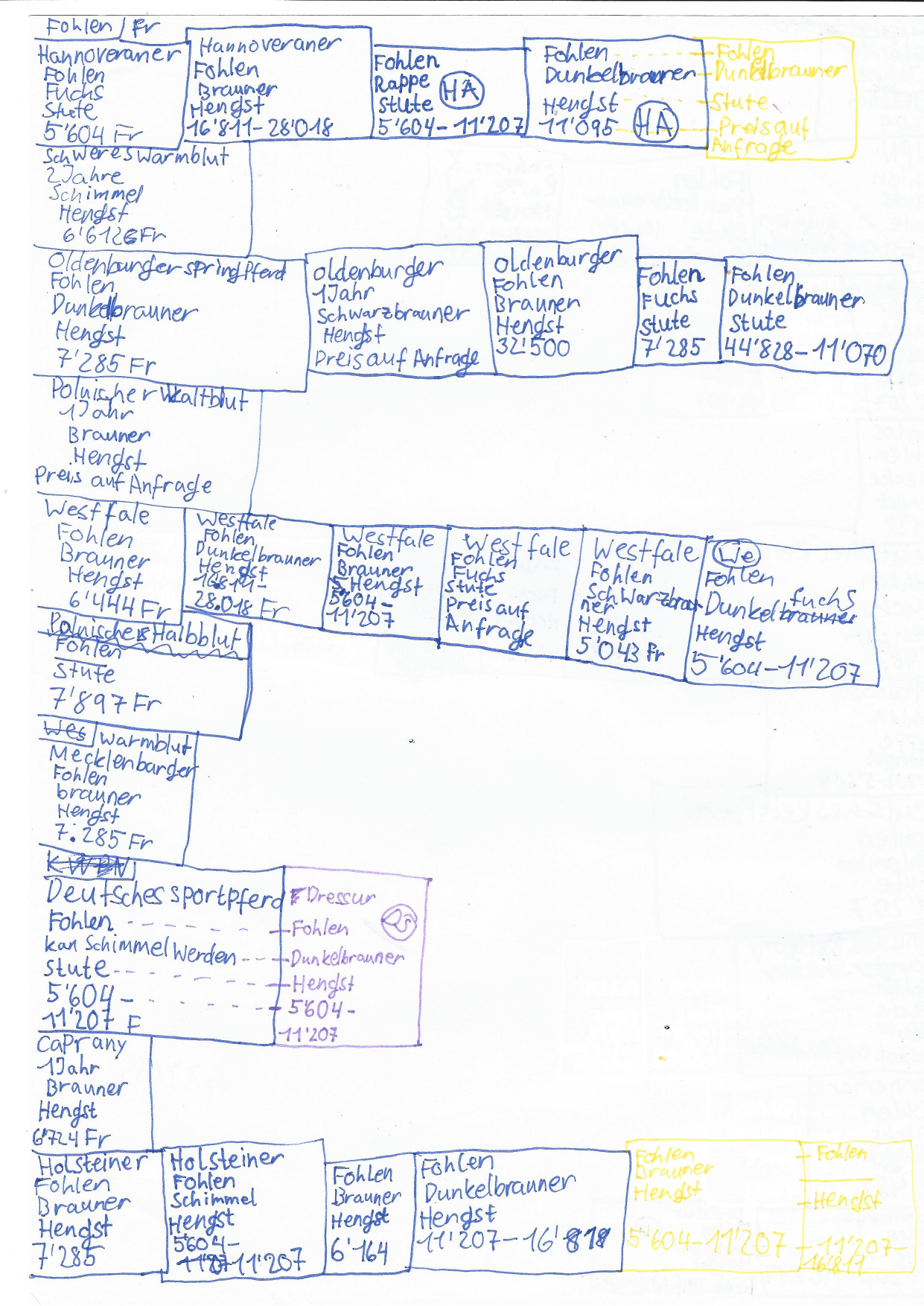
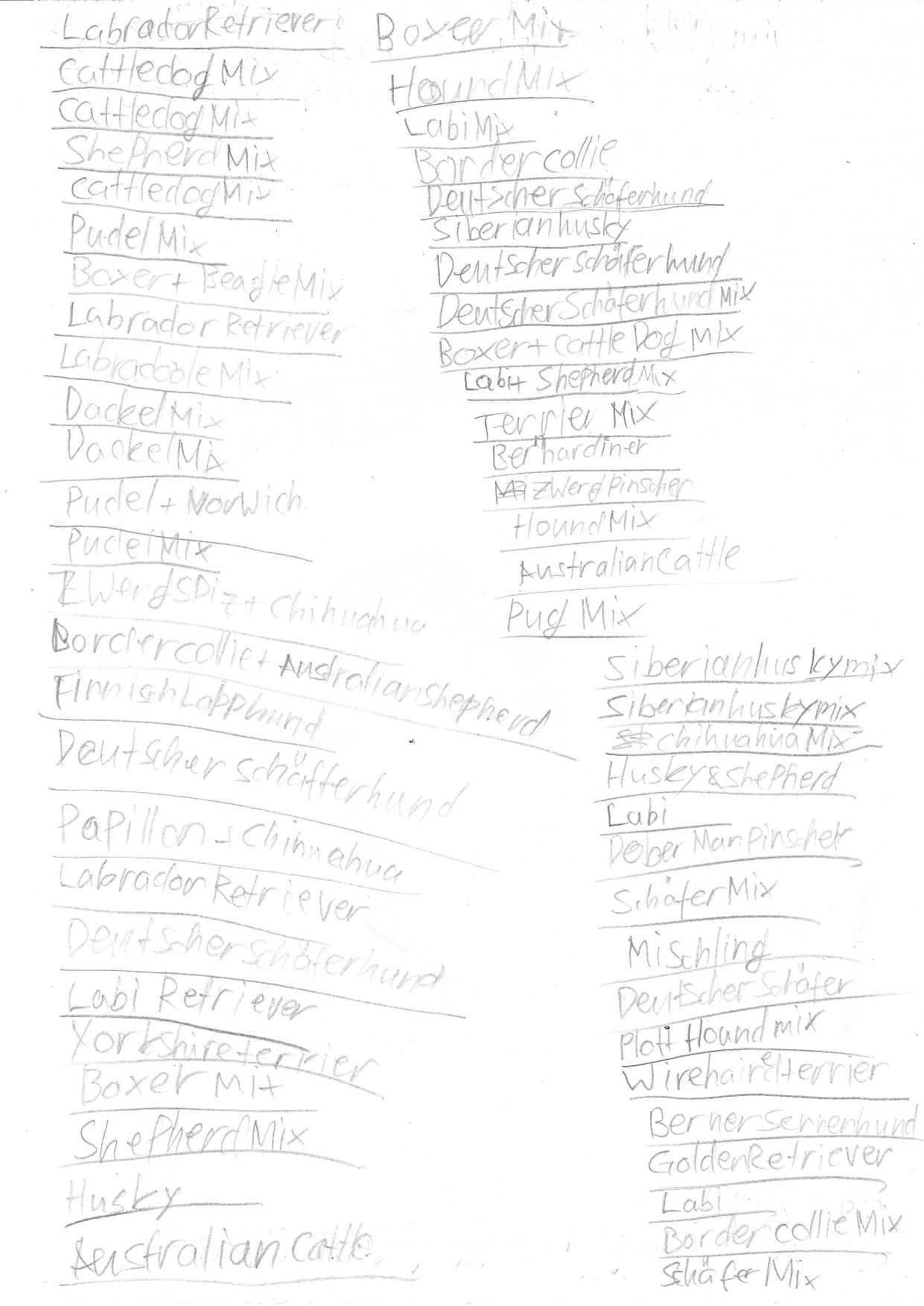
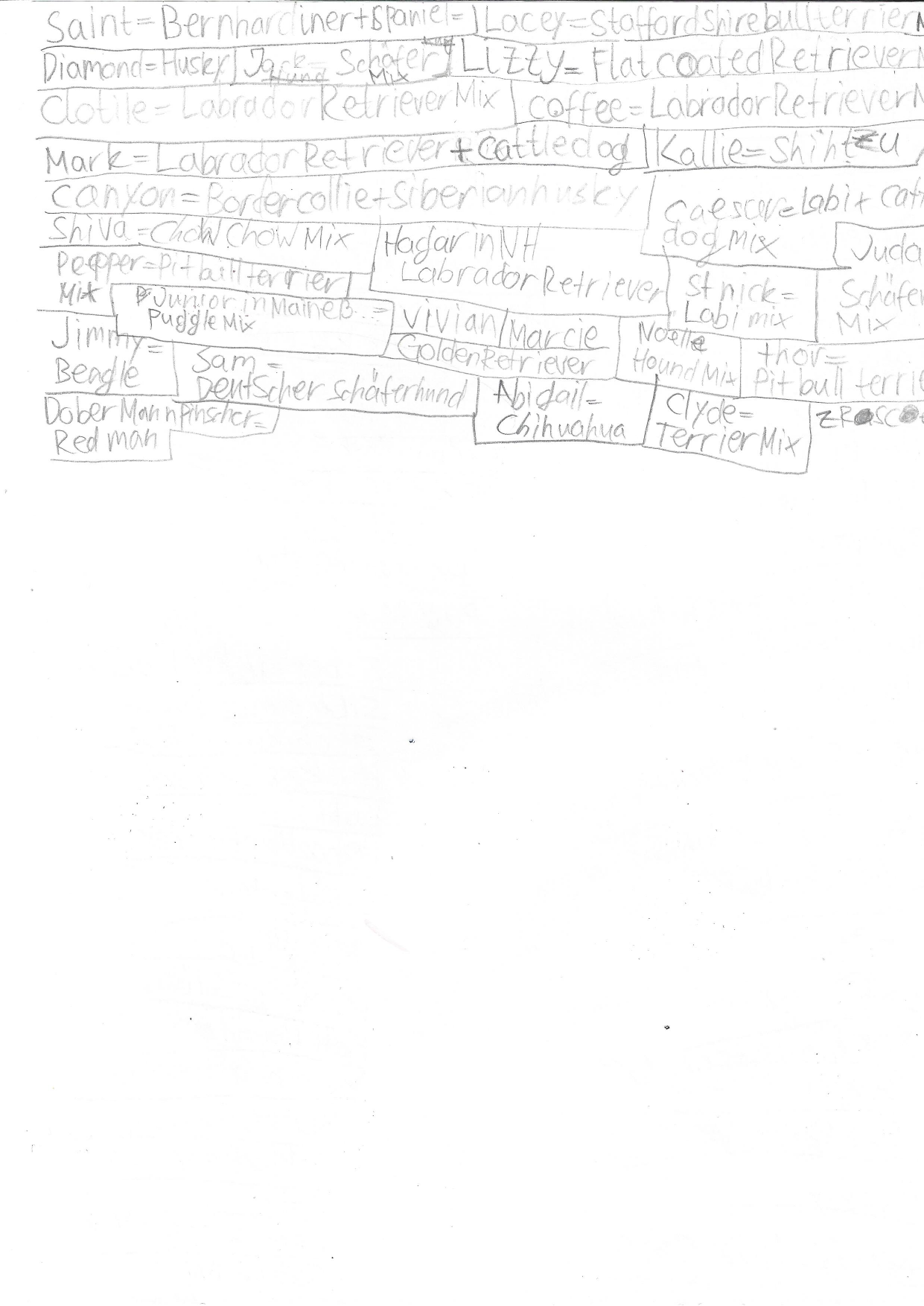
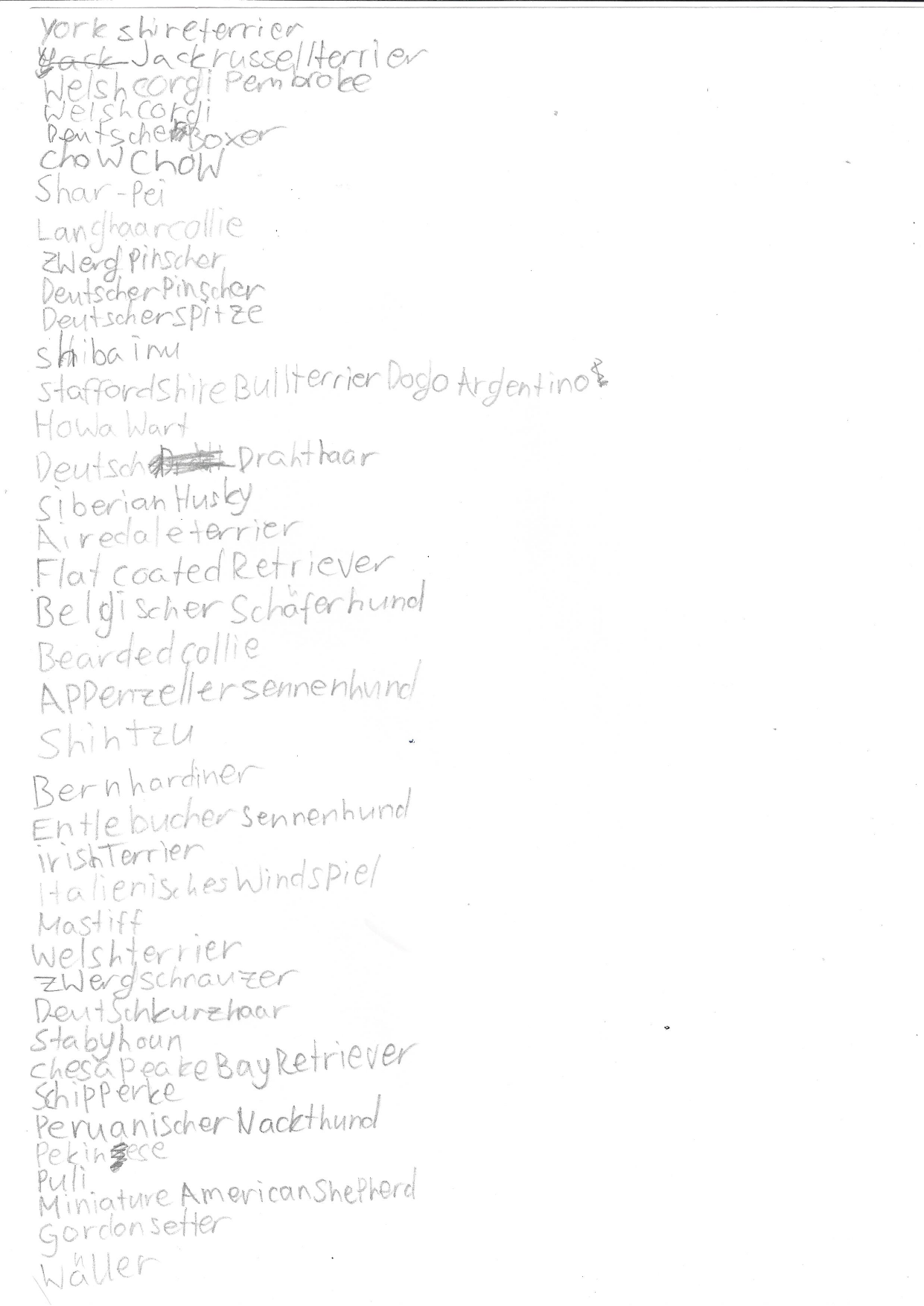
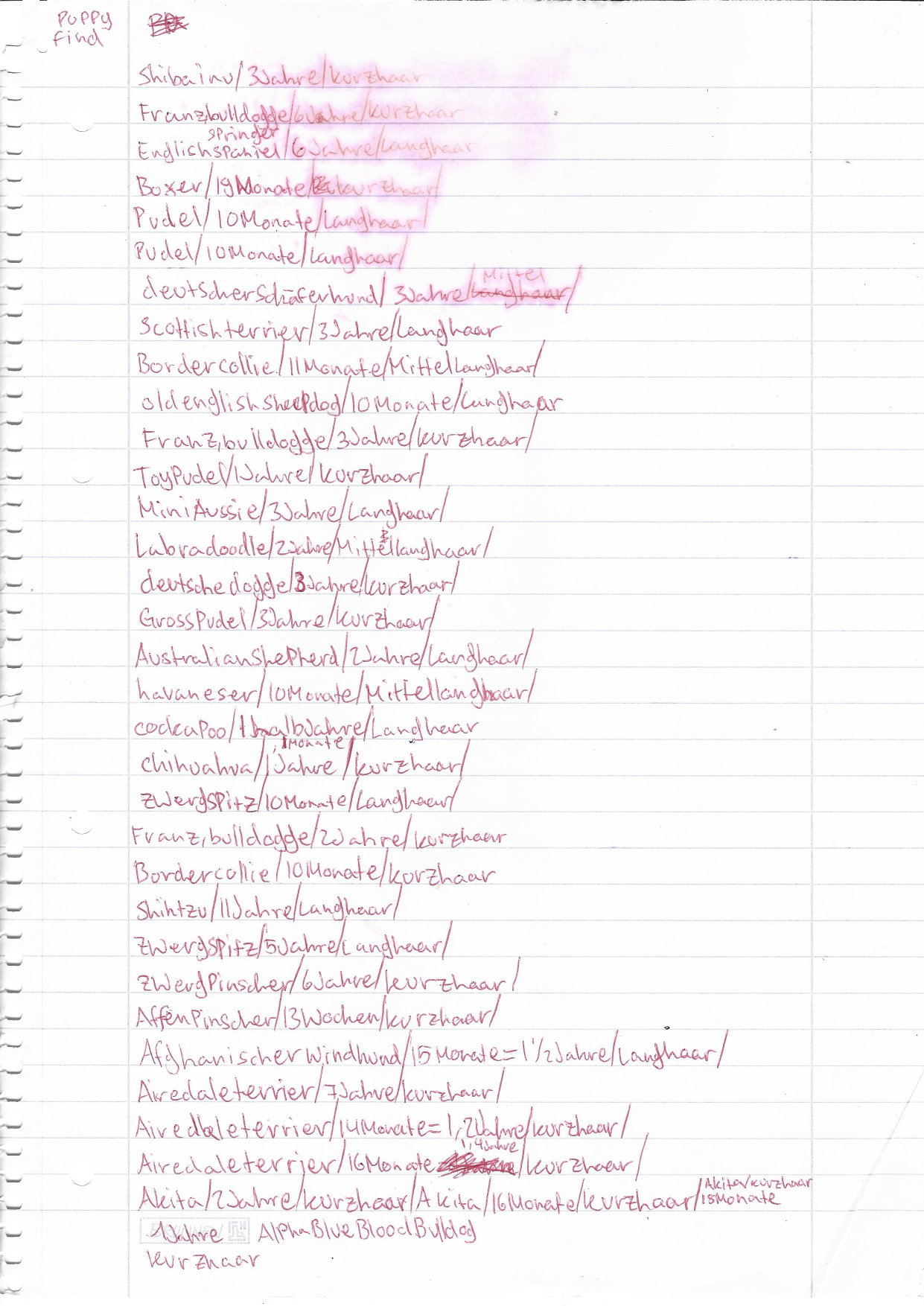
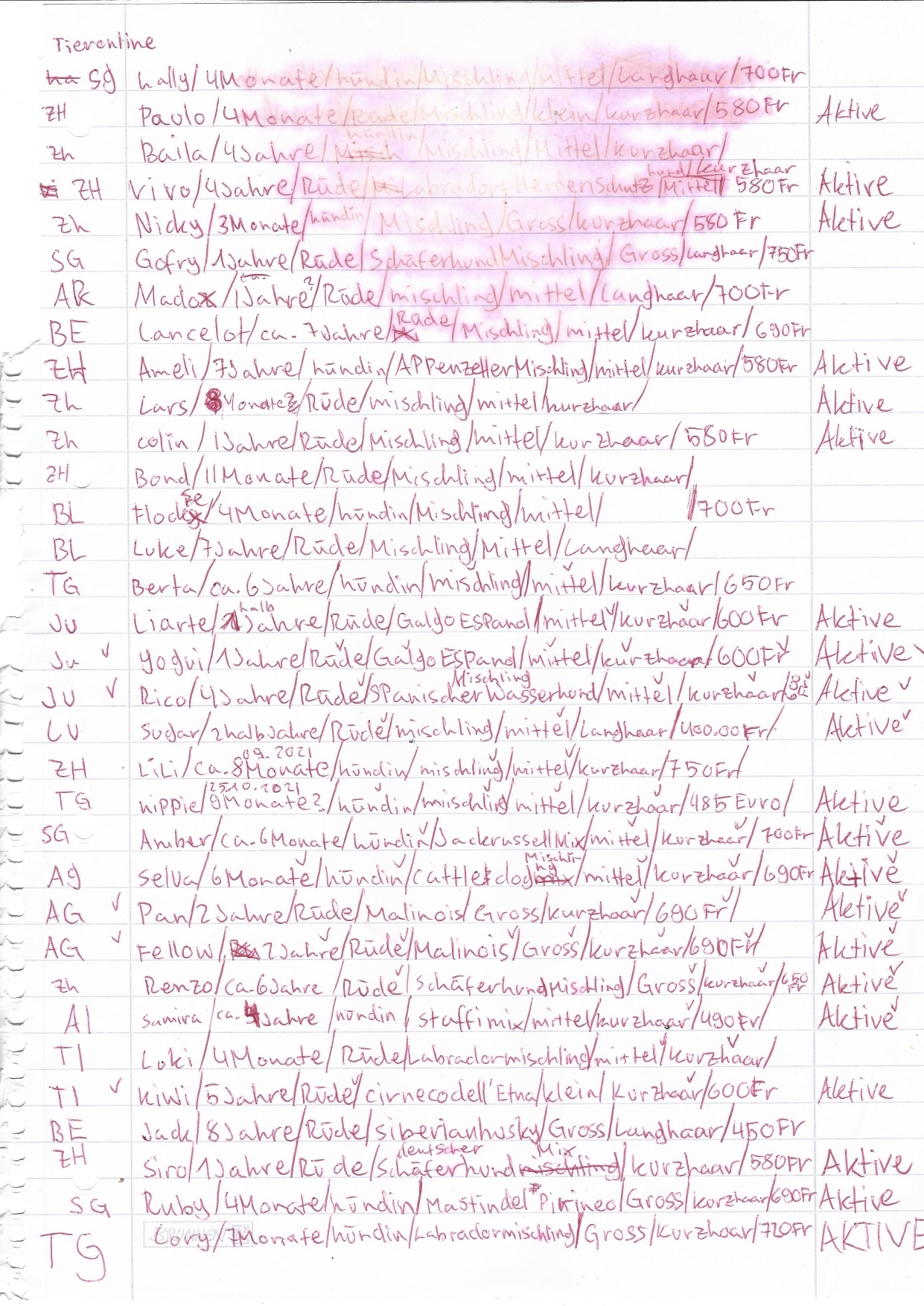
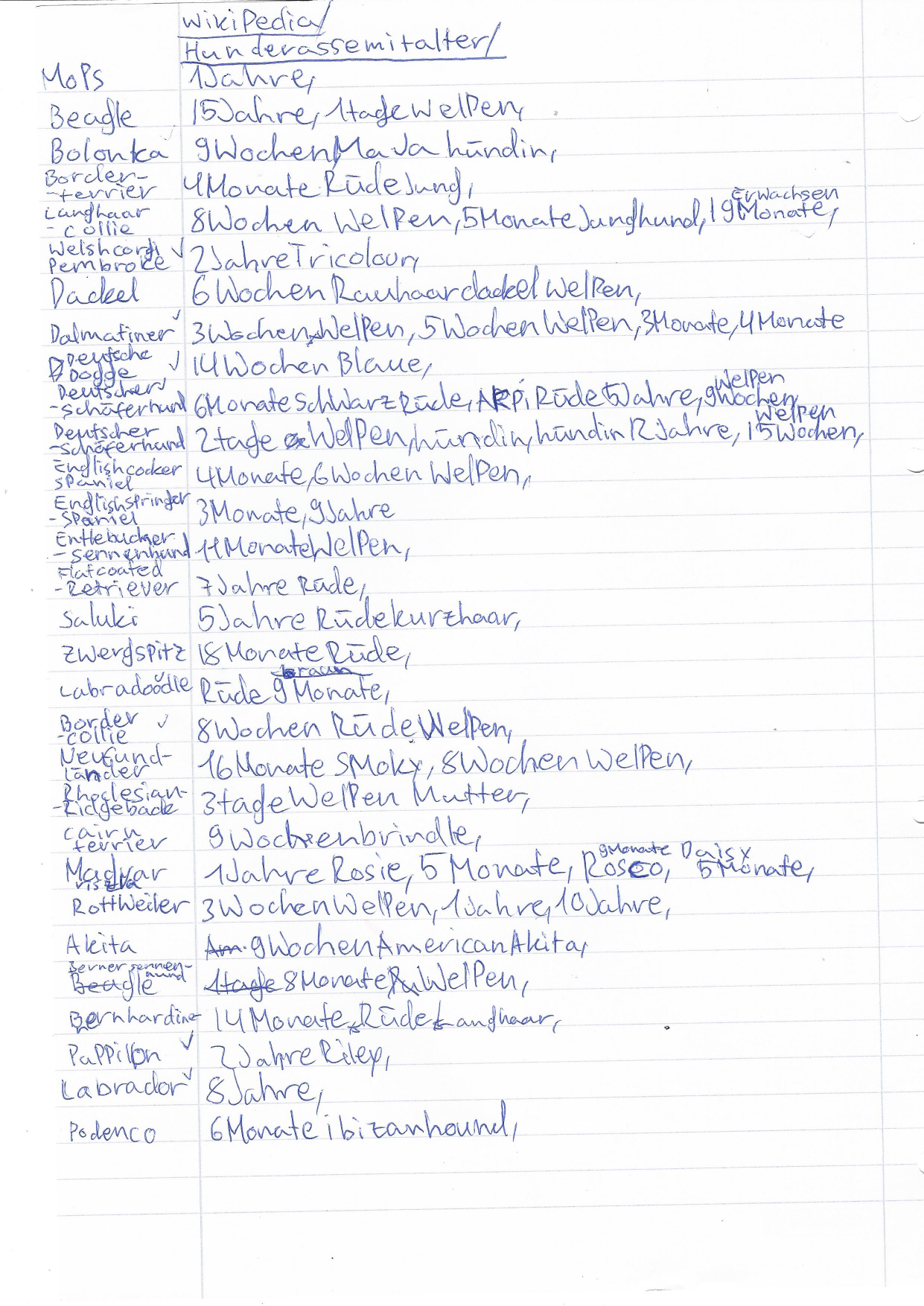
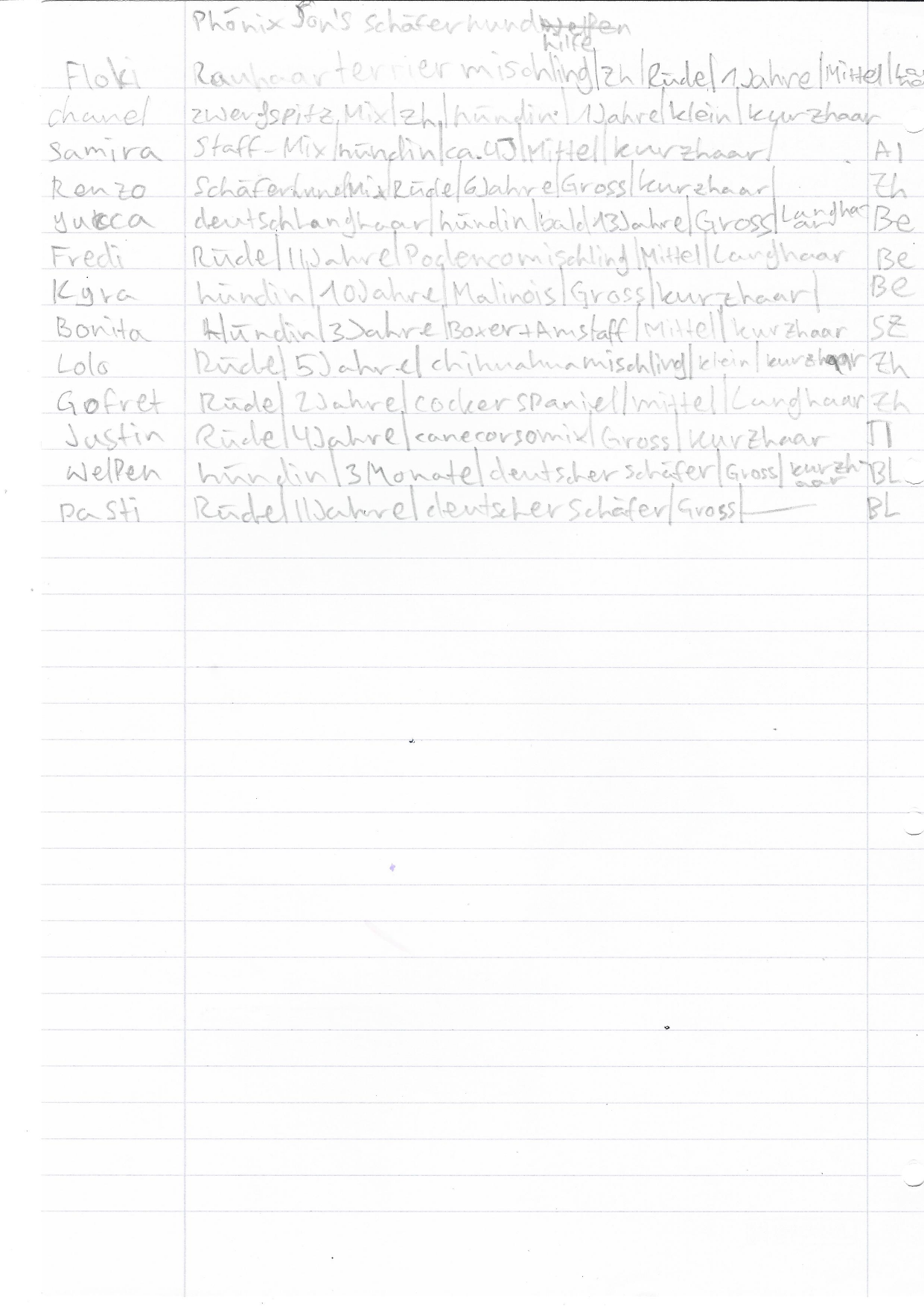
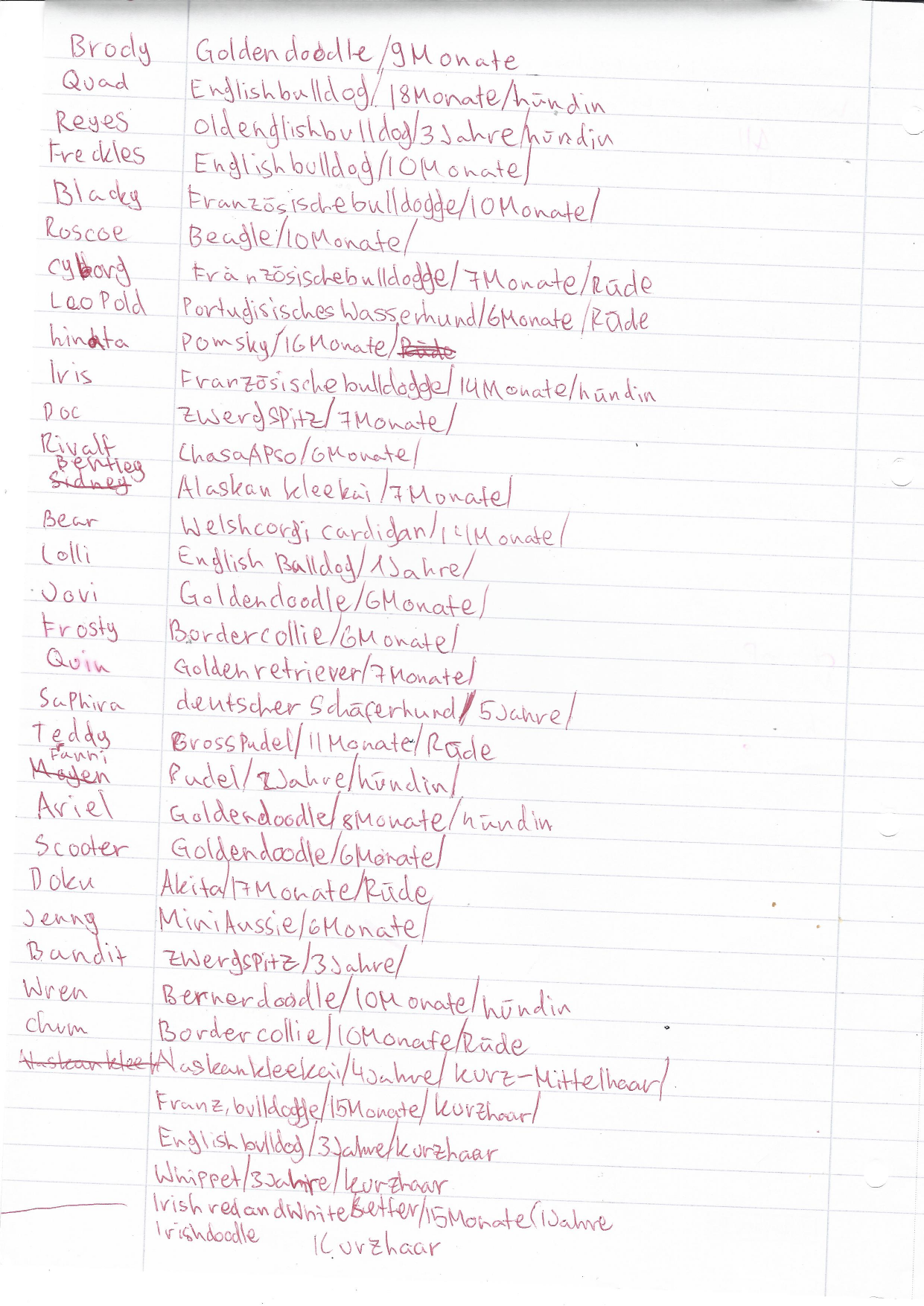
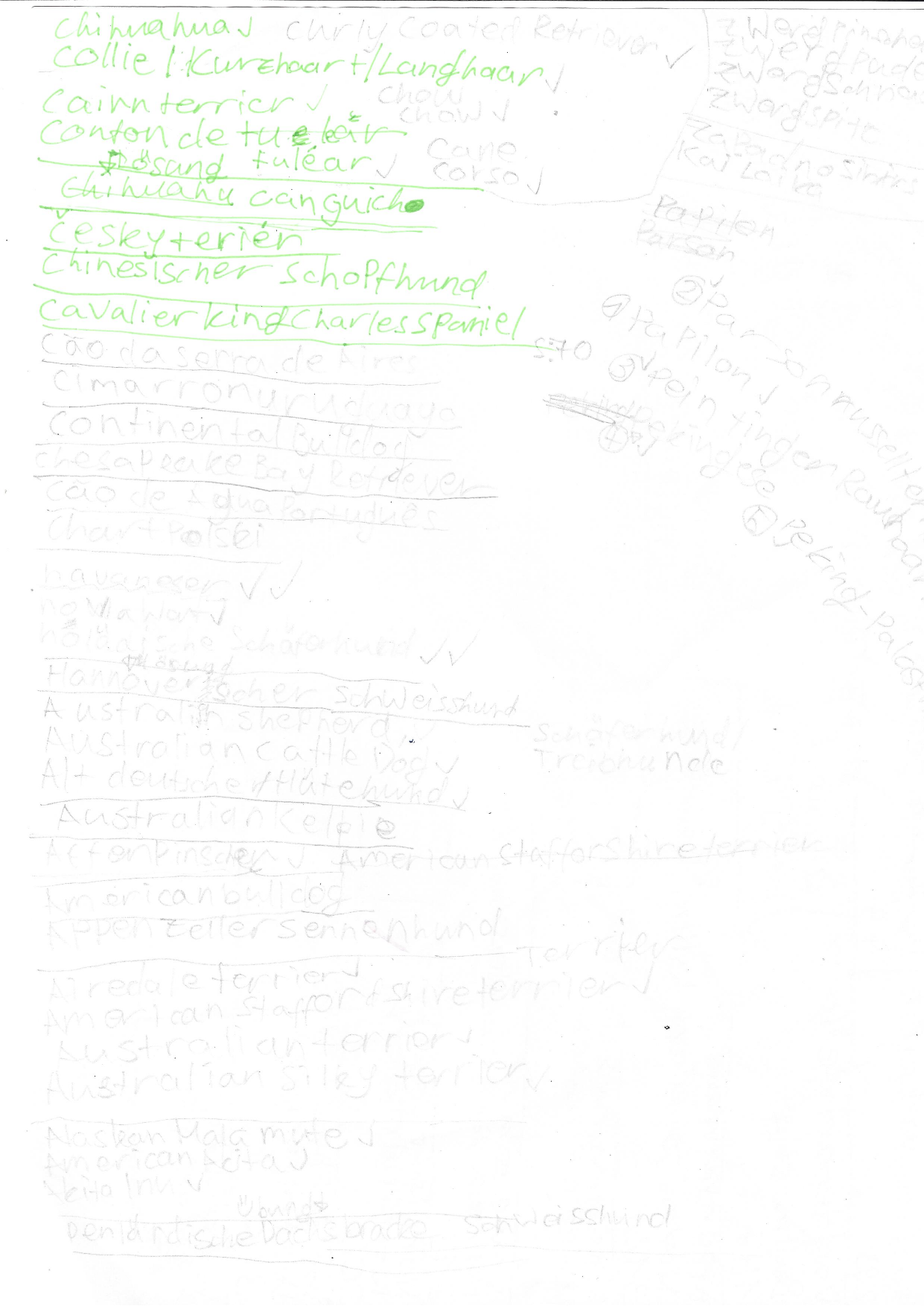

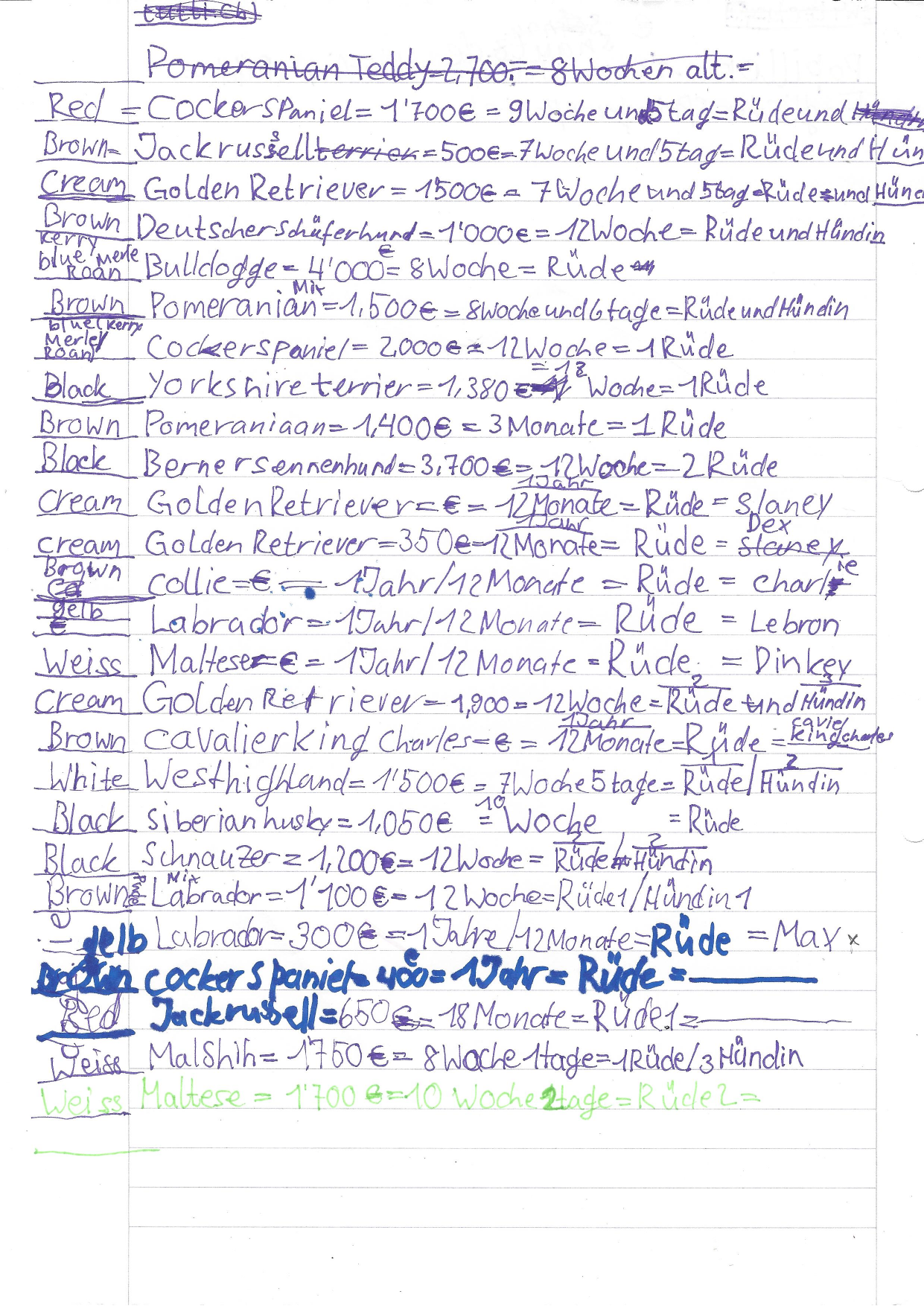
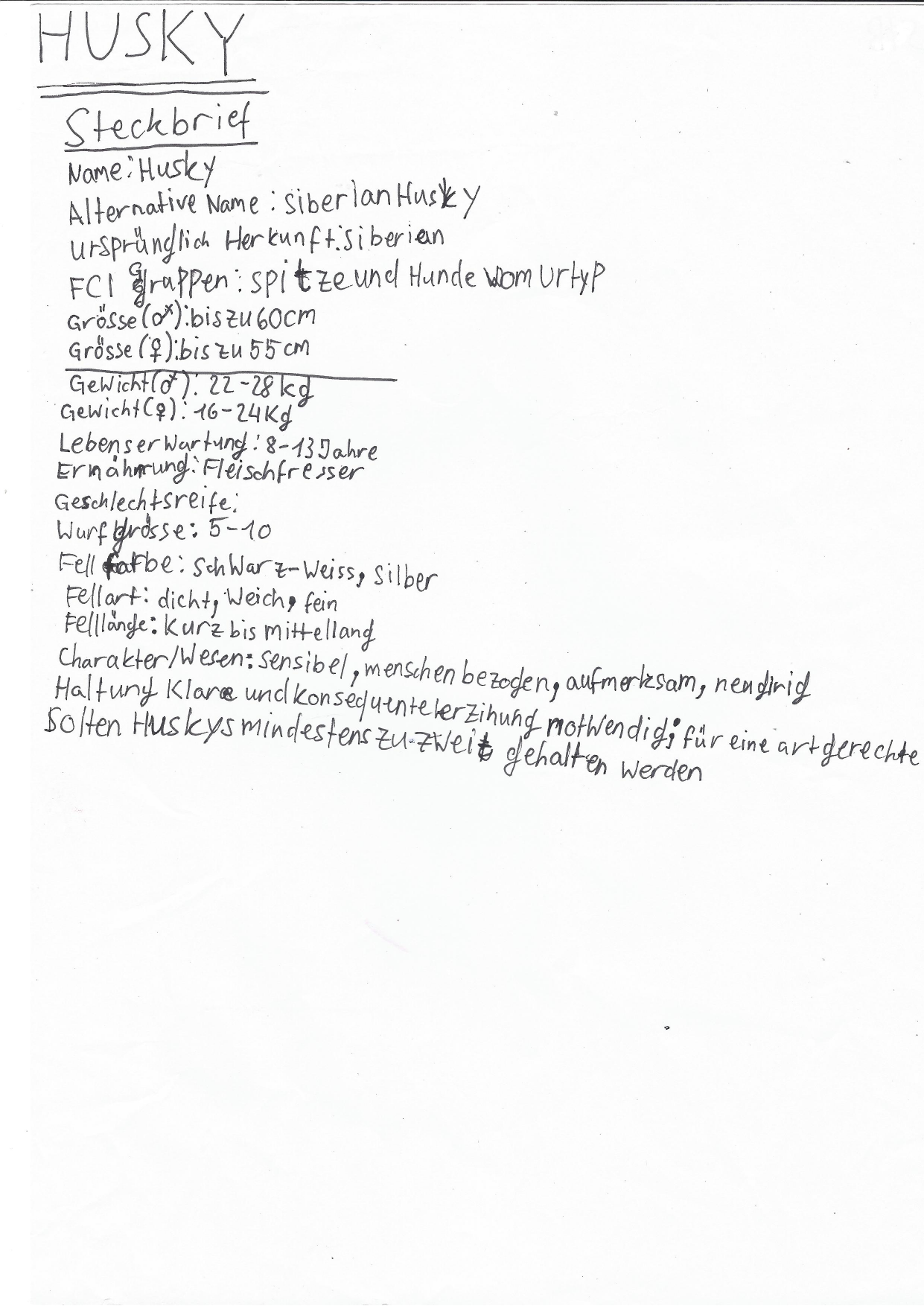
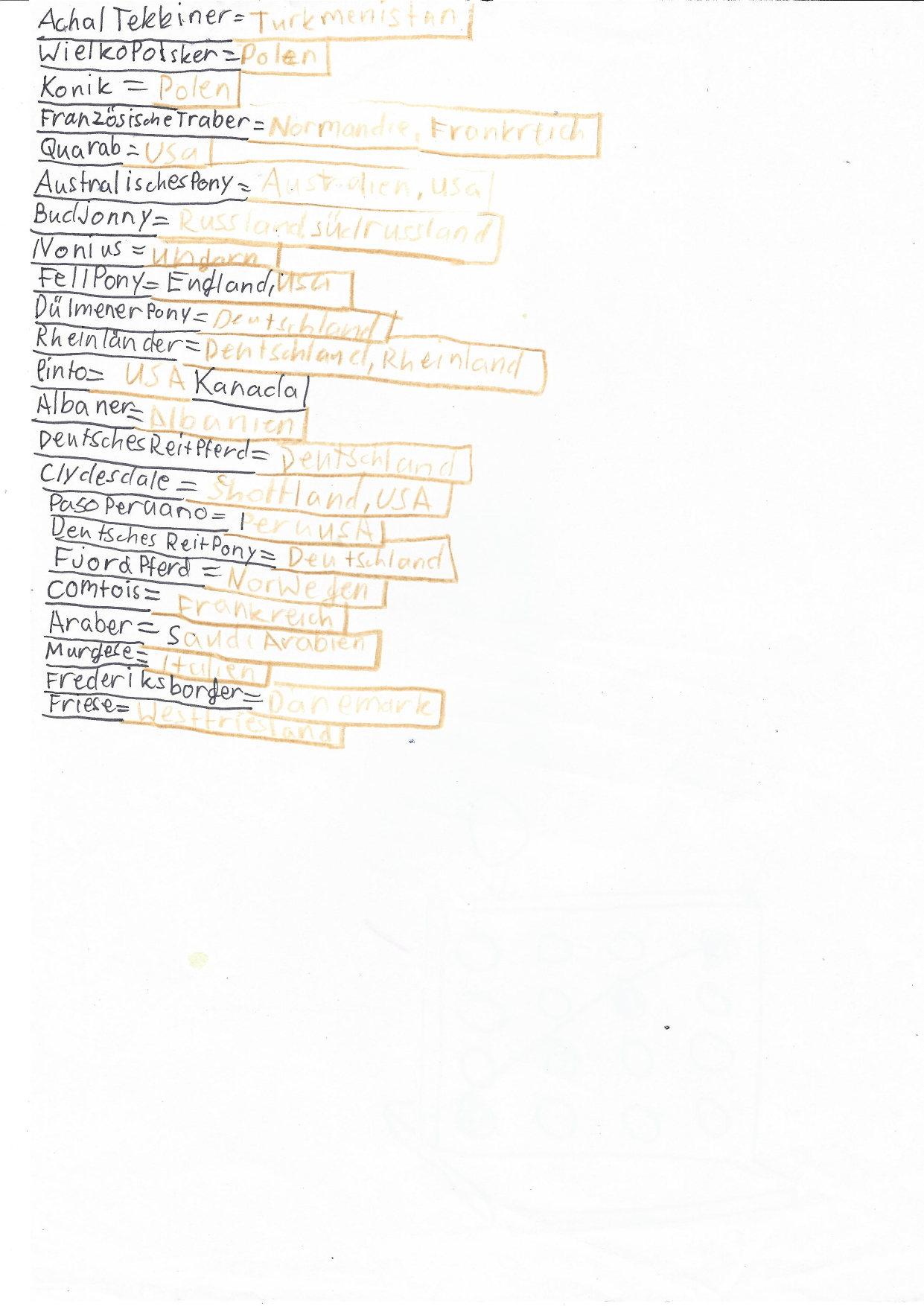
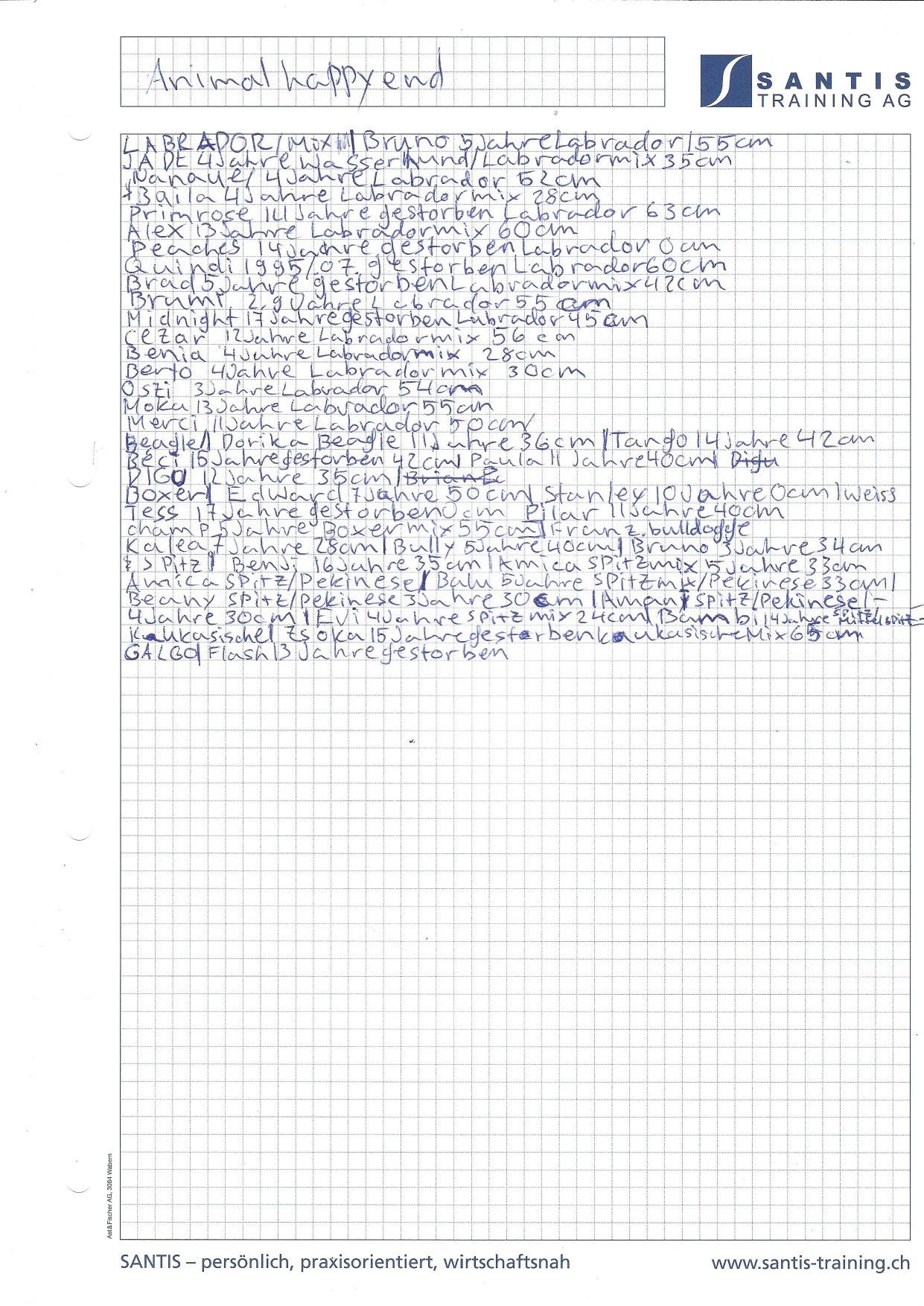
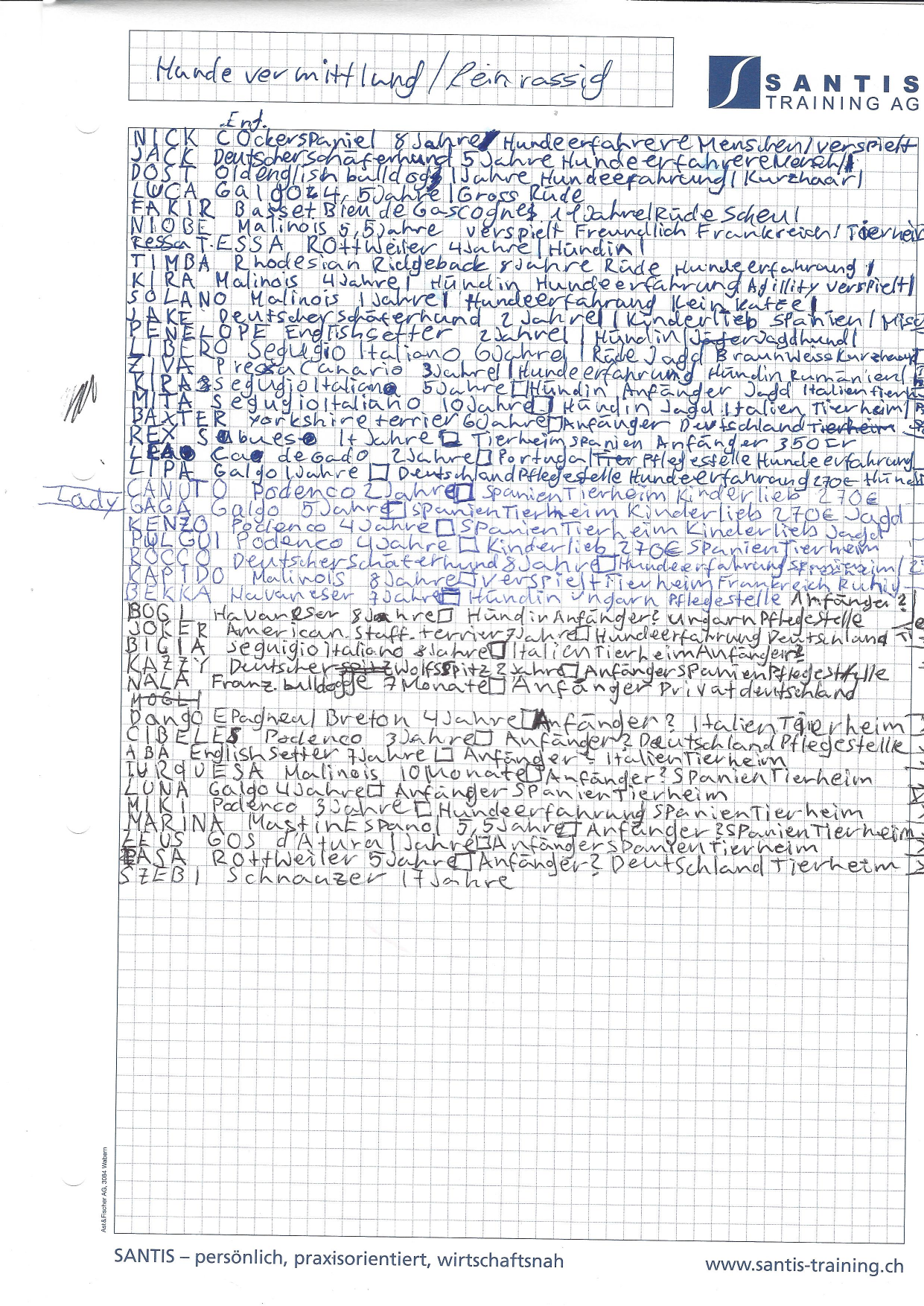
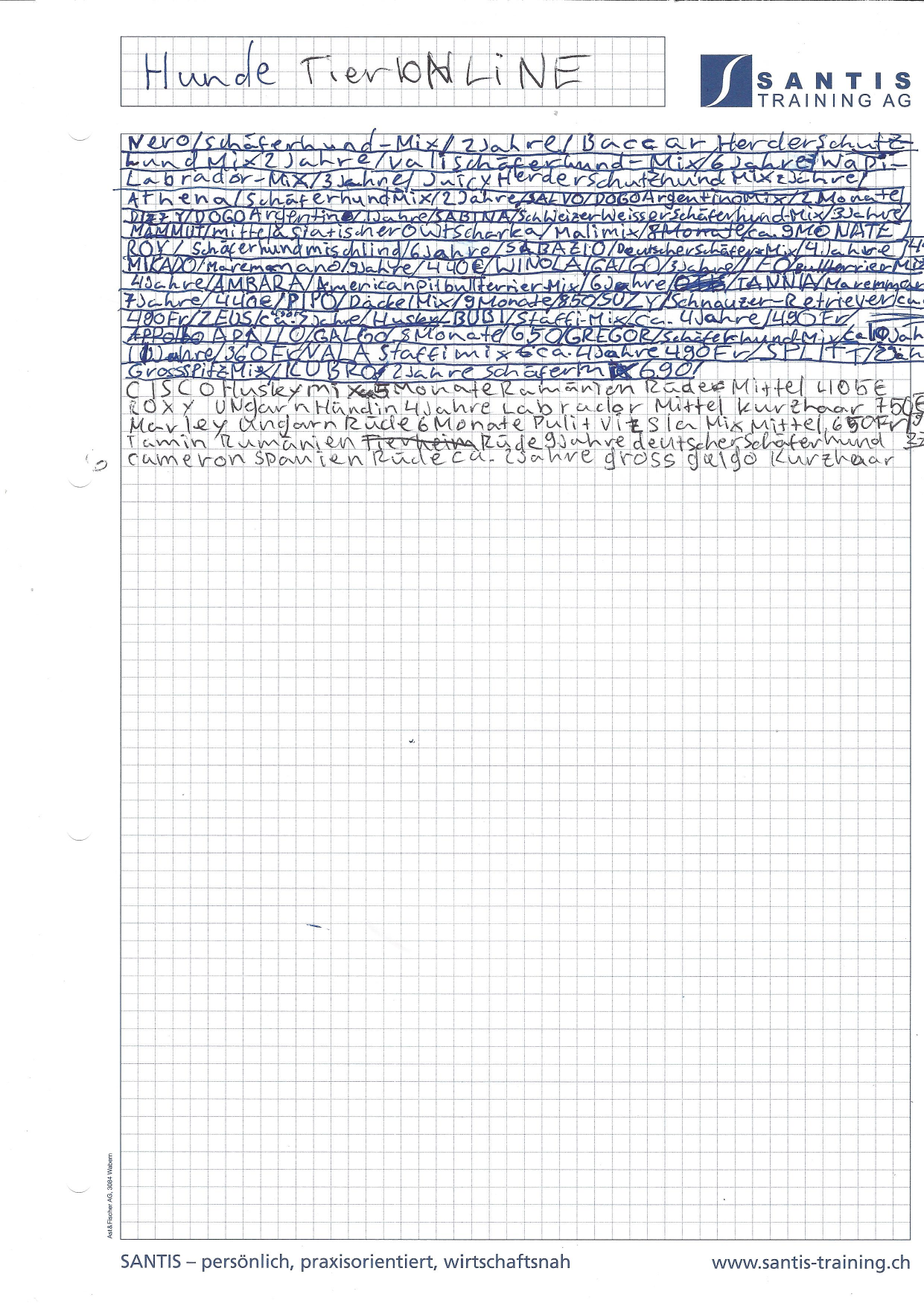
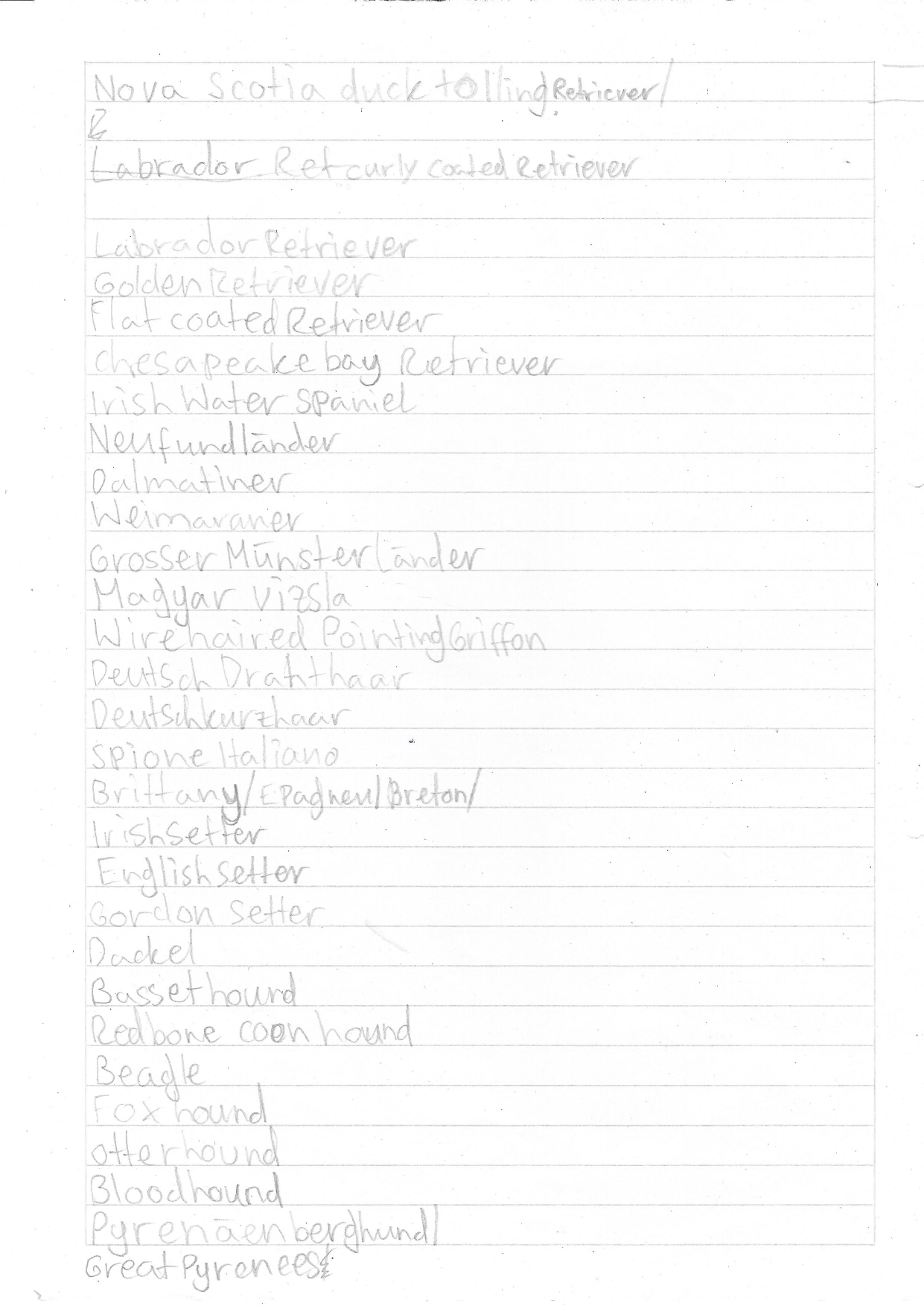
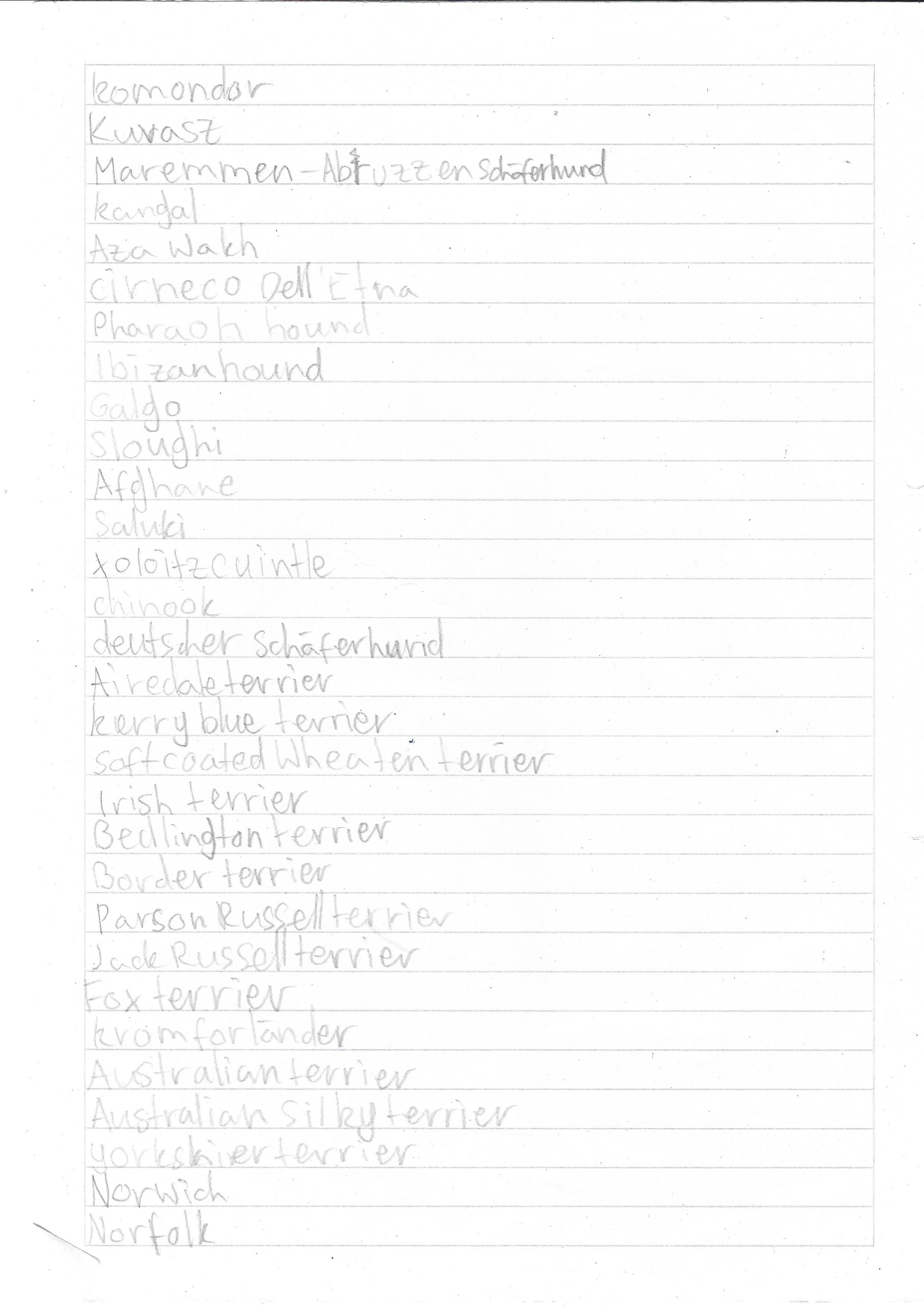
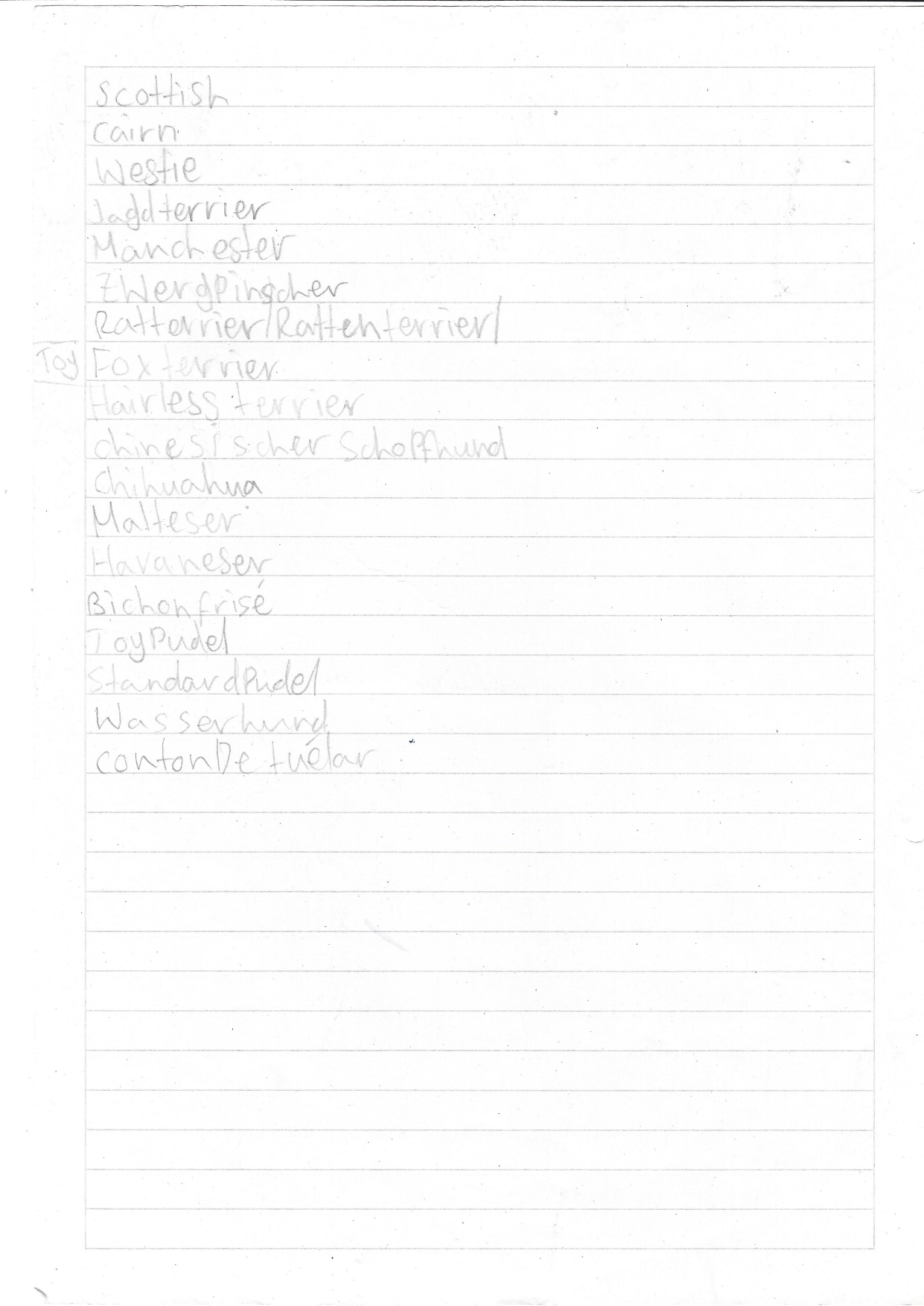
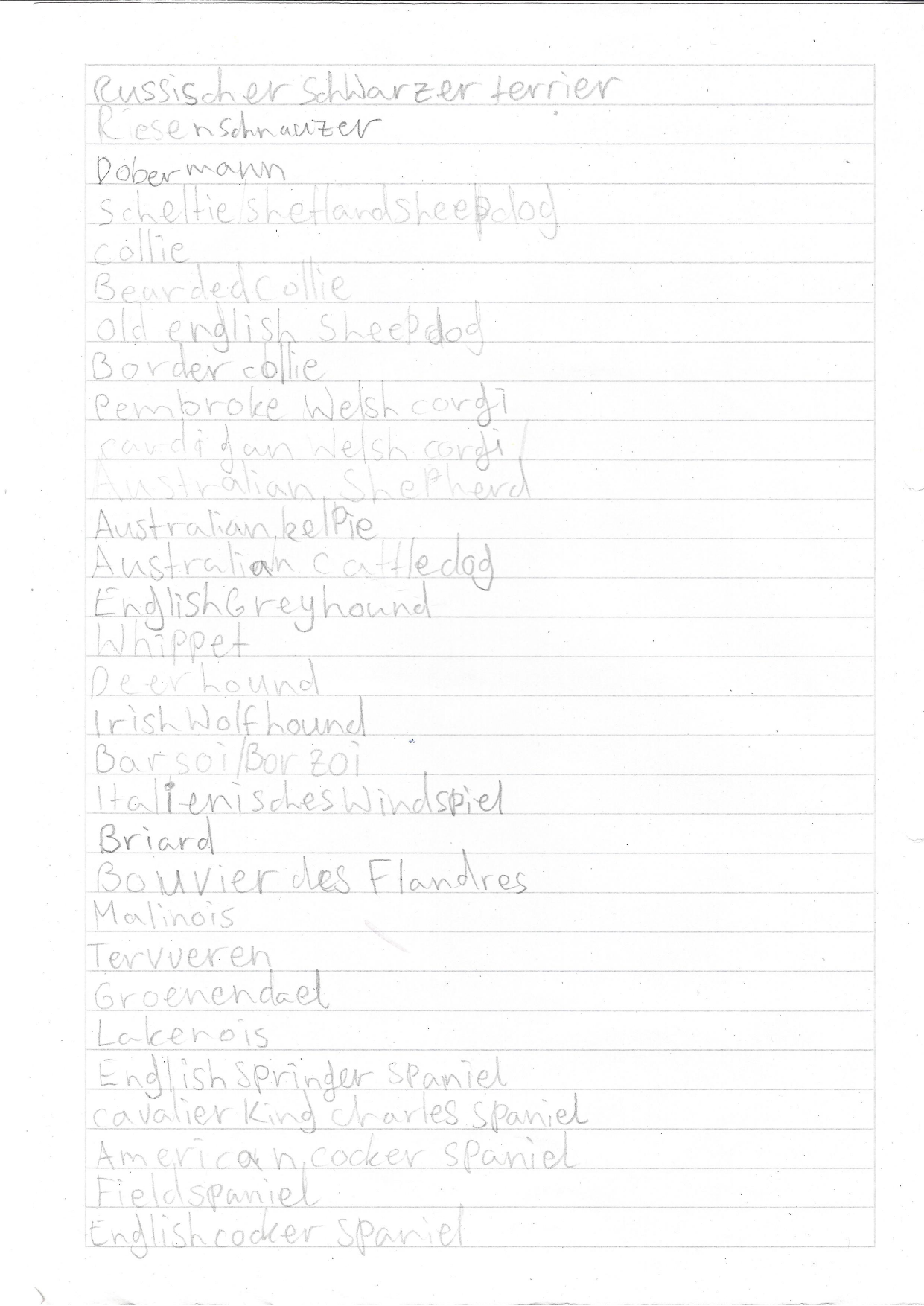
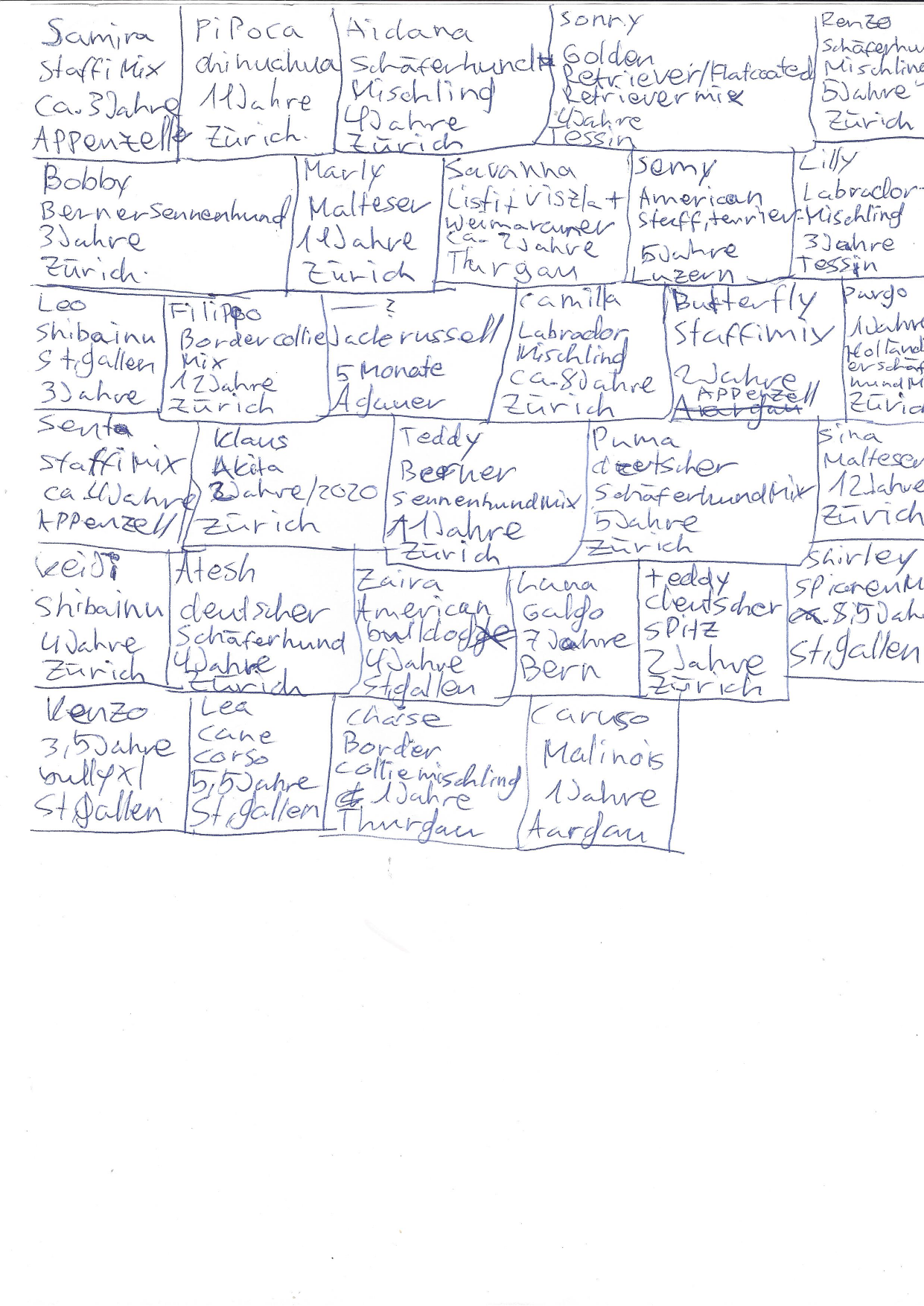
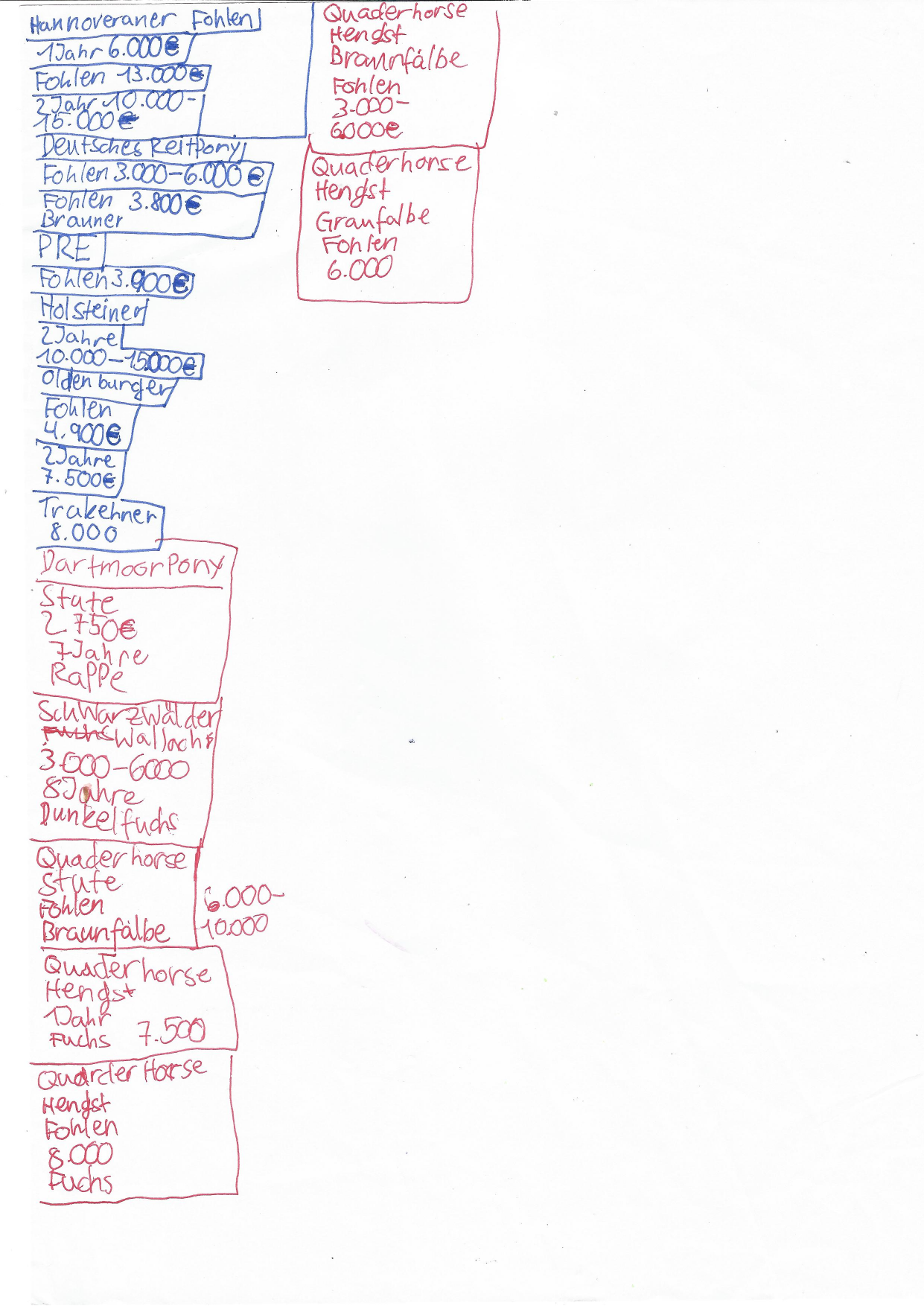
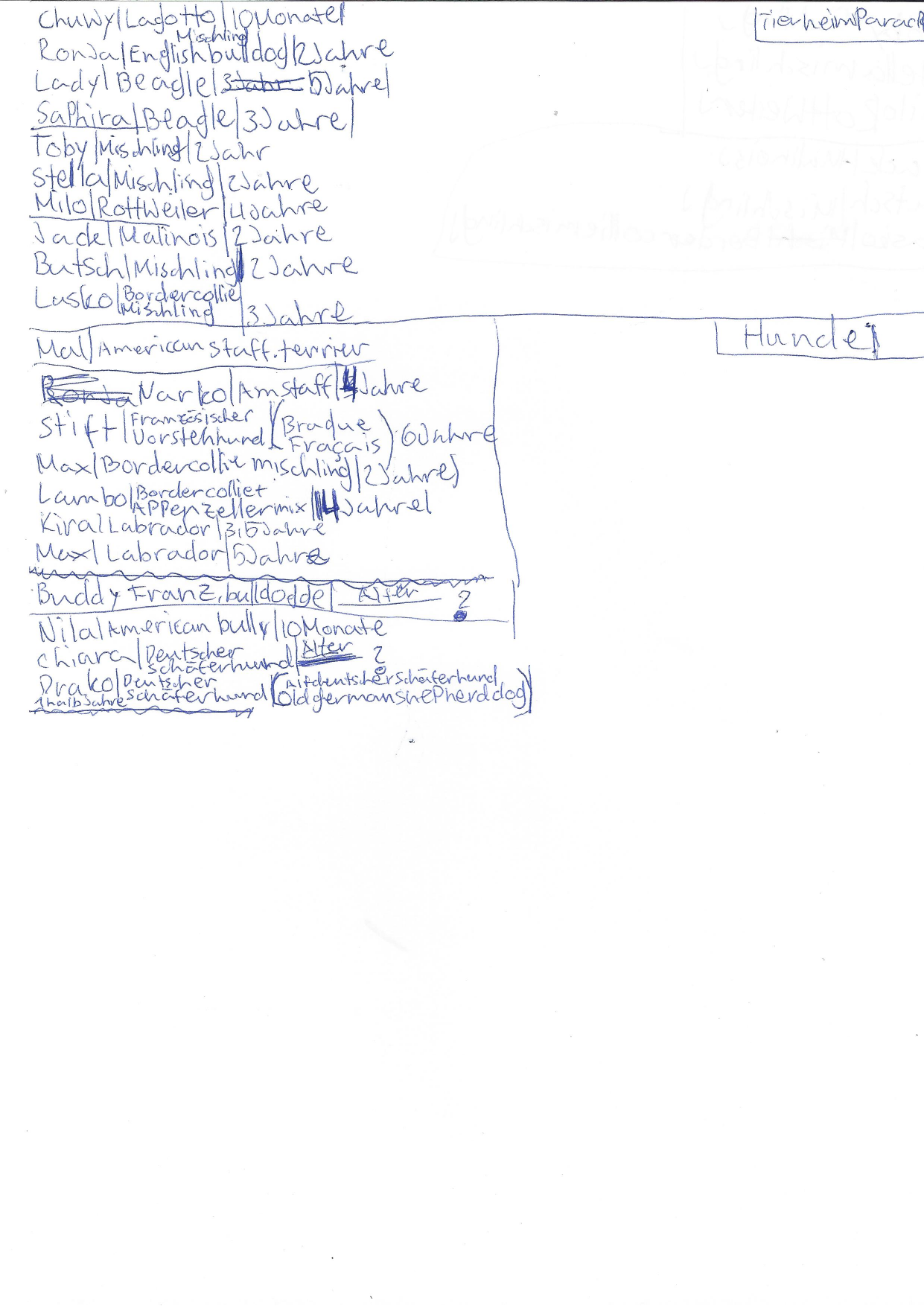
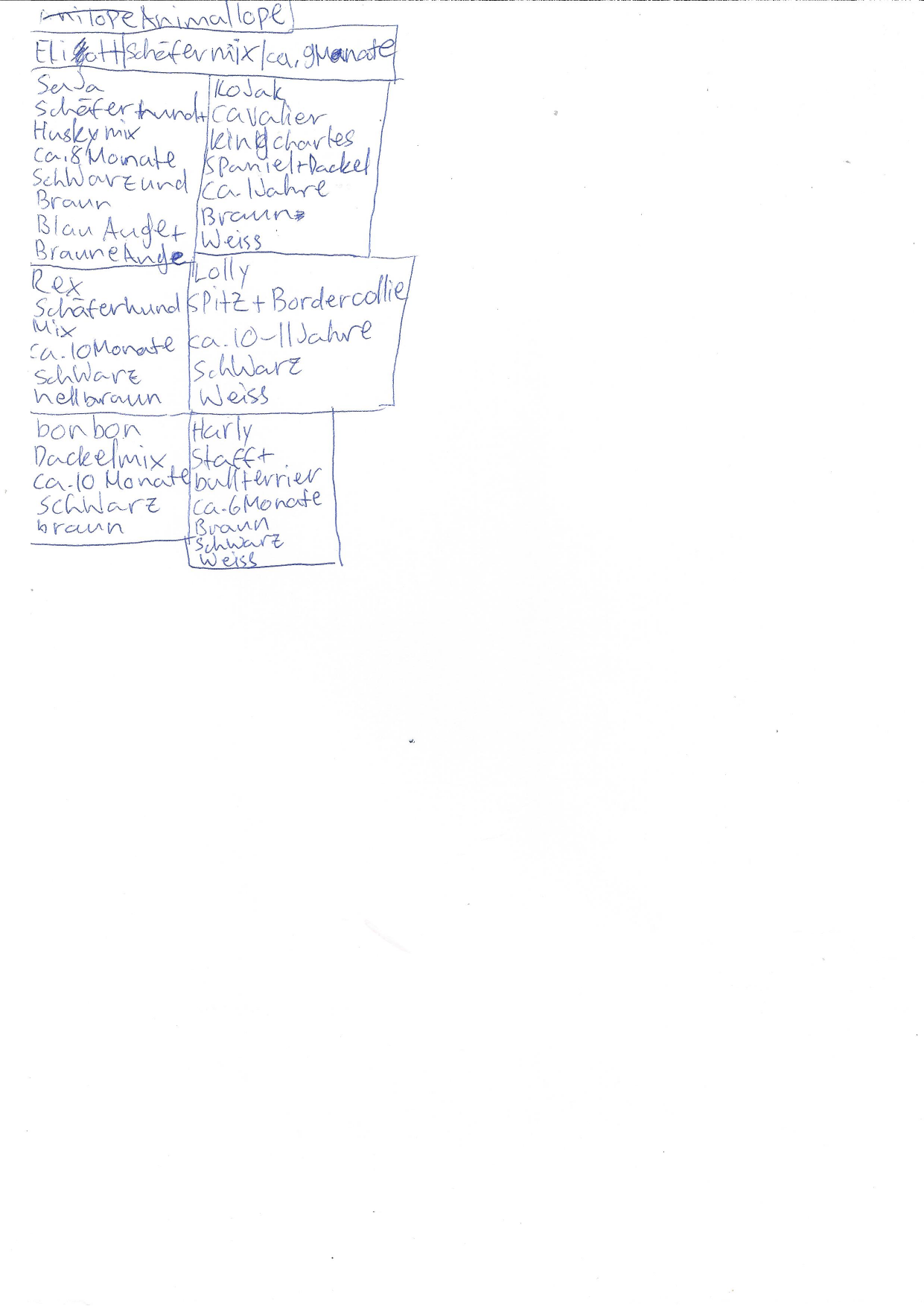
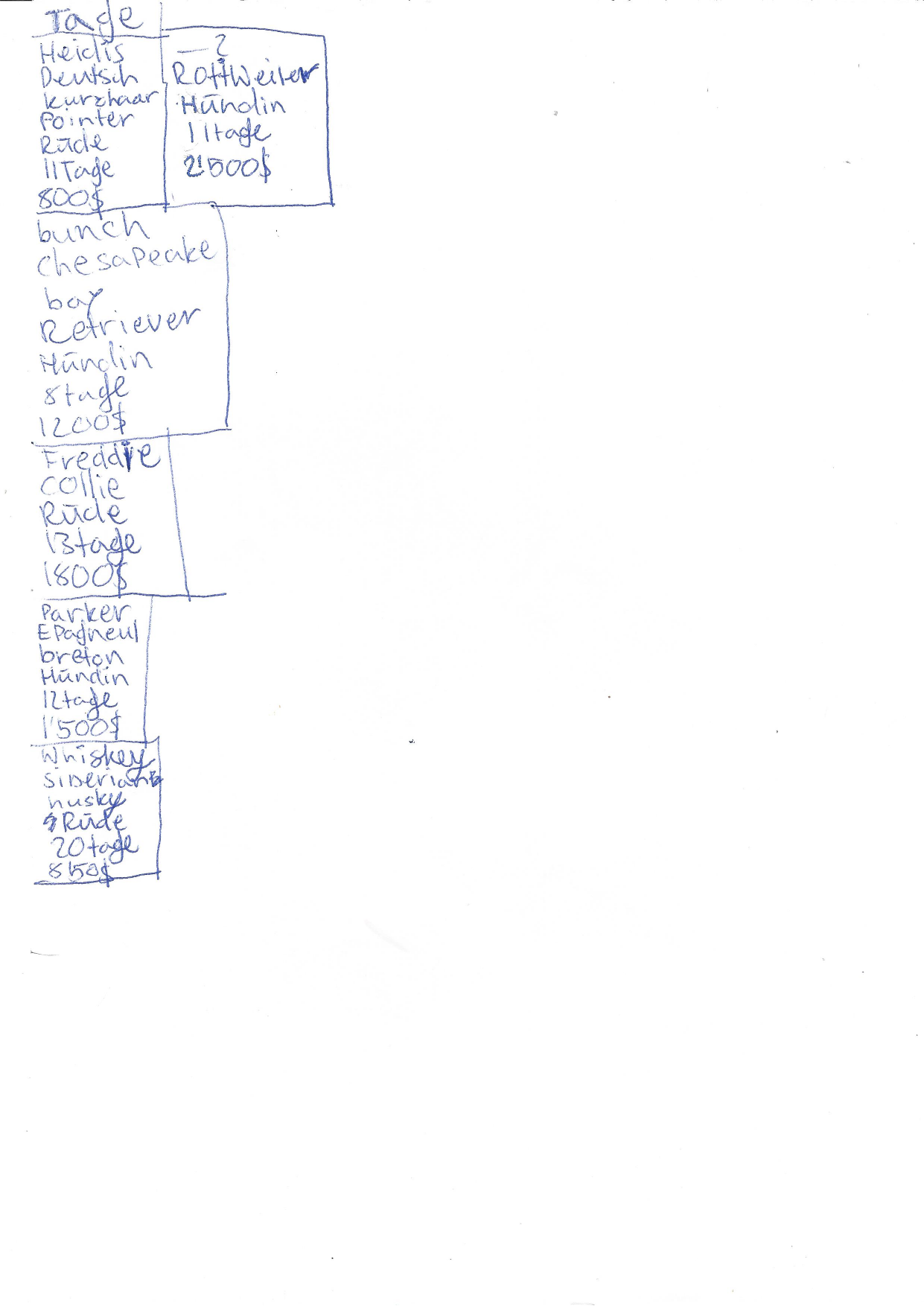
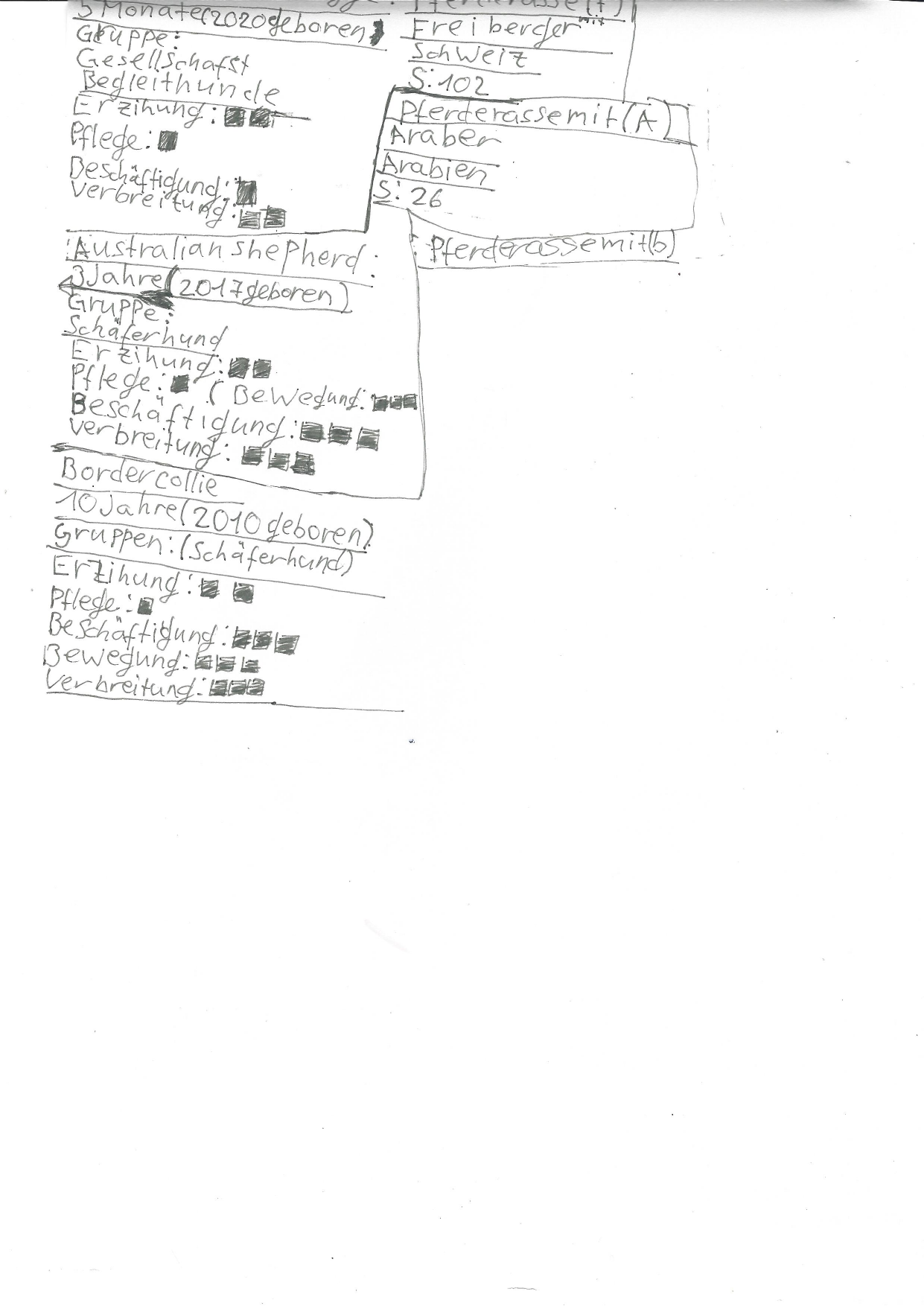
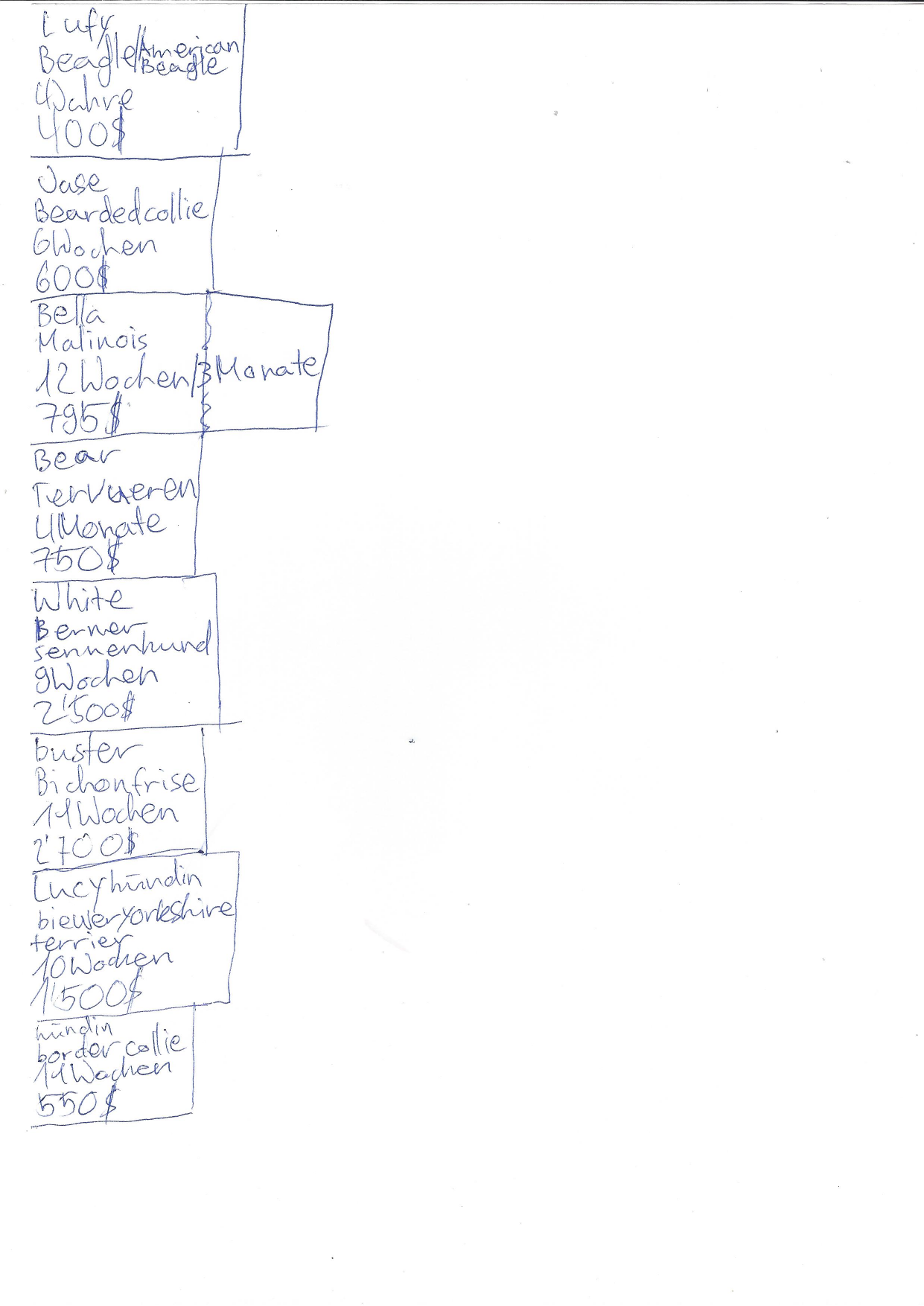

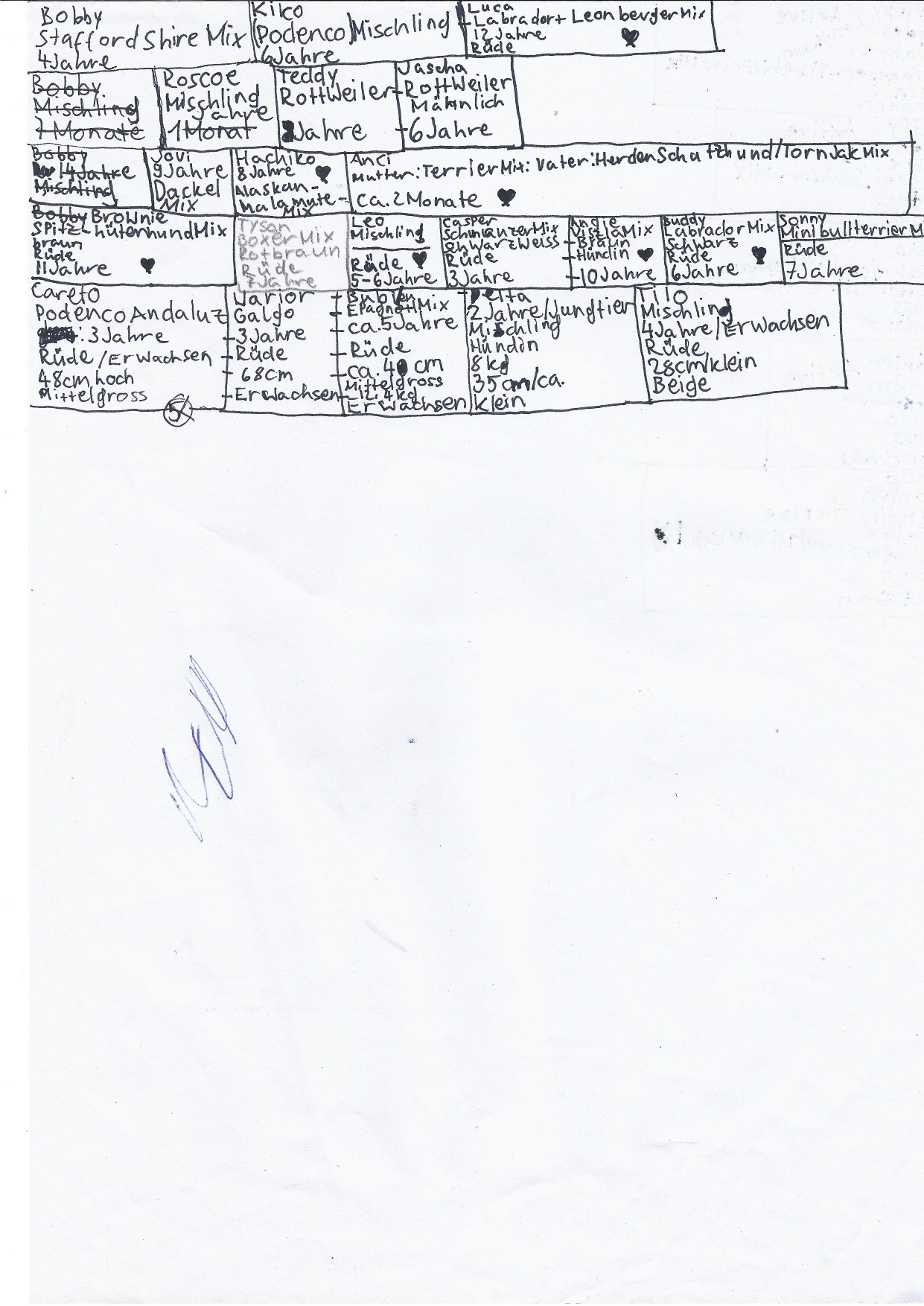
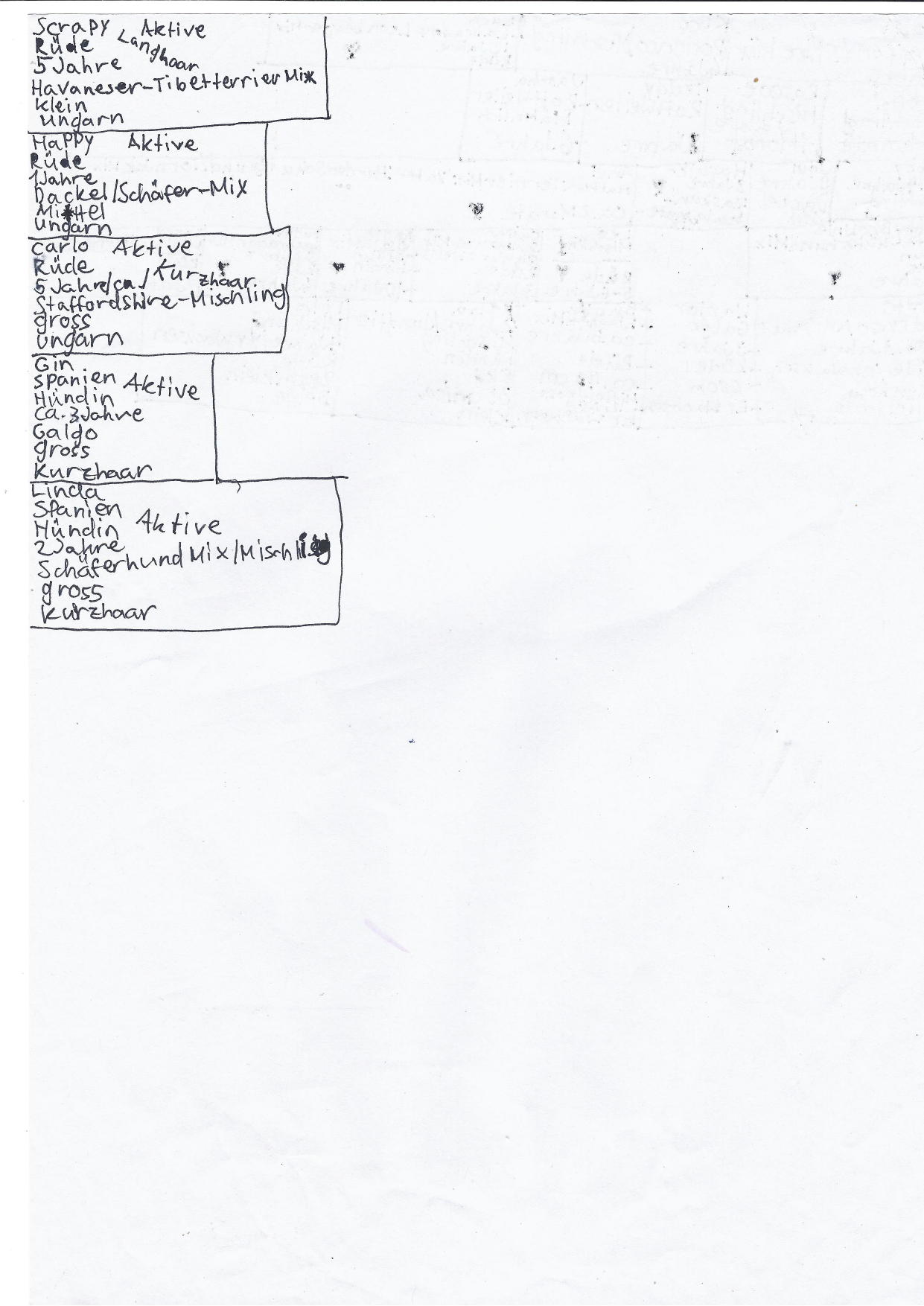

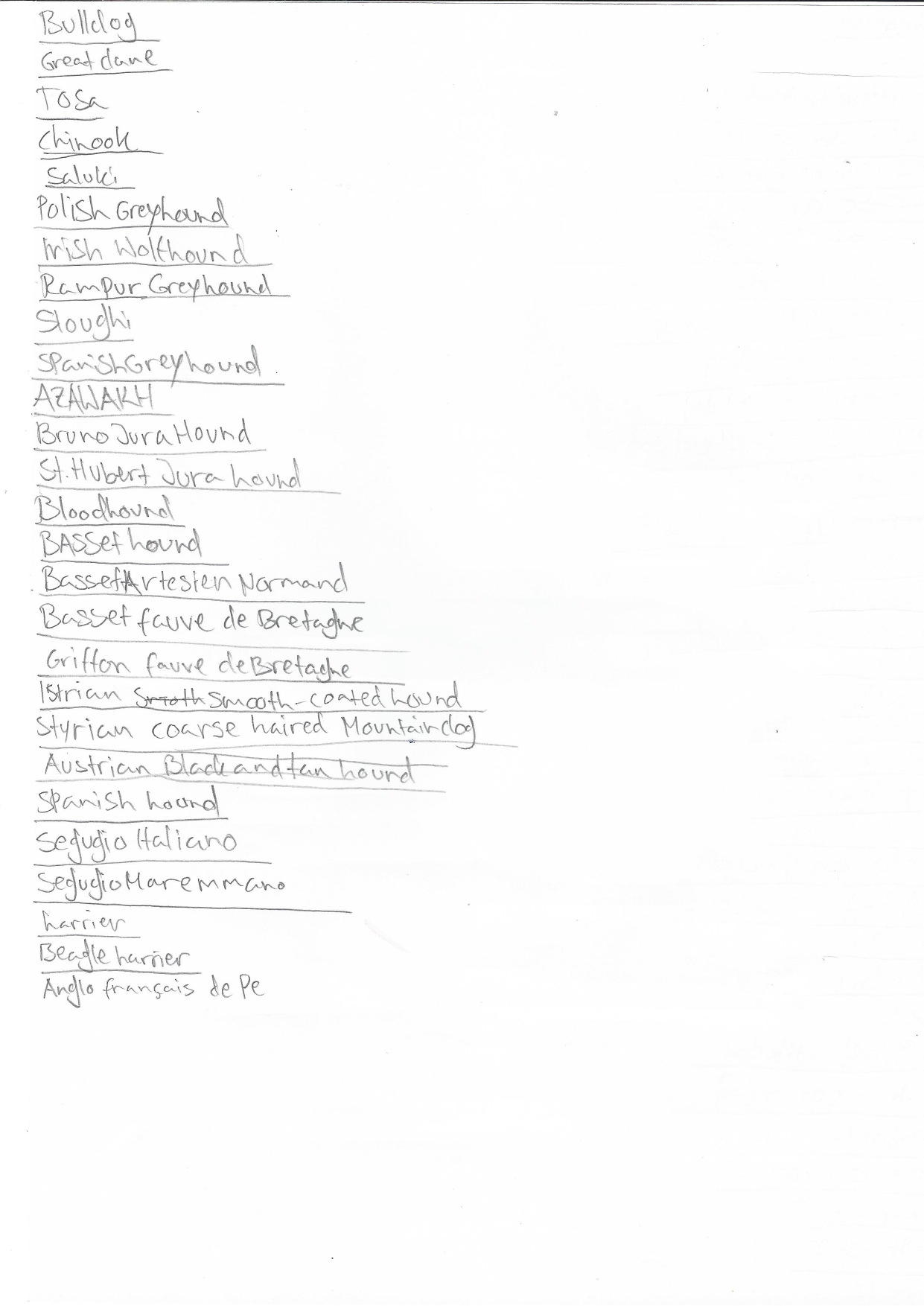


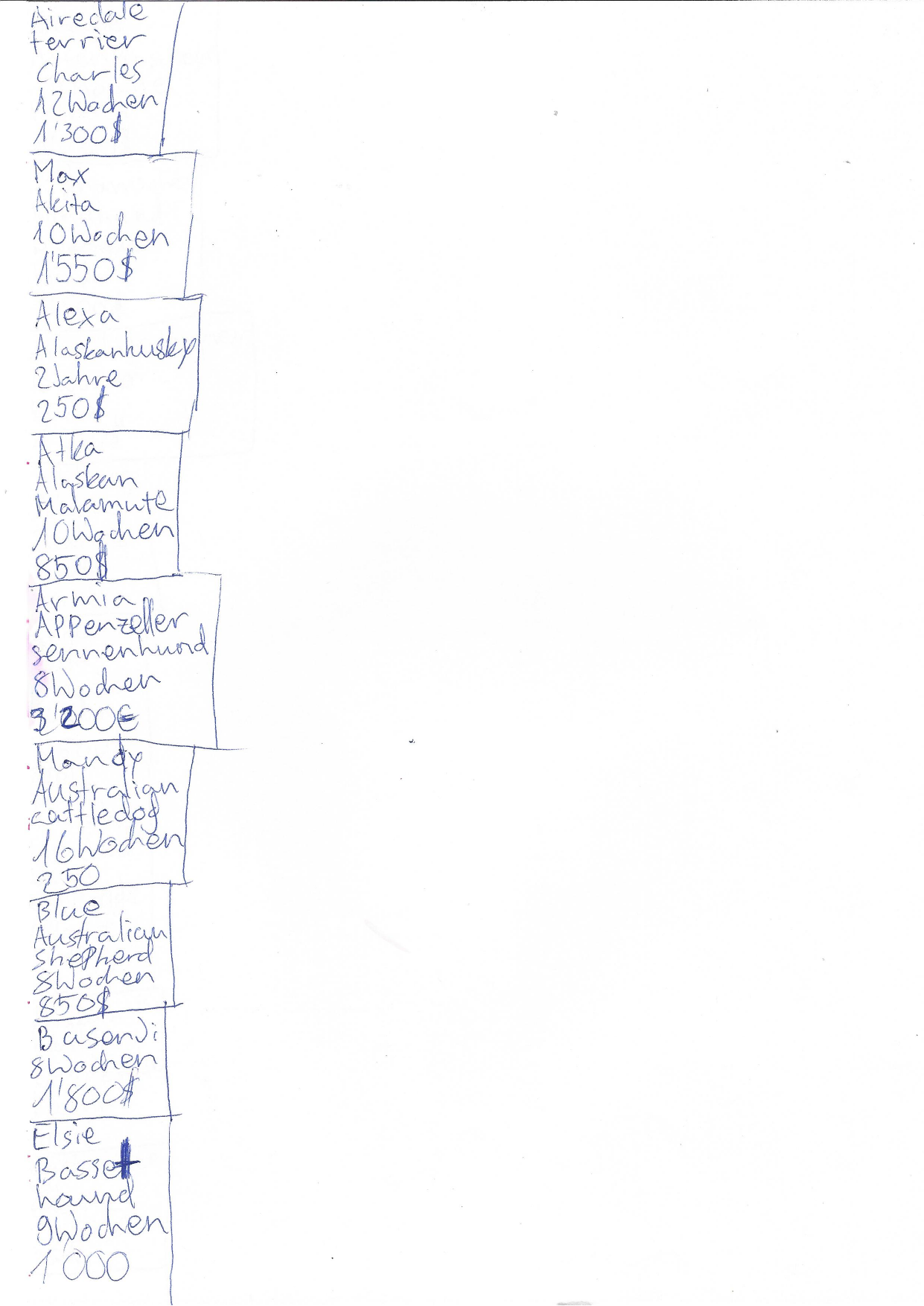



Anna
Text from Verena (Anna’s Grandmother)
My granddaughter is 15 years old and really wants a dog!
She is autistic and has difficulty connecting with other children, which is why she often feels lonely!
A dog would be a great companion. A door opener to the outside world that would bring structure to her everyday life and an important task!
A best friend who loyally supports her, listens patiently and has a calming effect when she is stressed. A friend who accepts Anna as she is!
Unfortunately, Anna’s parents‘ Caroline and Stefans financial circumstances are very difficult and the additional costs that a dog entails are not within their budget.
Text from Caroline (Anna’s mom)
Anna is extremely talented in dealing with animals. She is patient, persistent, sensitive, very eager to learn and already has a great deal of specialist knowledge.
This special connection to animals was an important part of Anna’s life from a very early age. She was allowed to take therapeutic riding lessons when she was 6 years old. At the same time, she learned everything about horses through self-study with several books and learned to recognize horse breeds.
At home she keeps rats and is a really caring rat mommy. (As long as it doesn’t involve cleaning them out ;))
She can even tame wild animals! In Green Park London she has always managed to attract the squirrels. They even sat on her lap and let Anna train them! We didn’t see much else of London other than this park!
For several years now, her main focus has been on dogs. Every dog she sees on the street is like a magnet to her. She always asks the dog owner these 5 questions;
“Can I pet the dog”
«What’s the name of the dog»
«How old is the dog»
«Is this a……..(she always guesses the breed of dog or asks if she doesn’t know.)
“Can I take a photo of the dog?”
All information is then saved on her cell phone. She has already recorded hundreds of dogs using this method. Her cell phone became her own lexicon.
At home, Anna spends hours reading books about dog breeds. With the help of the computer, she searches online for dogs that are looking for a home around the world and also notes down all the information.
And of course she watches all the dog programs on TV. For example, “Der Hundeprofi”, “Top Dog Germany”, “Martin Rütter – The puppies are coming” and on the English channels e.g. “Cruft” – Show from Birmingham or “Dogs Behaving Badly” and a several more.
Anna has acquired a great deal of knowledge through self-study and is always learning new things!
Anna has also been looking after several dogs for a long time. One of them she is allowed to take home regularly- Stella! A great dog! Anna has built a wonderful bond with Stella and has taught her an incredible number of tricks!
She wants her own dog so badly!
In the summer of 2024, Anna will finish her compulsory schooling and she wants nothing more in her life than to become a professional dog trainer! We really hope Anna’s wish will come true and she can make the best use of her talent!
Anna and autism
Text from Caroline (Anna’s mom)
The diagnosis came late! Due to her general developmental delay, neither teachers, special education teachers nor her pediatrician noticed that Anna is autistic. During countless visits to the Zurich Children’s Hospital, the diagnosis of autism was never considered.
It wasn’t until Anna was 12 years old that her father, after extensive research, suspected that our daughter might be autistic. After clarification, certainty followed by lots of insights! Some of Anna’s behavior that we couldn’t understand now made sense to us!
She is a fantastic child! She is very warm-hearted, generous, honest, correct and incredibly humorous and a rascal!
Anna is extremely independent in many things, but still relies on our help and others.
Autism
Text excerpt from Wikipedia
Autism, formally called autism spectrum disorder (ASD) or autism spectrum condition (ASC), is a neurodevelopmental disorder characterized by deficits in social communication and social interaction, and repetitive or restricted patterns of behaviors, interests, or activities, which can include hyper- and hyporeactivity to sensory input. Autism is clinically regarded as a spectrum disorder, meaning that it can manifest very differently in each person. For example, some are nonspeaking, while others have proficient spoken language. Because of this, there is wide variation in the support needs of people across the autism spectrum.
Autism dog
Text excerpt from www.blindenhundeschule.ch
The autism dog is a specially trained dog that accompanies children and adults on the autism spectrum. He is more than a therapy dog who promotes development and provides friendship through his mere presence. The autism dog takes on the role of a therapy dog and an assistance dog at the same time: As a therapy dog, it can help improve motor skills and vocabulary, allow for bonding and promote contacts. As an assistance dog, the autism dog actively takes on tasks to ensure safety. Autism dogs should not be confused with the use of dogs in animal-assisted therapy. While dogs are used as part of animal-assisted therapy in support programs for autistic children and thus promote motor skills, language skills, stress reduction and socializing, autism dogs are trained assistance dogs that help a single autistic person through various learned tasks.
When it comes to choosing an autism dog for a child, parents play a crucial role. You take complete responsibility for the dog while the dog builds a close bond with all family members and helps both the autistic person and the parents. An autism dog improves the life of the entire family.
Every autism dog is trained individually to meet the needs of the person affected. First, an autism dog goes through basic training and learns the proper behavior and standards of an assistance dog. After about 1 year, training begins on the individually helpful autism dog tasks.
Autism dog for Anna?
Text from Caroline (Anna’s mom)
Last year I inquired about the possibility of bringing in a assistance dog. But Anna made it very clear that she didn’t want that. Anna wants to become a dog trainer, so she would like to adopt a puppy that she can then raise and train herself. Makes sense! In addition, the demand for autistic dogs is already much higher than the supply and the waiting lists are correspondingly long. Many institutions also use a lottery system and only give dogs to small children or only to adults. The likelihood of getting an assistance dog for Anna would be dwindling anyway.
Crowdfunding
Text by Verena, Anna’s Grandmother
Since an assistance dog is not an option for Anna, the family will have to choose/buy a dog independently.
A dog could help Anna train her motor skills, increase her empathy and sense of responsibility, and increase her self-confidence.
The family’s financial resources are already very limited.
Anna’s father is 70% disabled, but does not receive any disability allowance or other support in Switzerland because he arrived with this disability.
Anna works with great enthusiasm and wholeheartedly and thinks about which dog is right for me and the family. She would like to visit 2-3 breeders because a dog is an adoption for the dog’s entire life.
I wish Anna’s dream will come true and that she has a loyal friend by her side for many years to come.
Cost of dog
Text – excerpt from Comparis
https://www.comparis.ch/tierversicherung/hunde/kosten
A dog’s life lasts on average around 13 years. In total, your dog will cost tens of thousands of francs during this time.
1. One-off costs for a dog in Switzerland
As a dog owner, you should expect to pay at least 1,580 francs in the first year. The costs differ depending on the dog breed and purchase. Any treatment costs at the vet as a result of an illness or an accident are not included.
Here you will find an overview of the most important one-time expenses:
Costs for dogs in the first year
Purchase from CHF 500
Basic equipment: leash, dishes, bowls, basket, blanket, toys from CHF 200.00
Combined vaccinations basic immunization from CHF 100.00
Deworming for puppies from CHF 10.00
Chip and pet passport from CHF120.00
Dog school from CHF 500.00
Dog box from CHF 100.00
Dog bag for small dogs from CHF 50.00
Total: from approx. 1580.00
Neutering a dog: Costs in Switzerland
You may only castrate your dog when it reaches sexual maturity at the earliest. Depending on the breed, this is the case from the age of six to twelve months. The cost of castration is determined by the veterinary practice. Castration is usually more expensive for female dogs than for male dogs.
Chemical castration (effective up to 14 months) CHF 250-500
Surgical castration (non-revocable) Males: CHF 250-500 Females: CHF 500-800
2. Recurring costs for a dog in Switzerland
A dog’s life lasts on average around 13 years. In total, your dog will cost tens of thousands of francs during this time. The table below gives a rough overview of the costs that can arise over the course of a dog’s life.
Annual cost of a dog
Food and treats CHF 250-1500
Dog tax (once per year) CHF 100-200
Liability insurance from approx. CHF 100.00
Toys CHF 50-100
Grooming and dog grooming CHF 50-1000
Veterinary costs for vaccinations, deworming, tick and flea treatments, check-ups from CHF 600.00
Total: CHF 1690-4100/year
We update the account balance here monthly;
Total Founding in CHF 4150.-
Total expenses in CHF:…….
We would be happy to publish photos of the puppy as soon as it is with us.
Donation account
UBS IBAN Nr:
CH45 0023 1231 8962 7540 E
Verena
5022 Rombach
Thanks for your support!
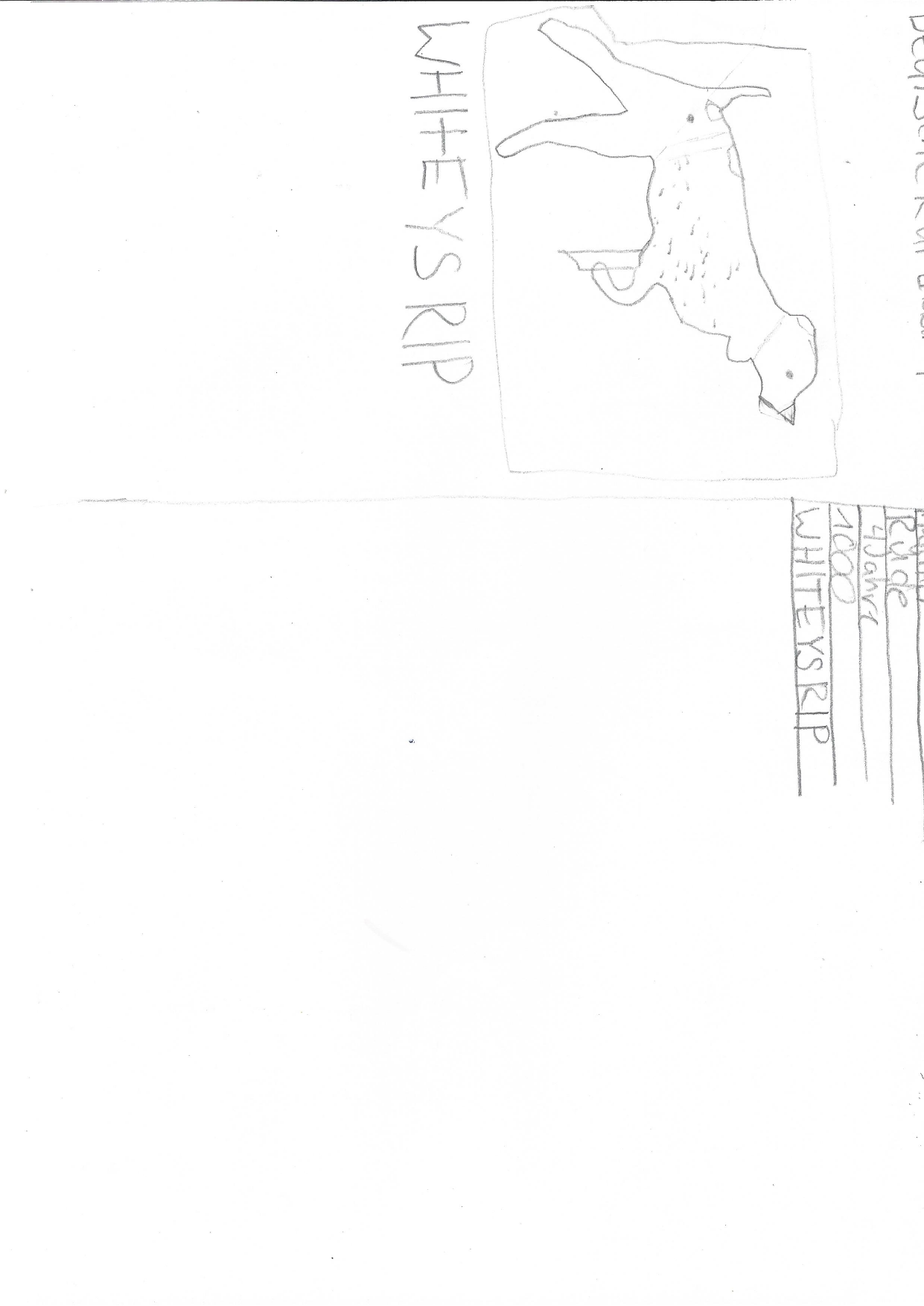
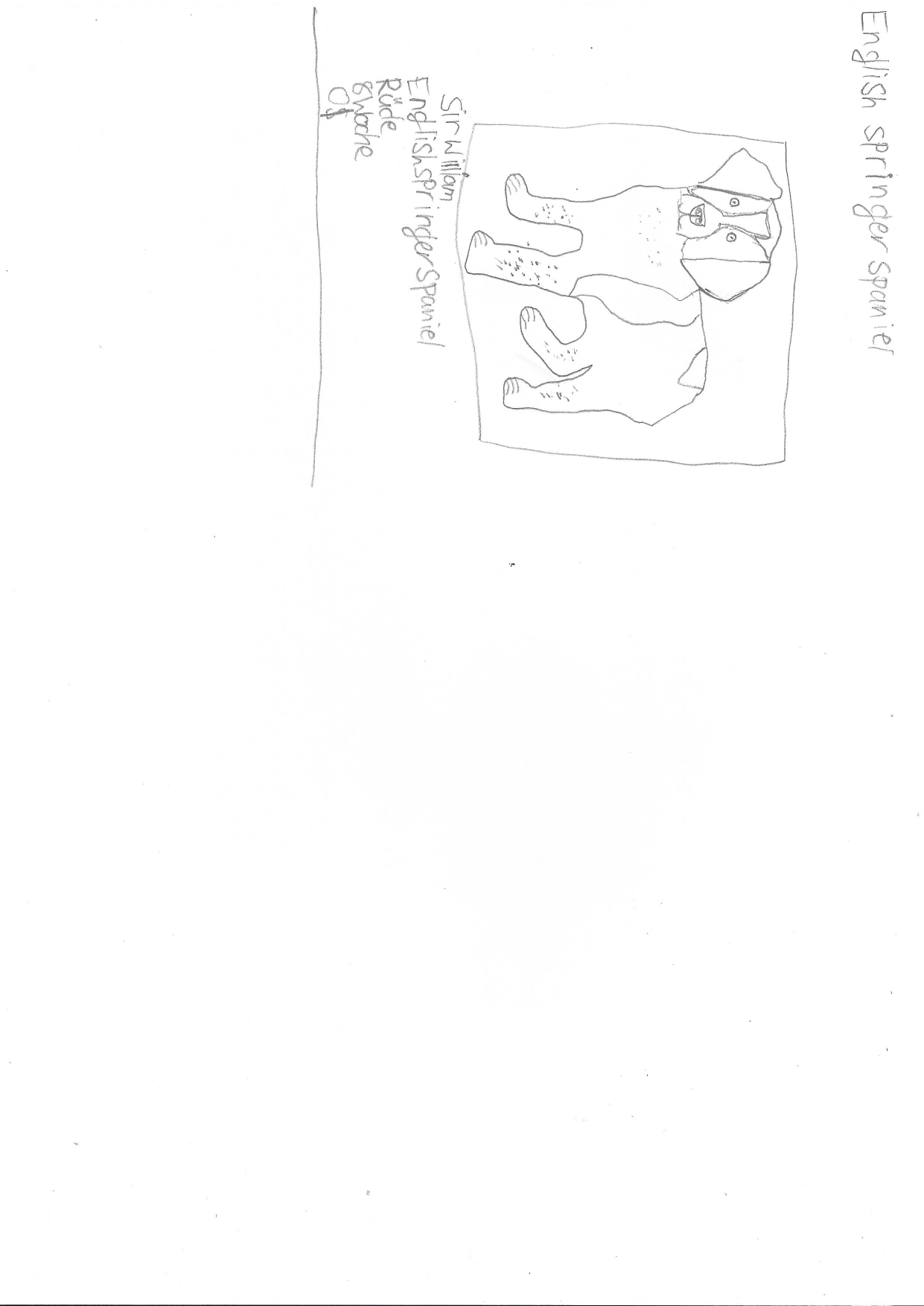
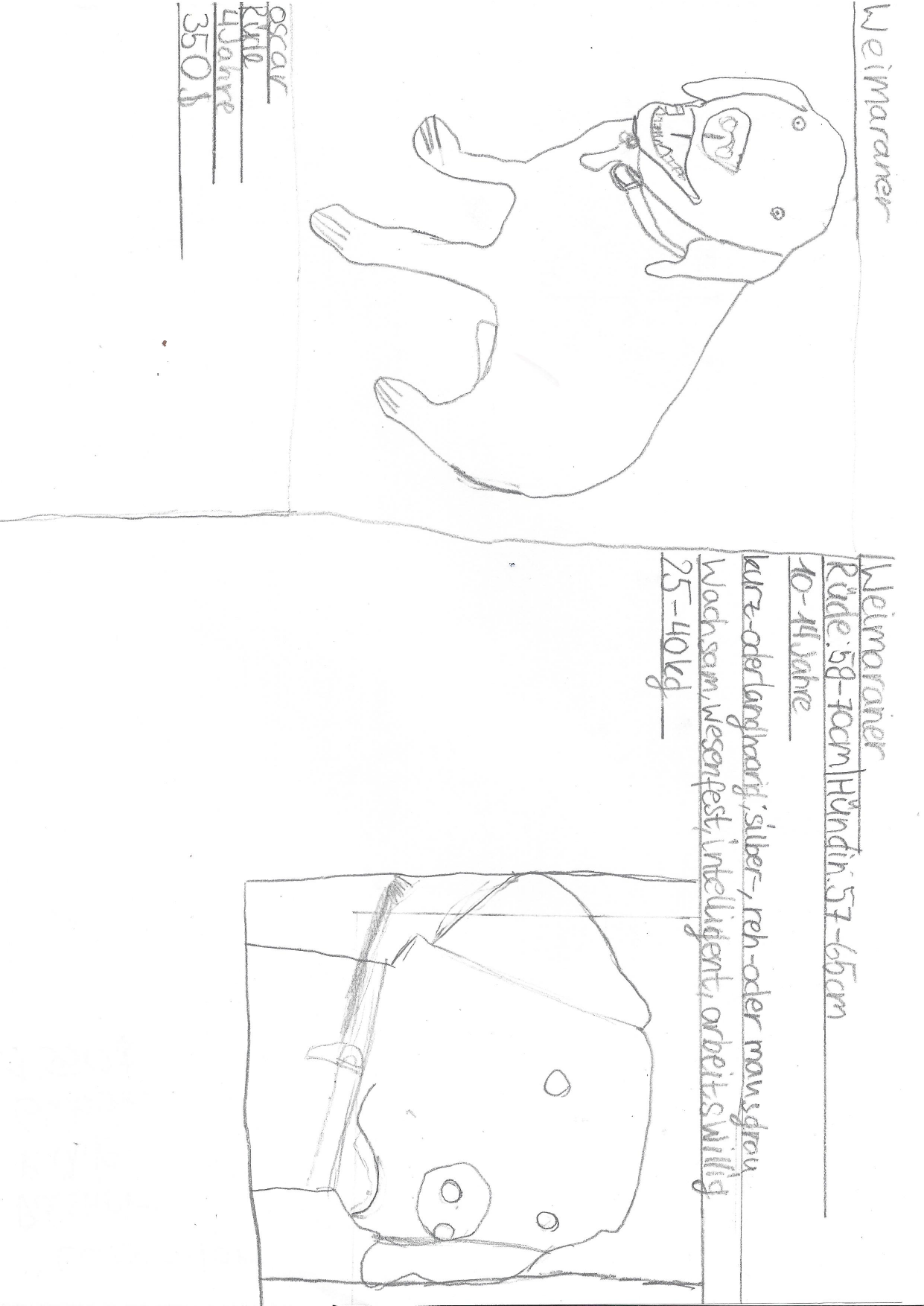
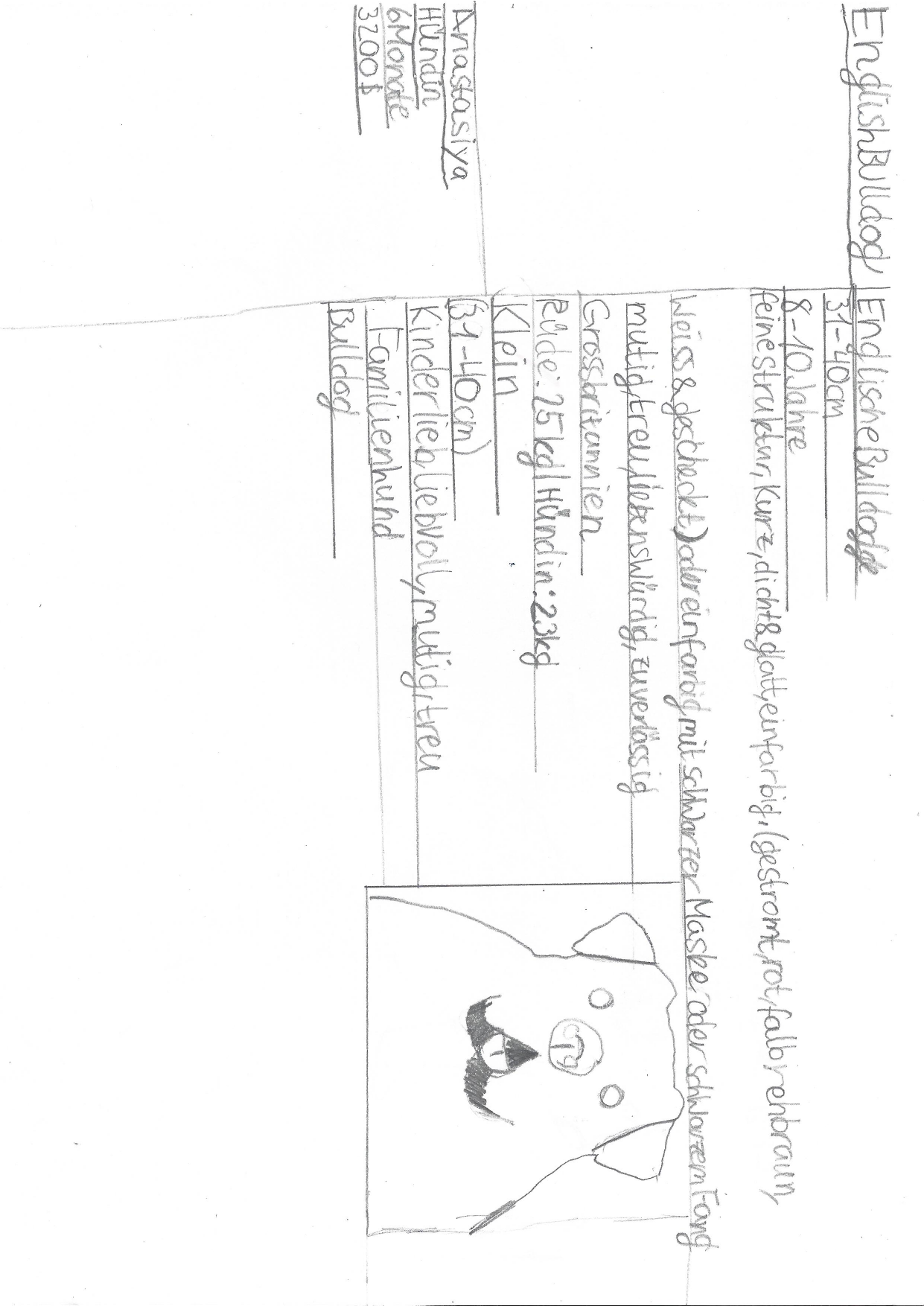
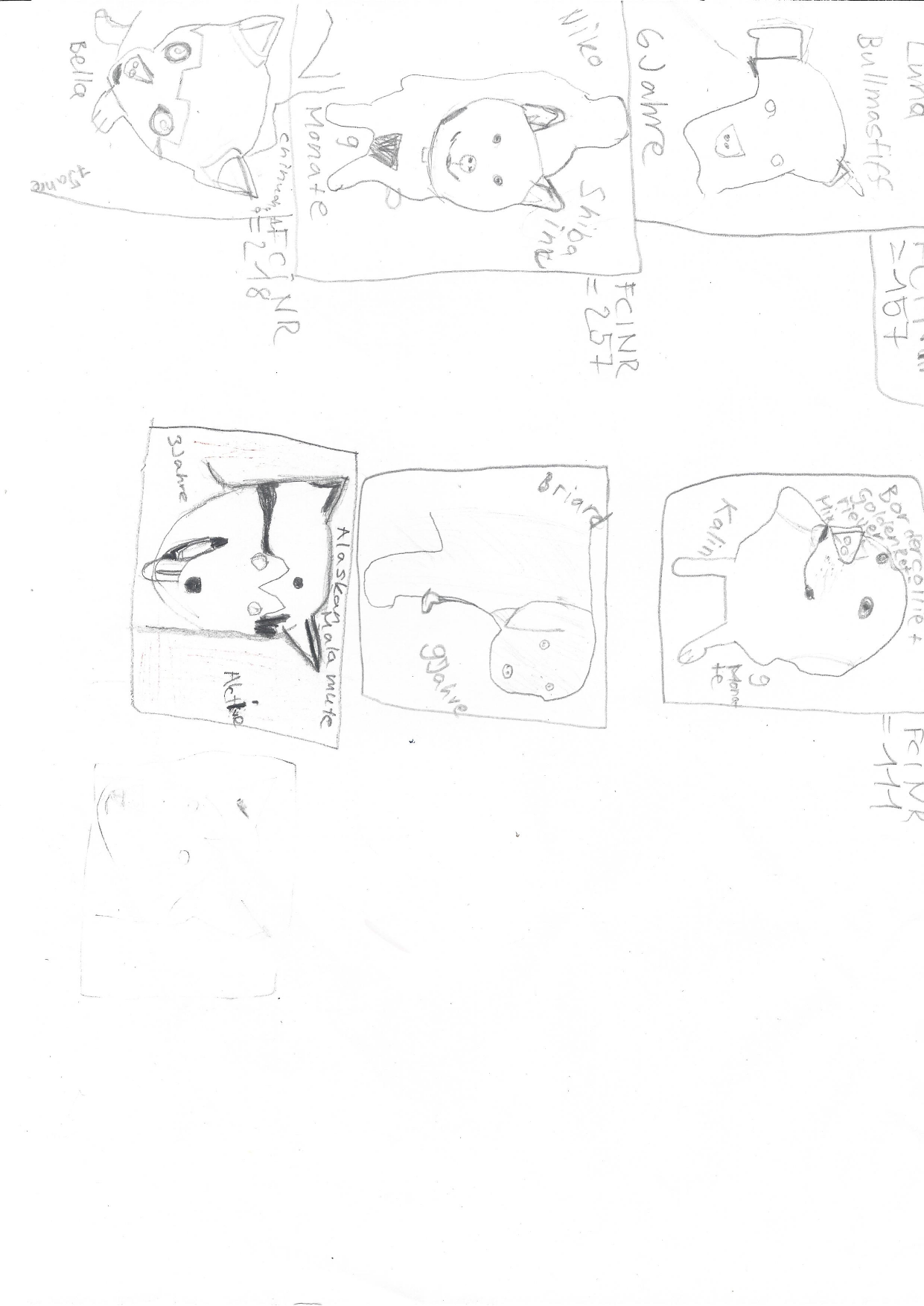
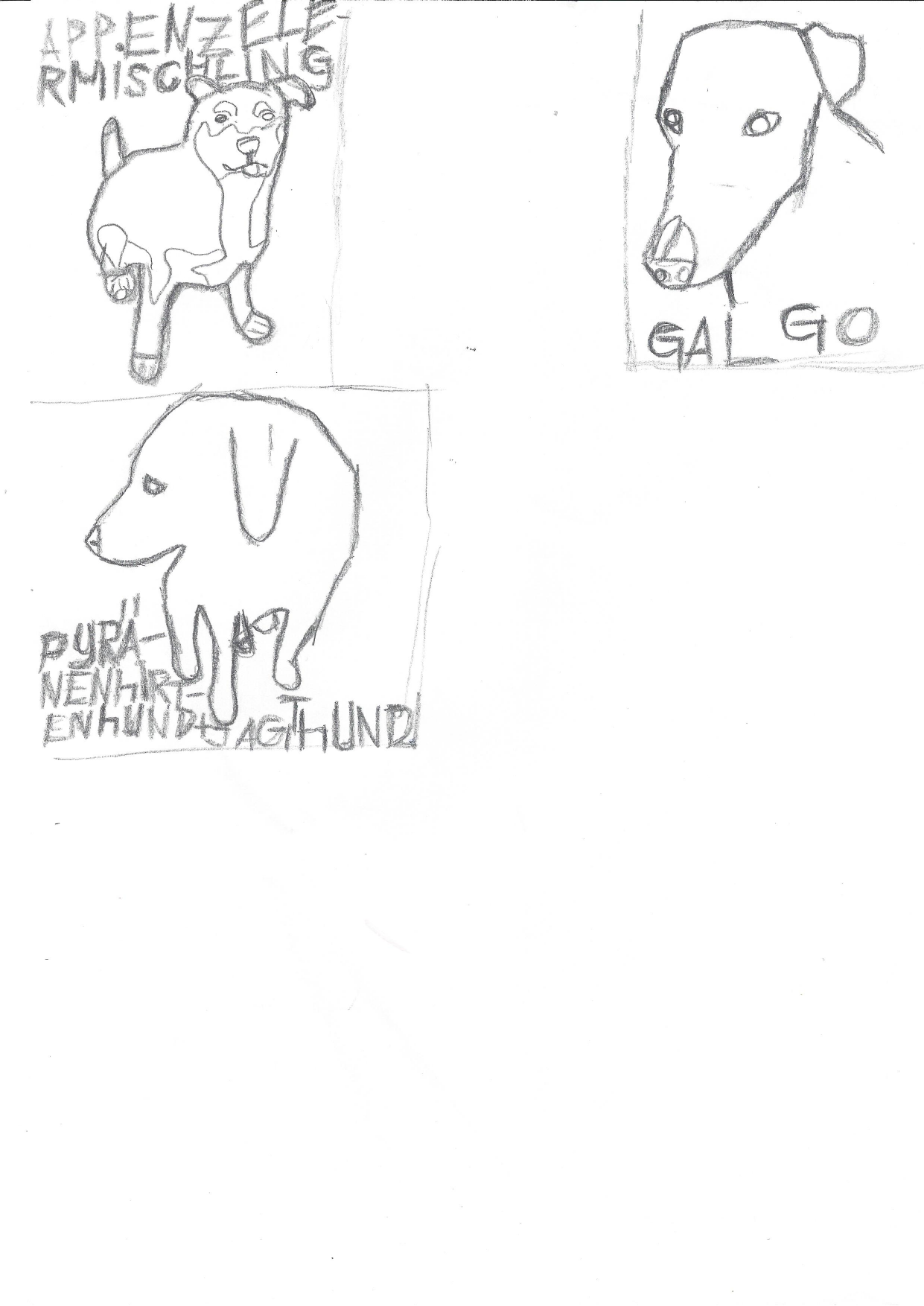
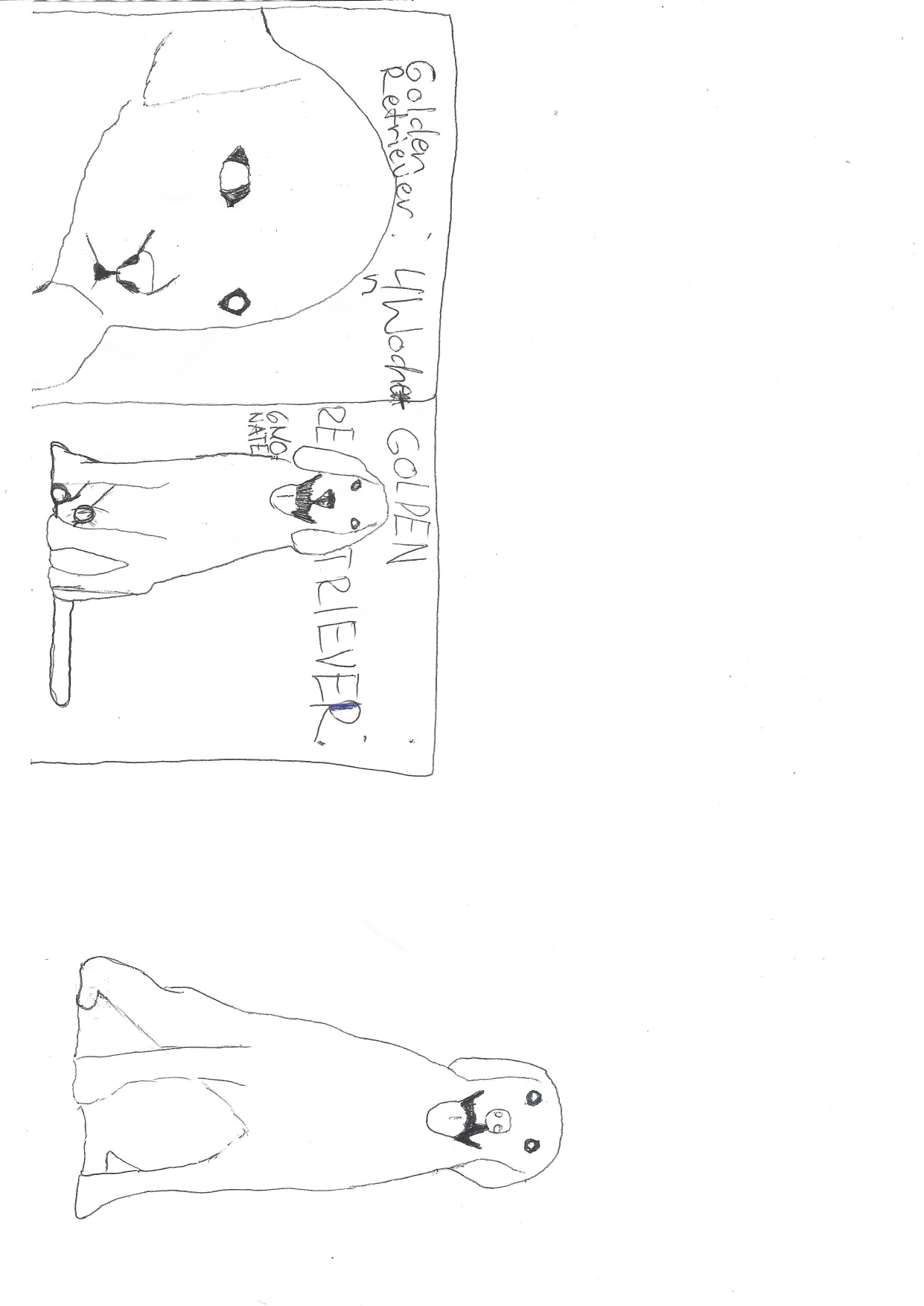
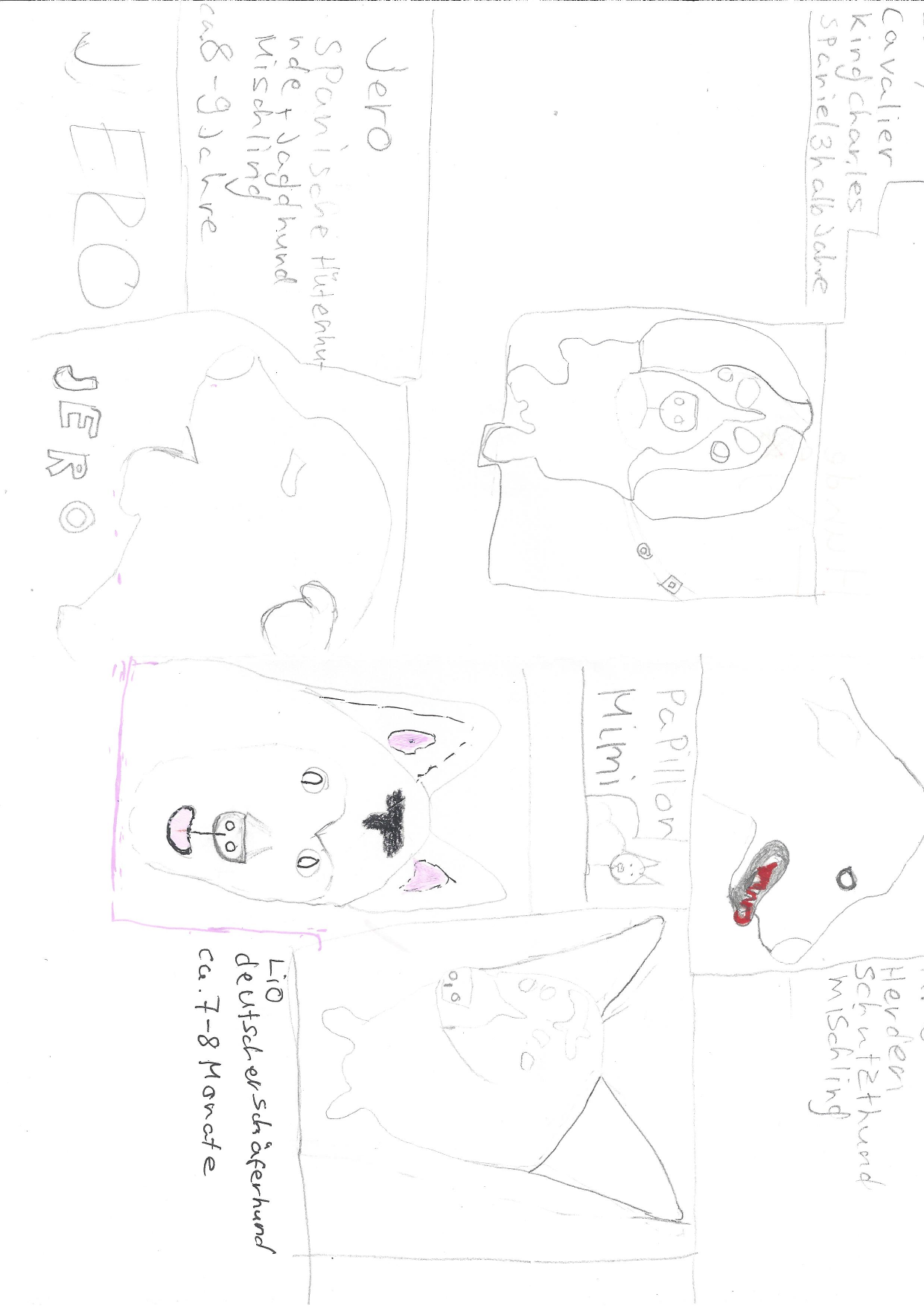
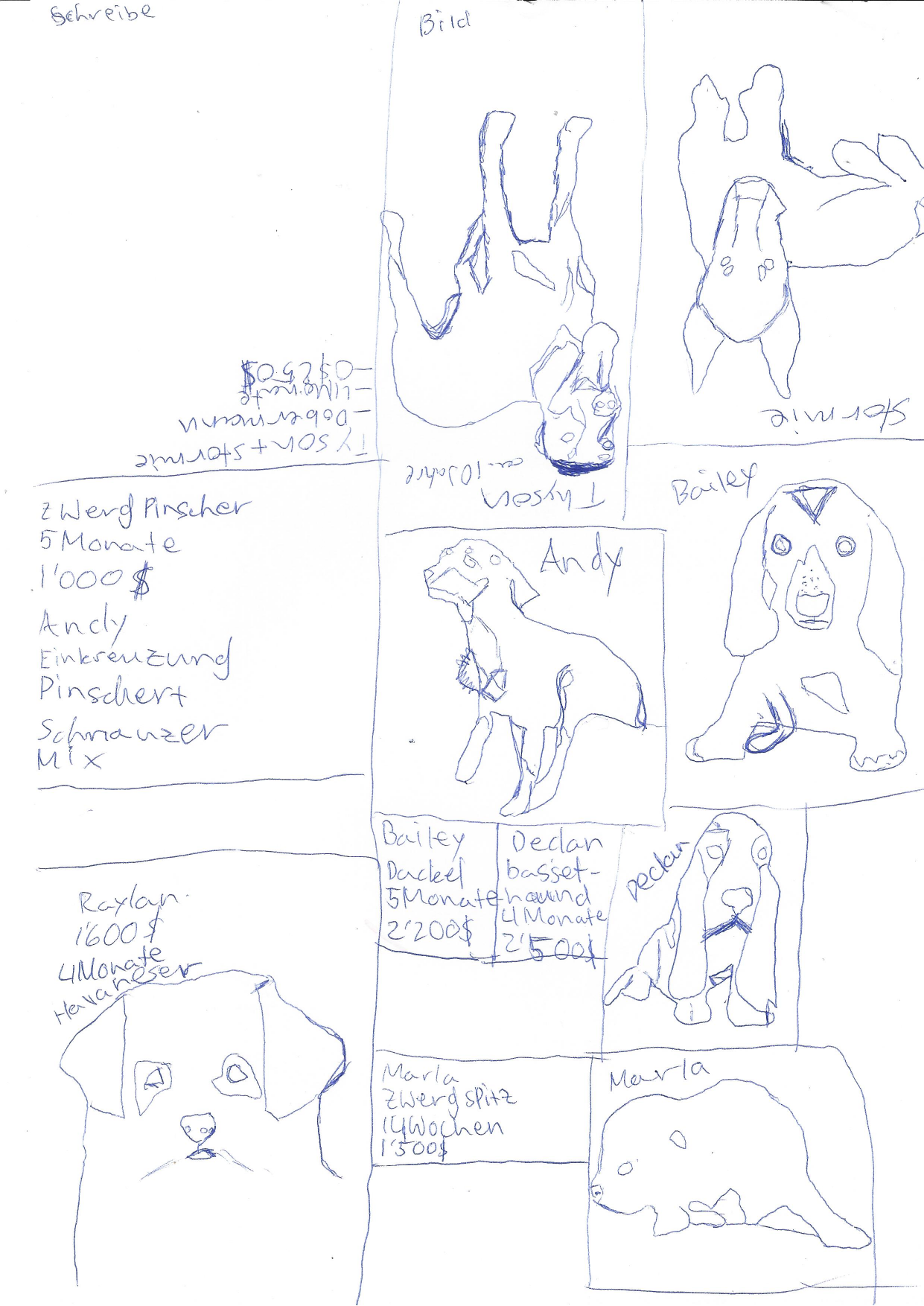
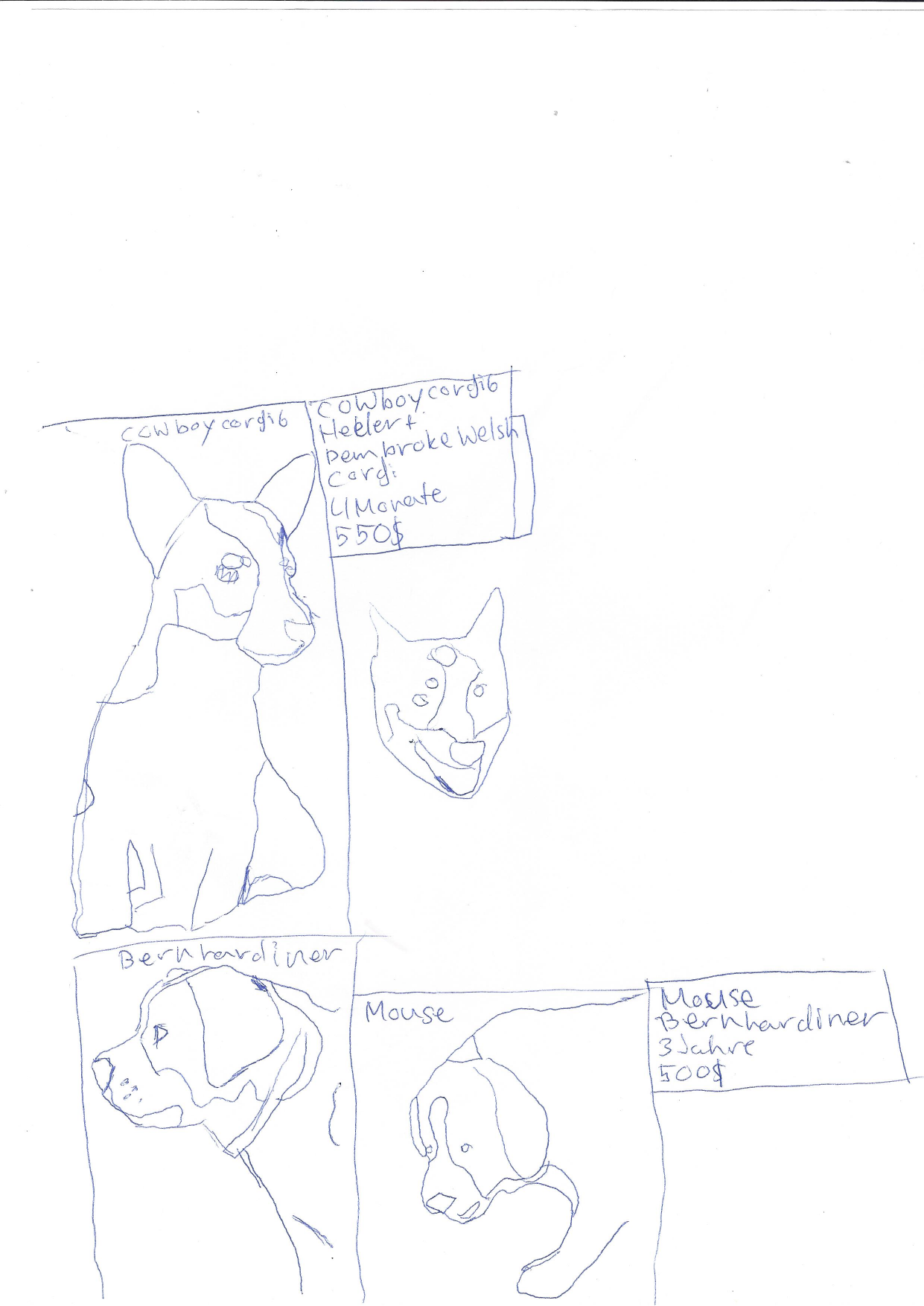
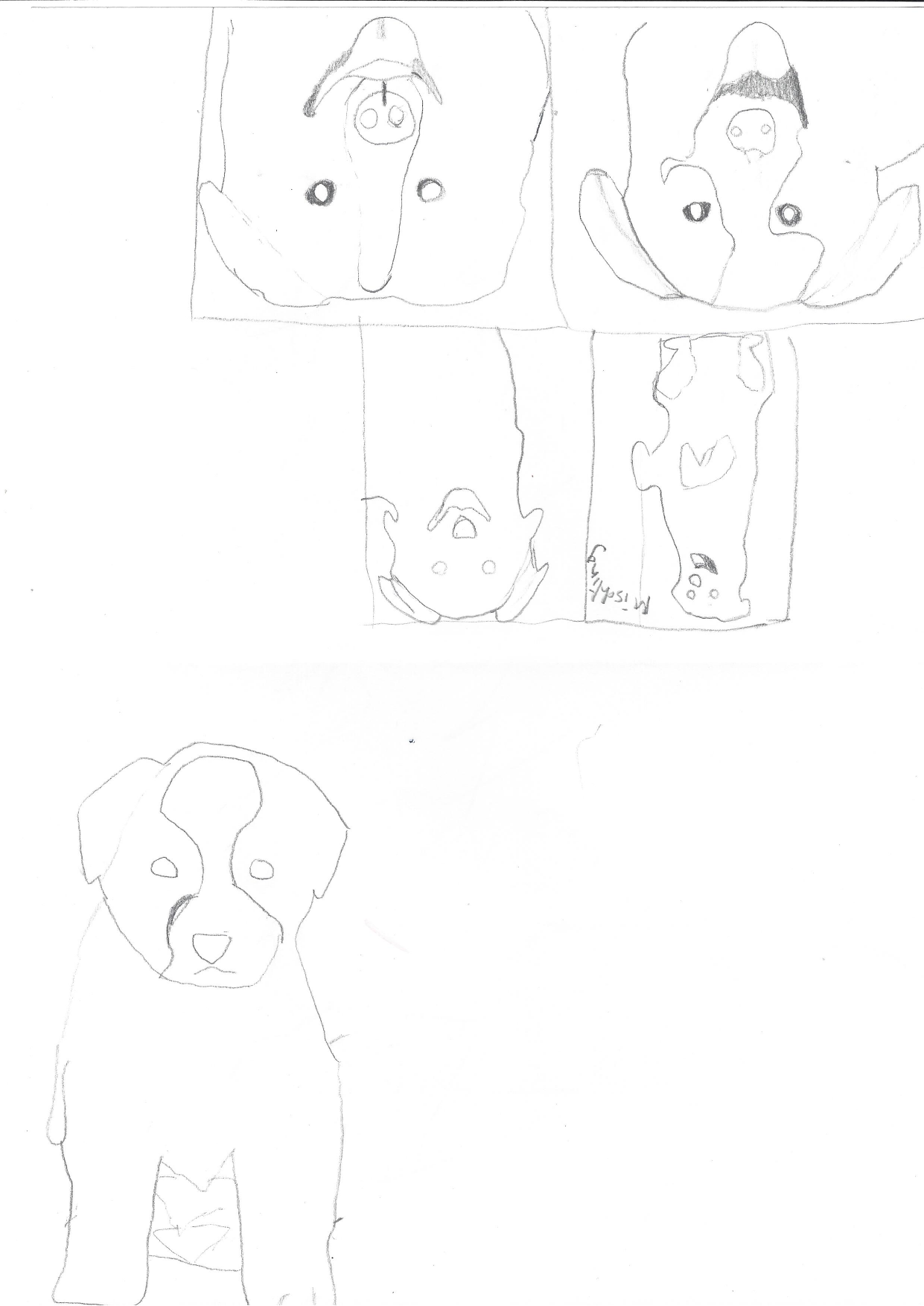
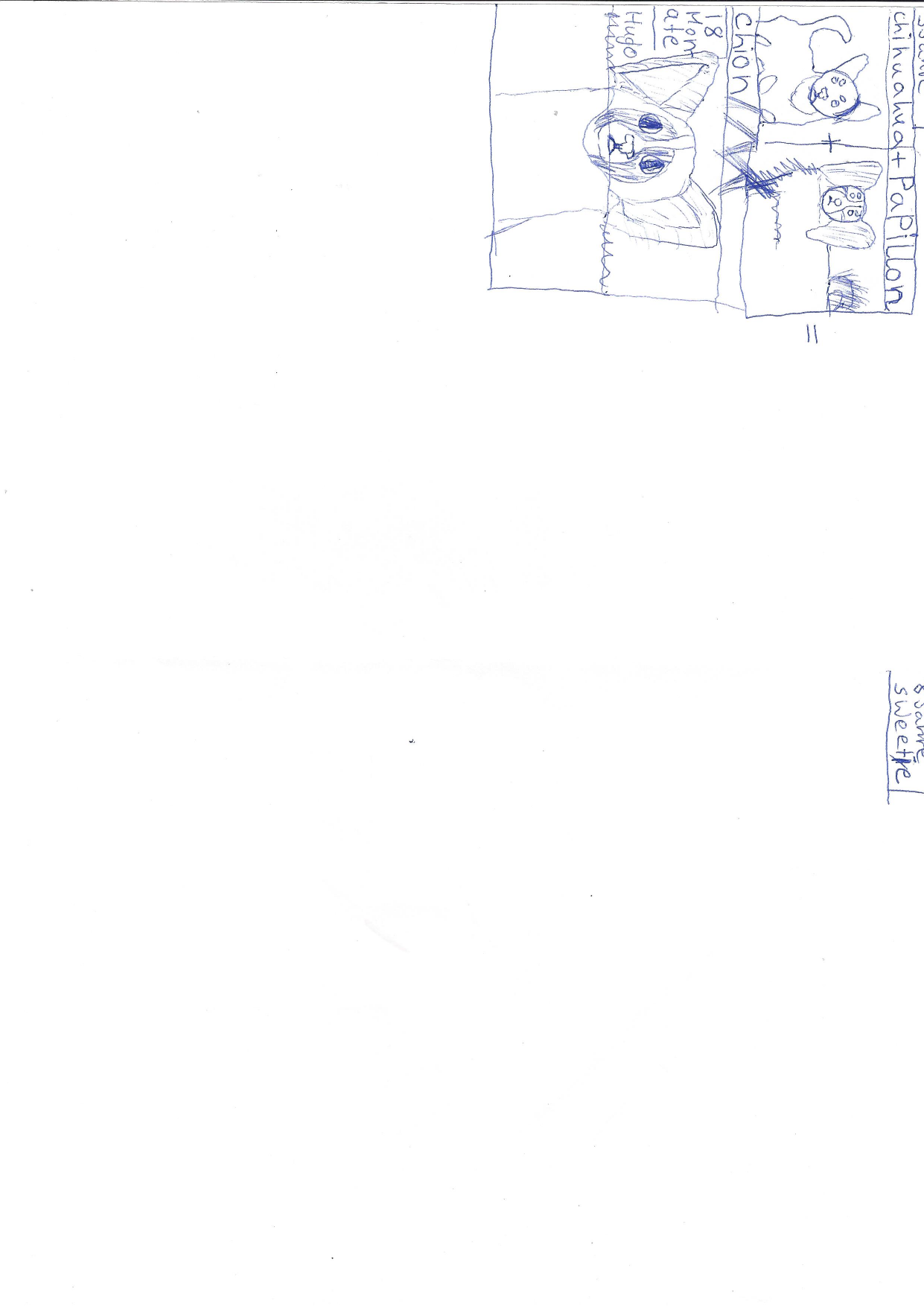
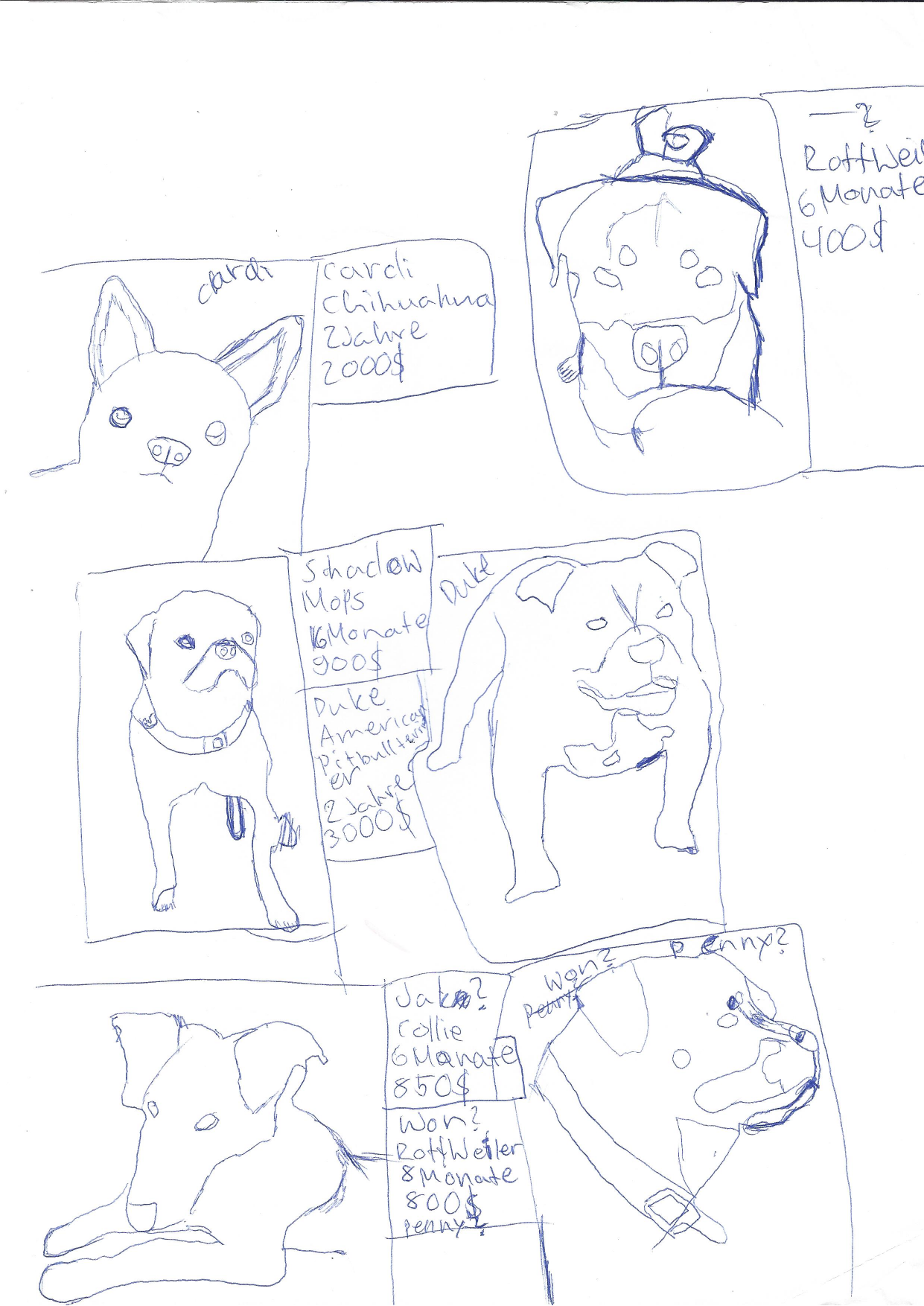
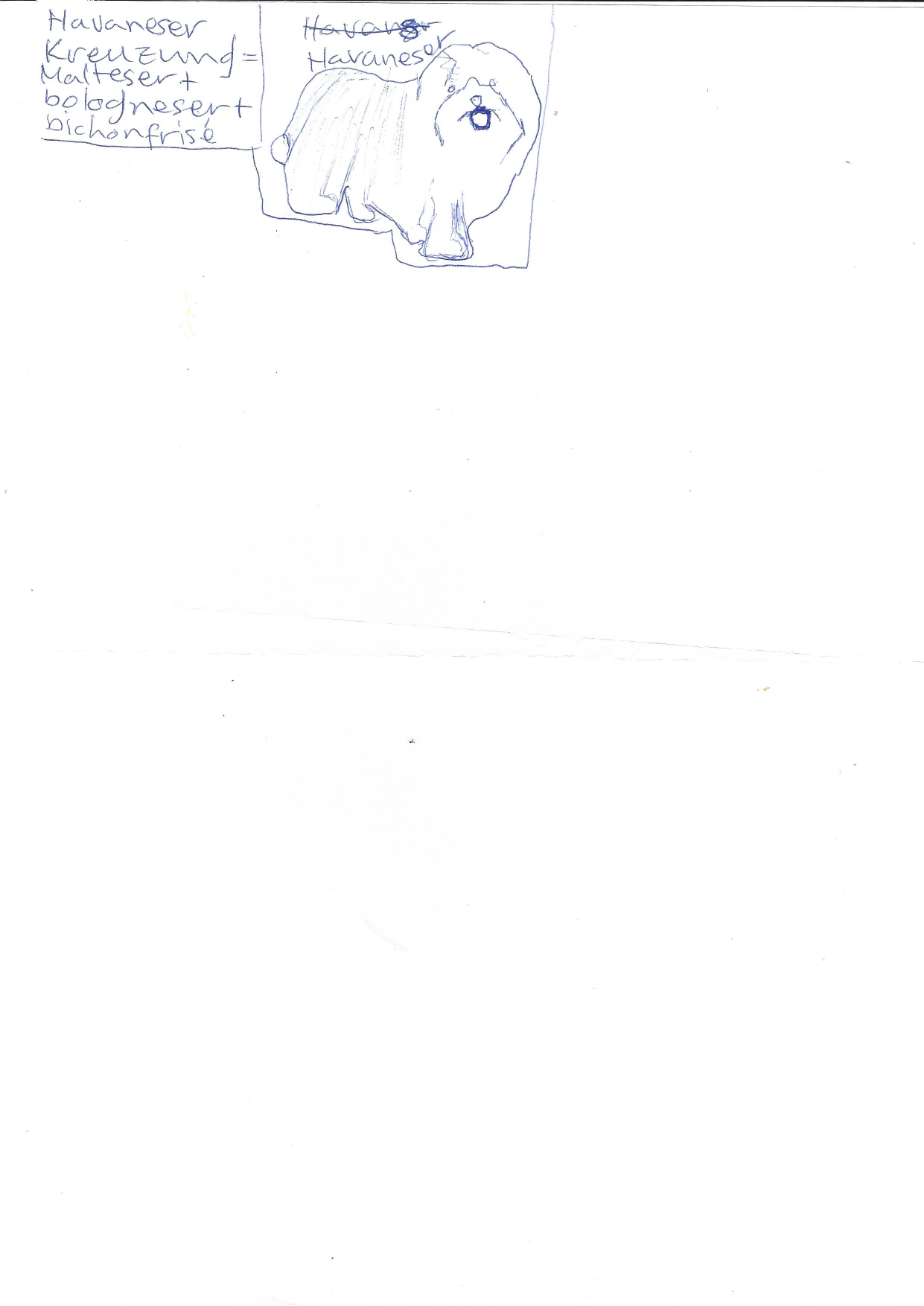
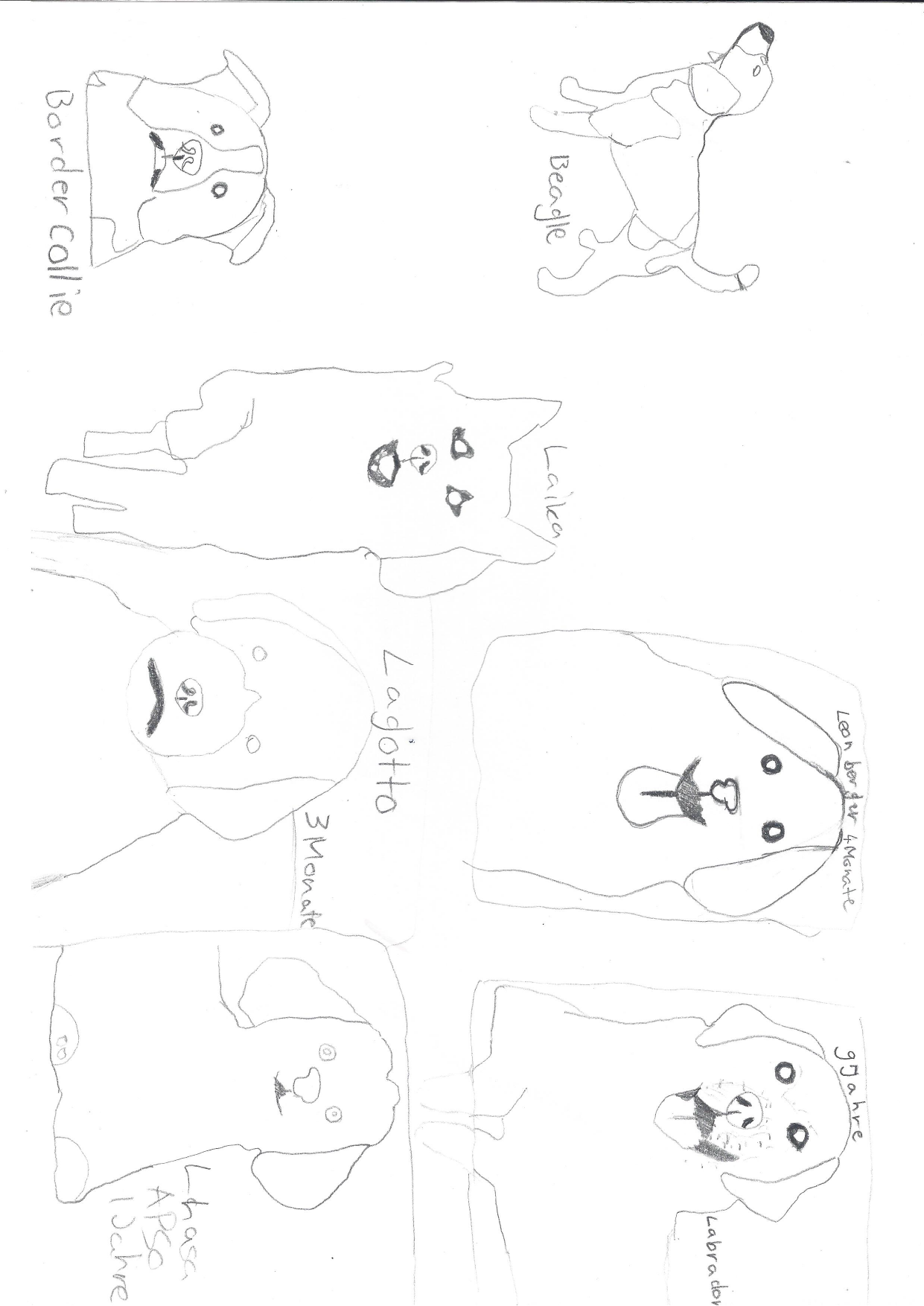
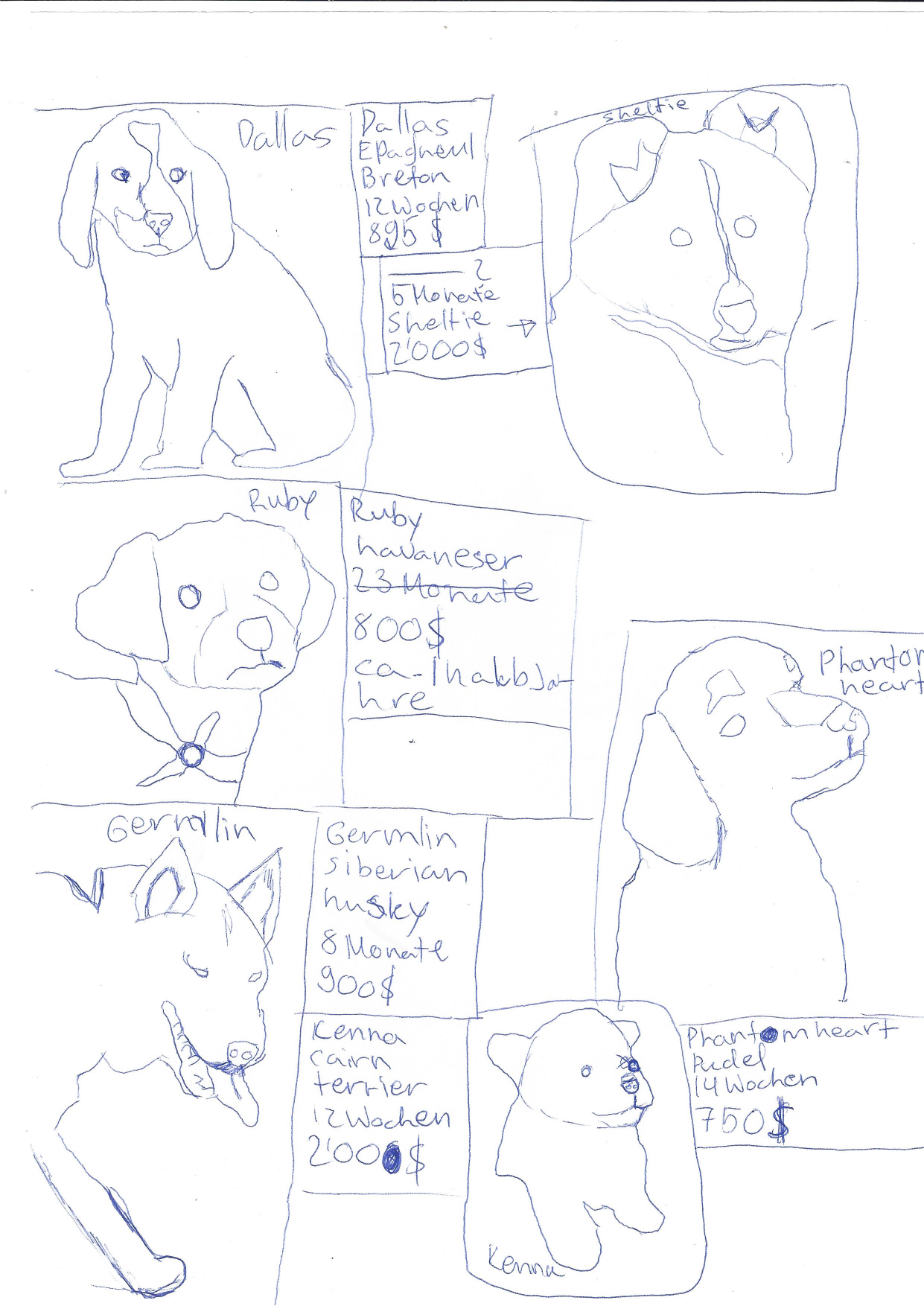
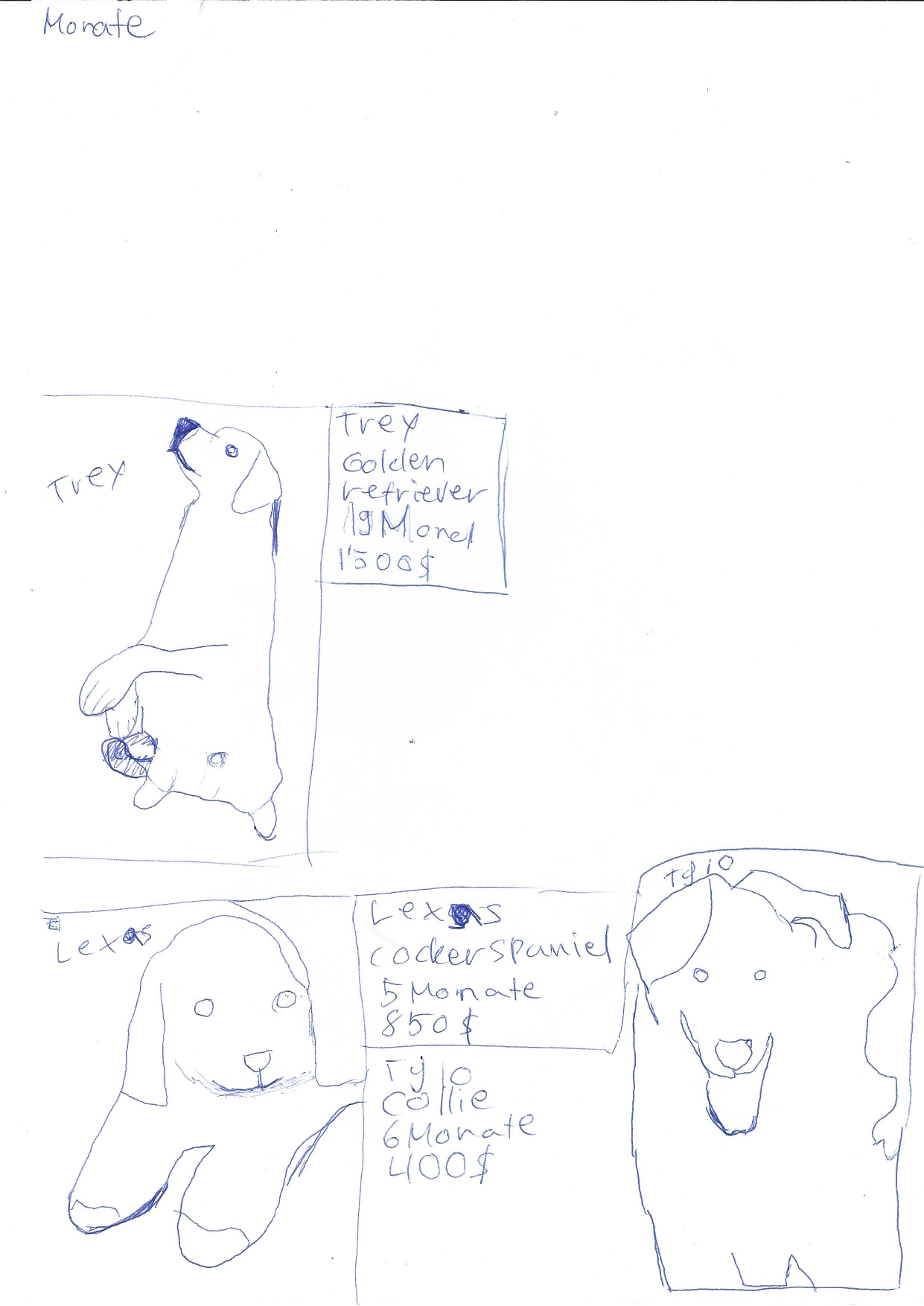
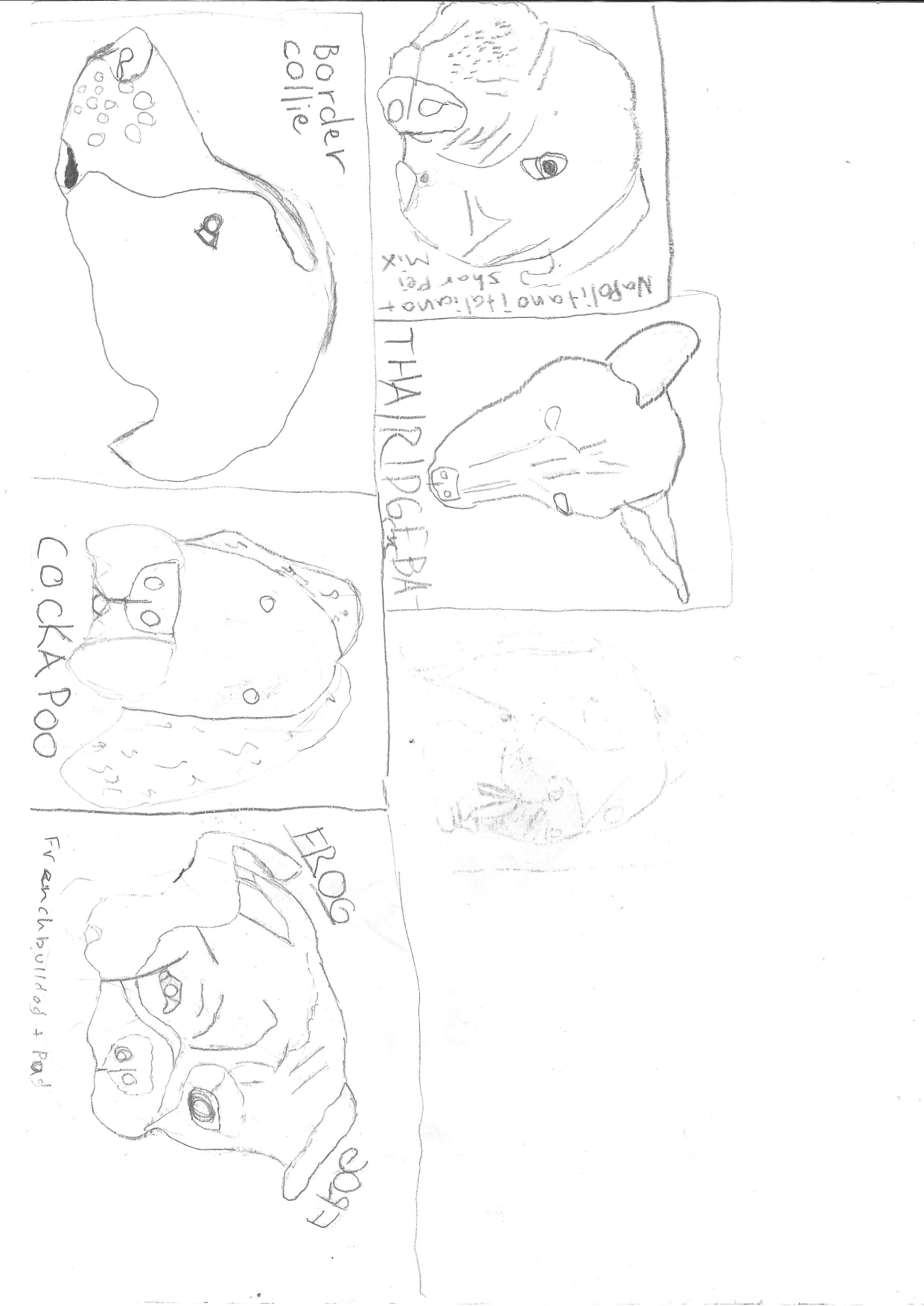
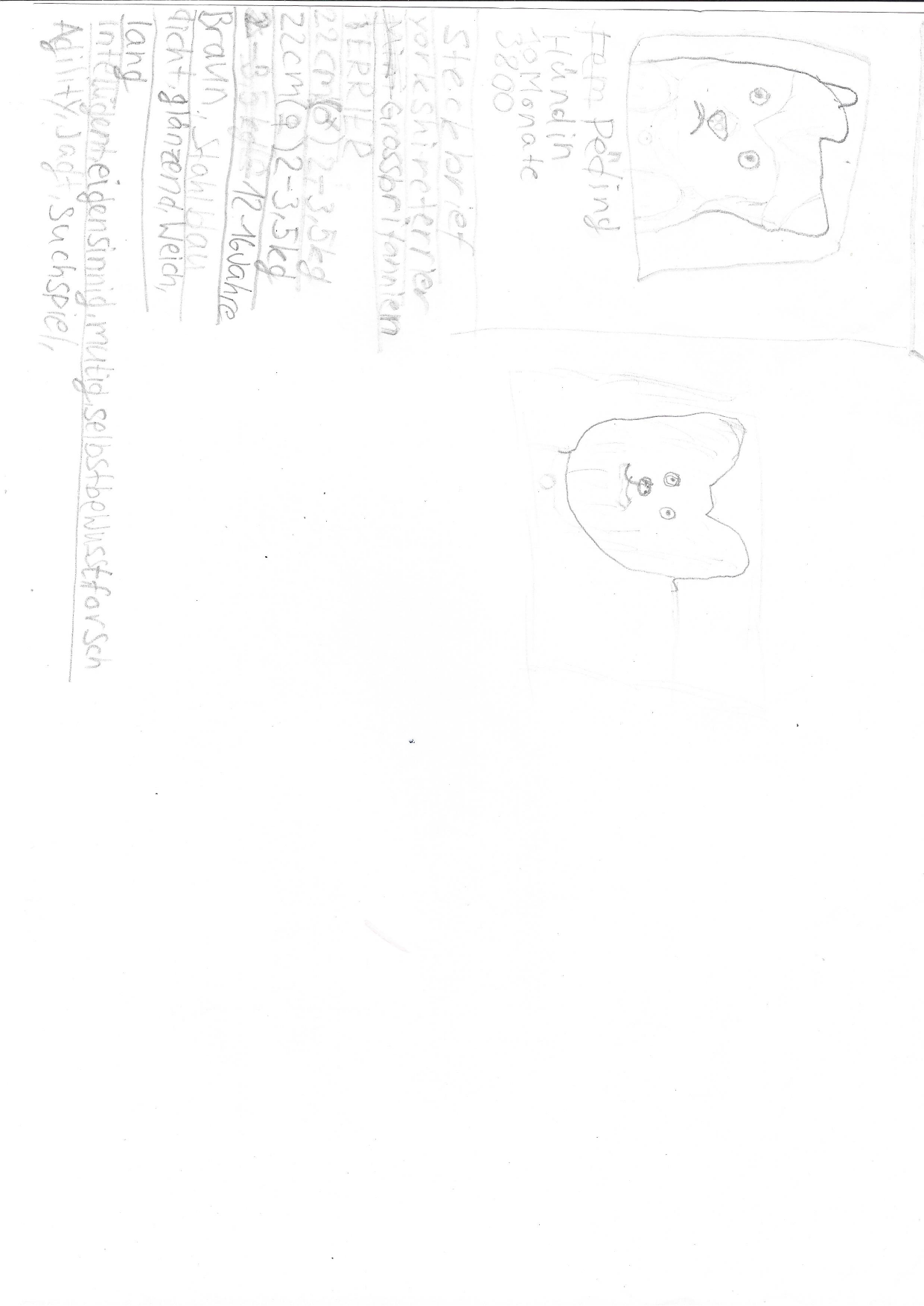
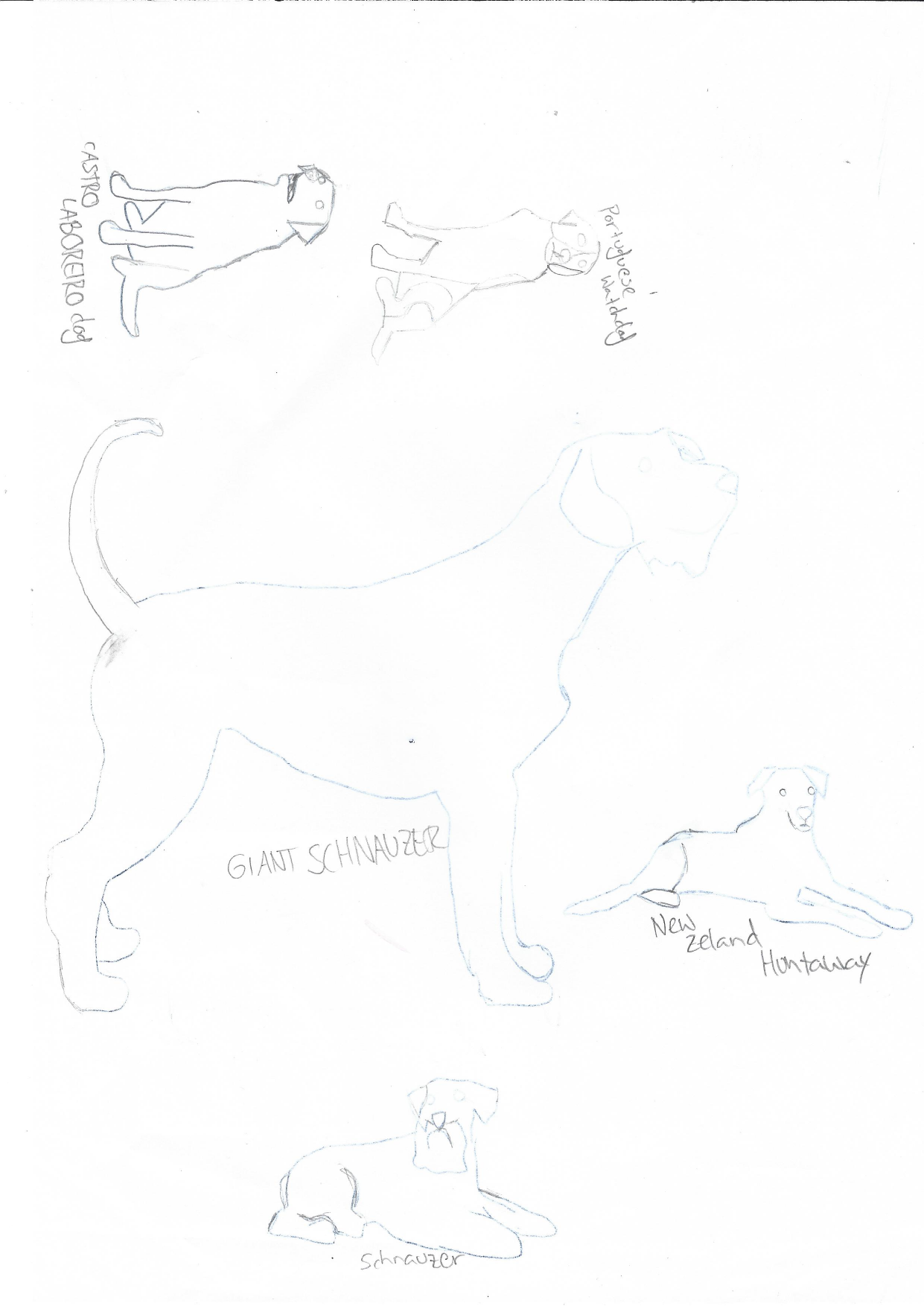
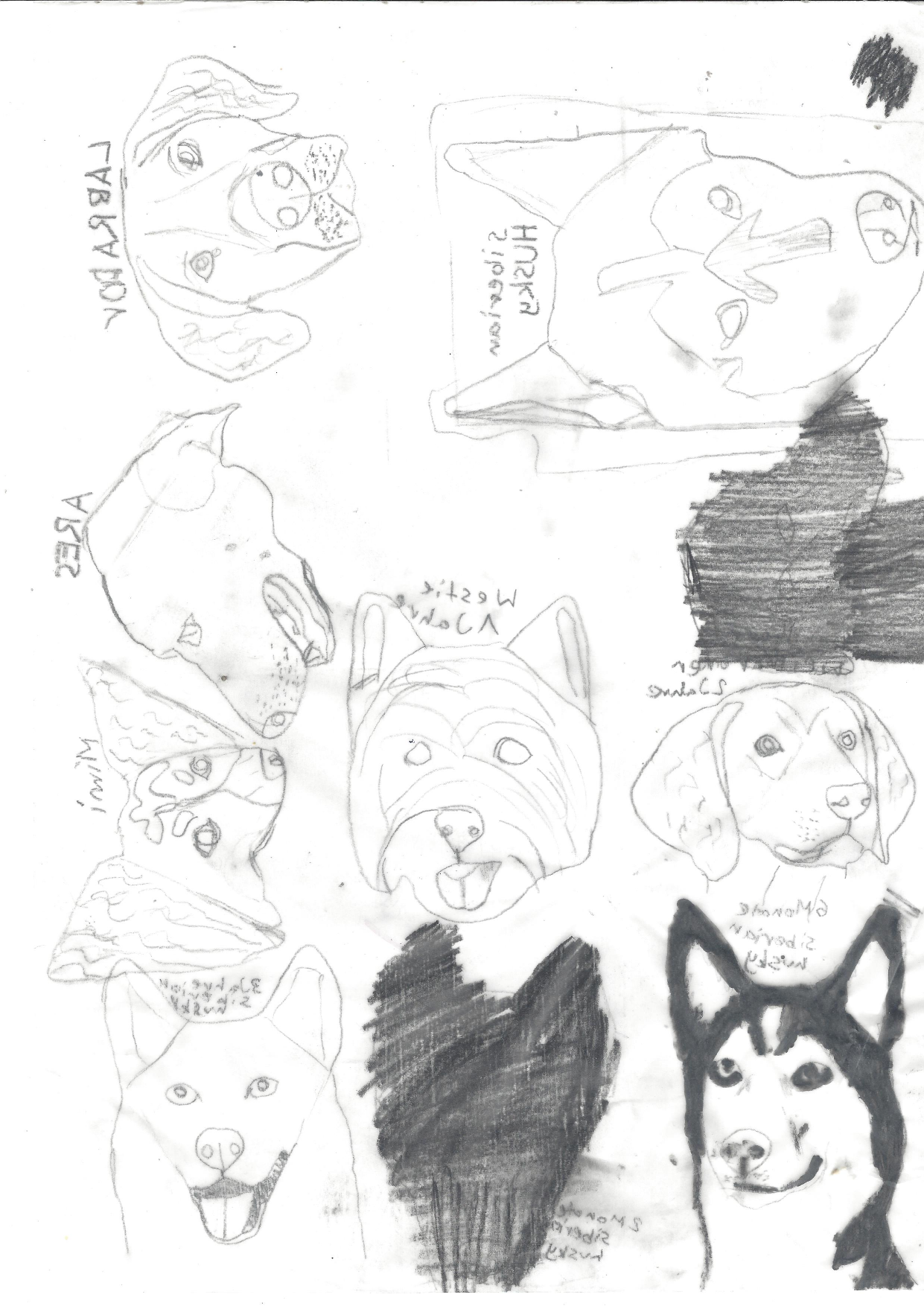
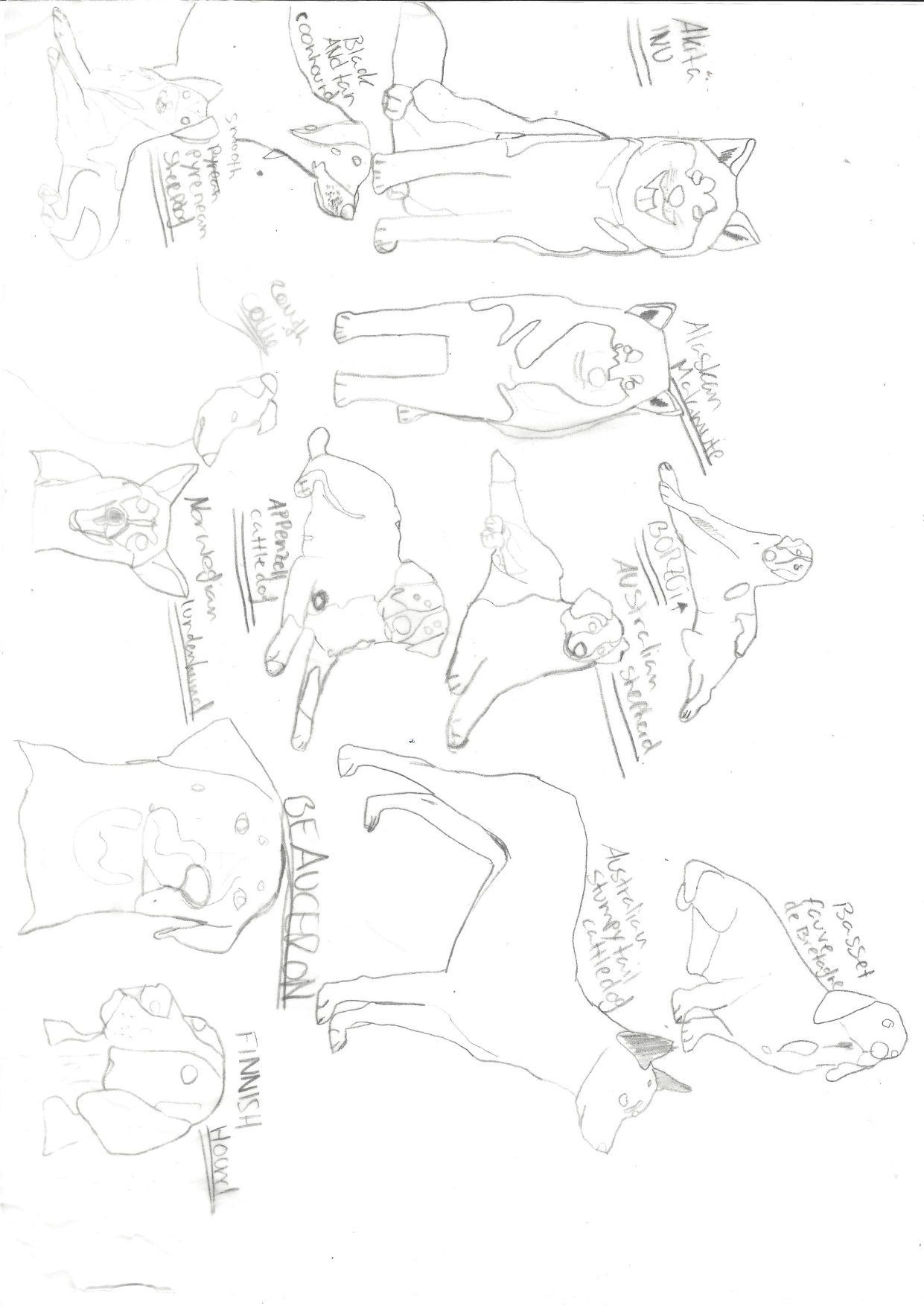
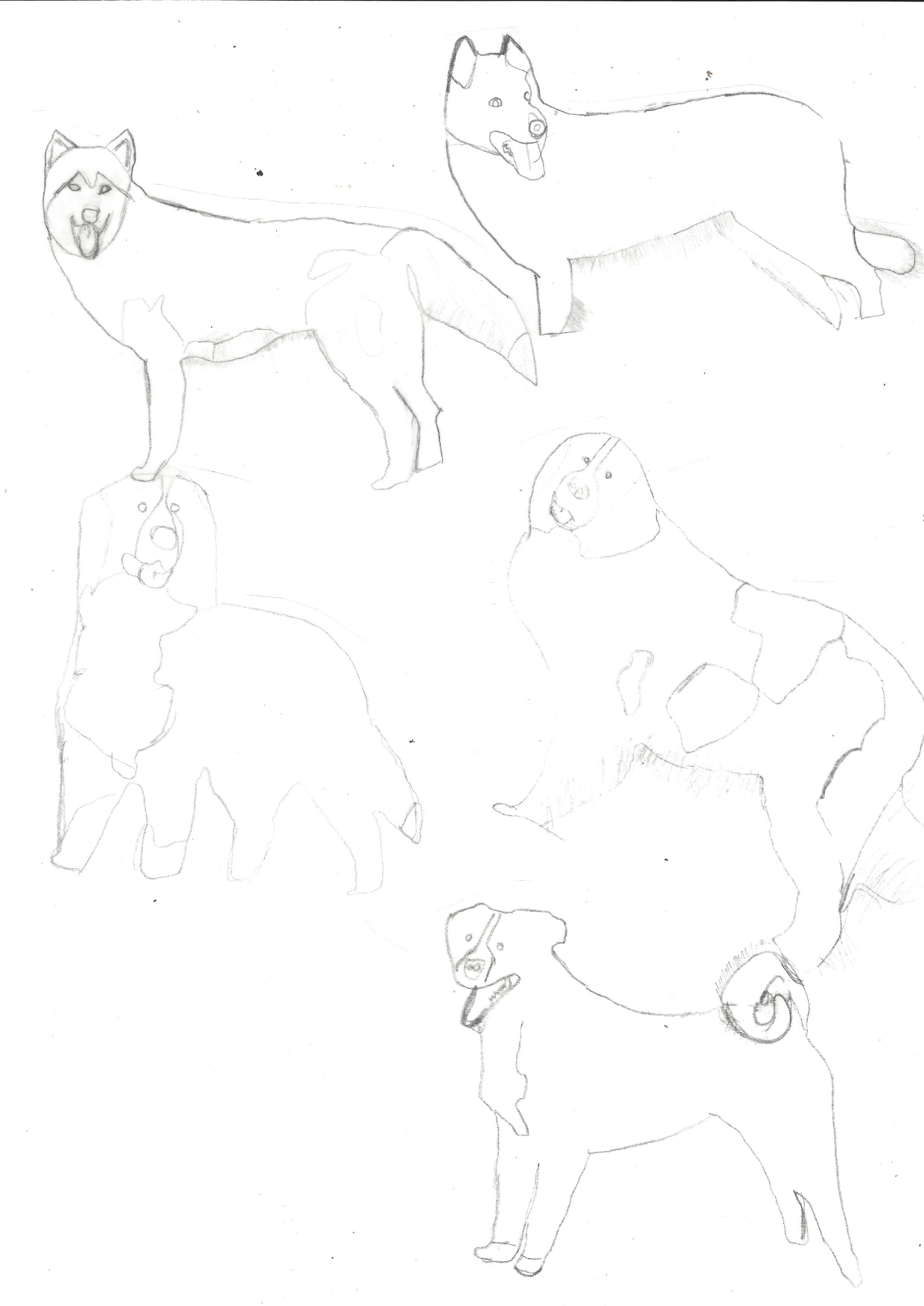
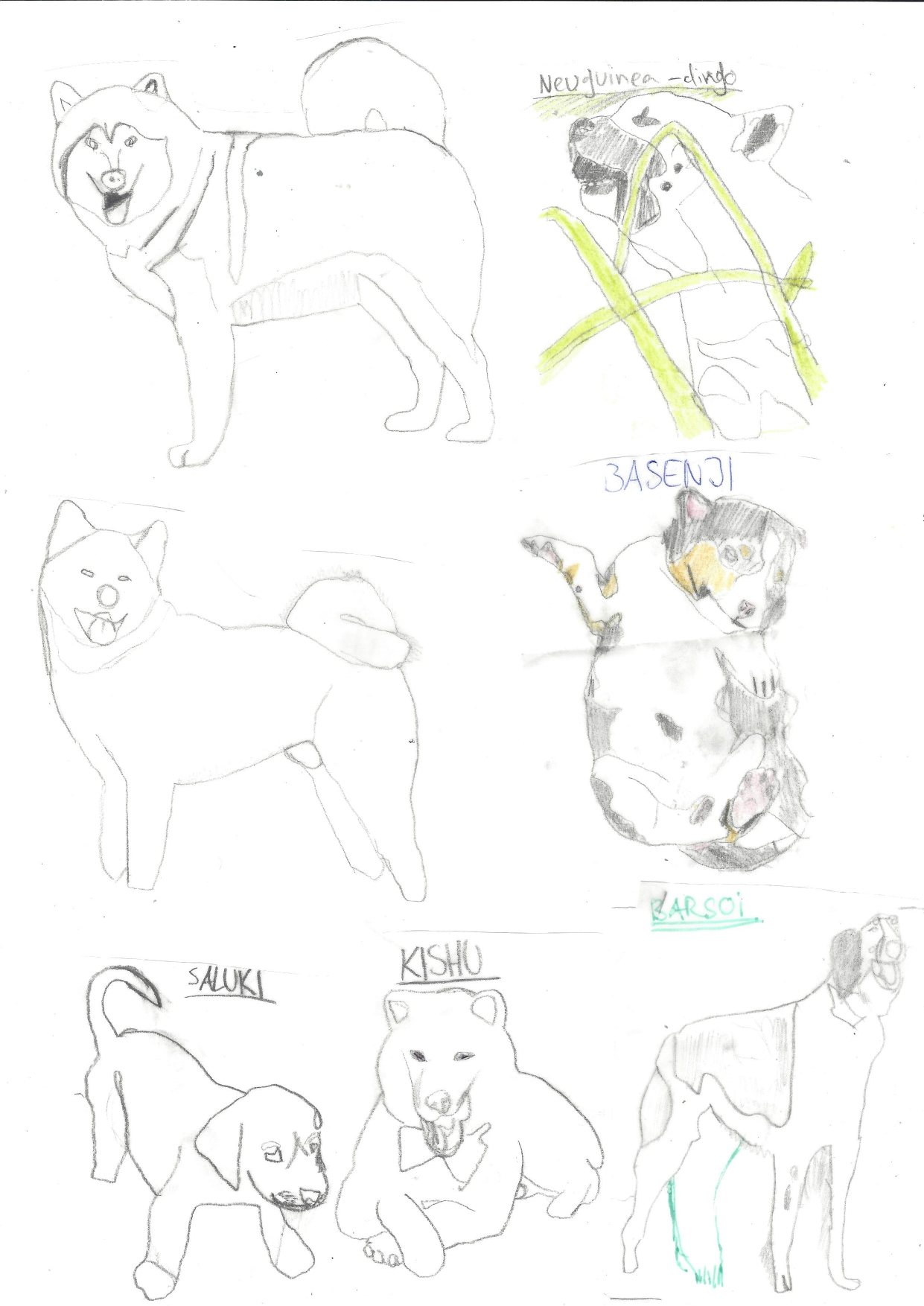
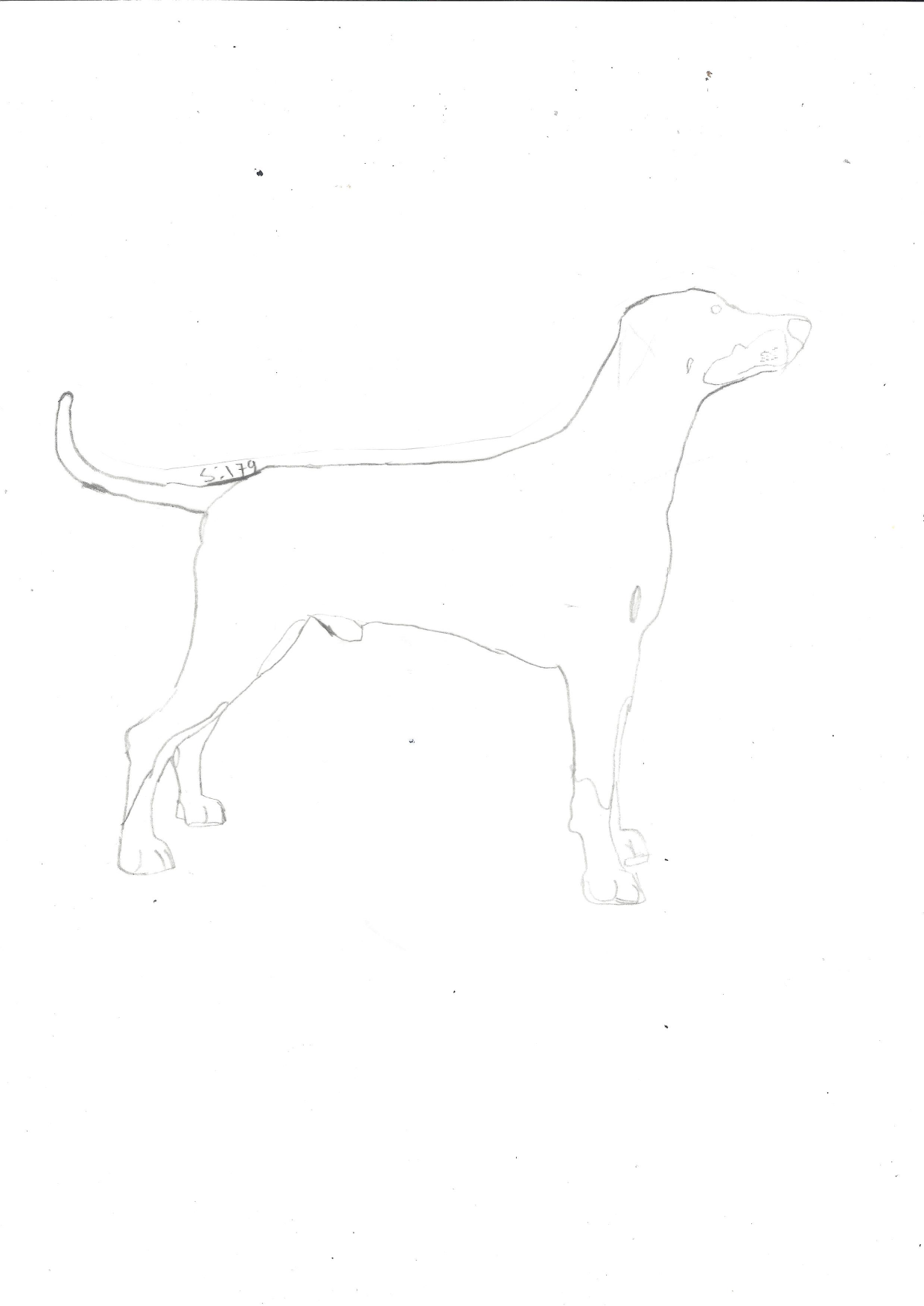
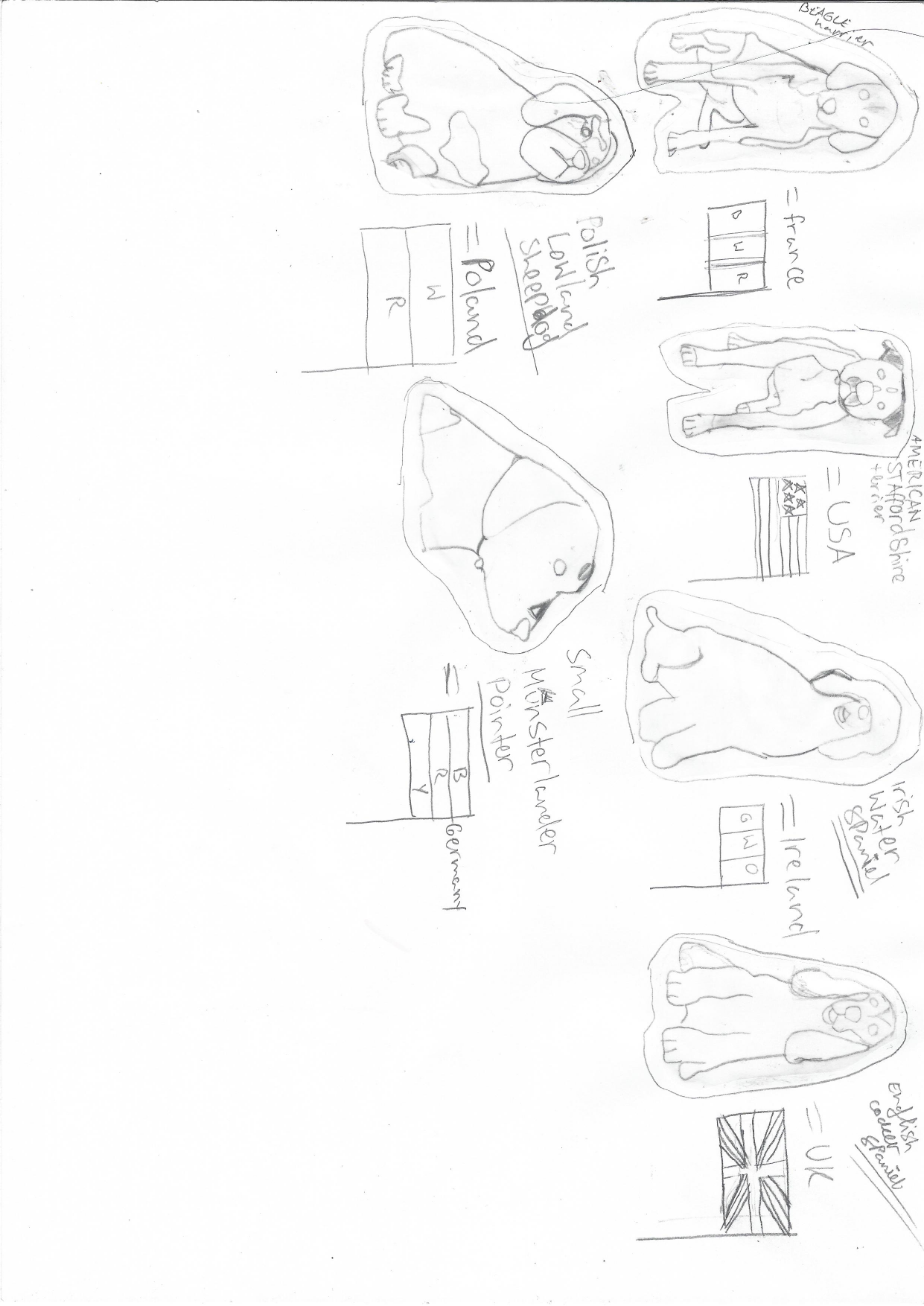
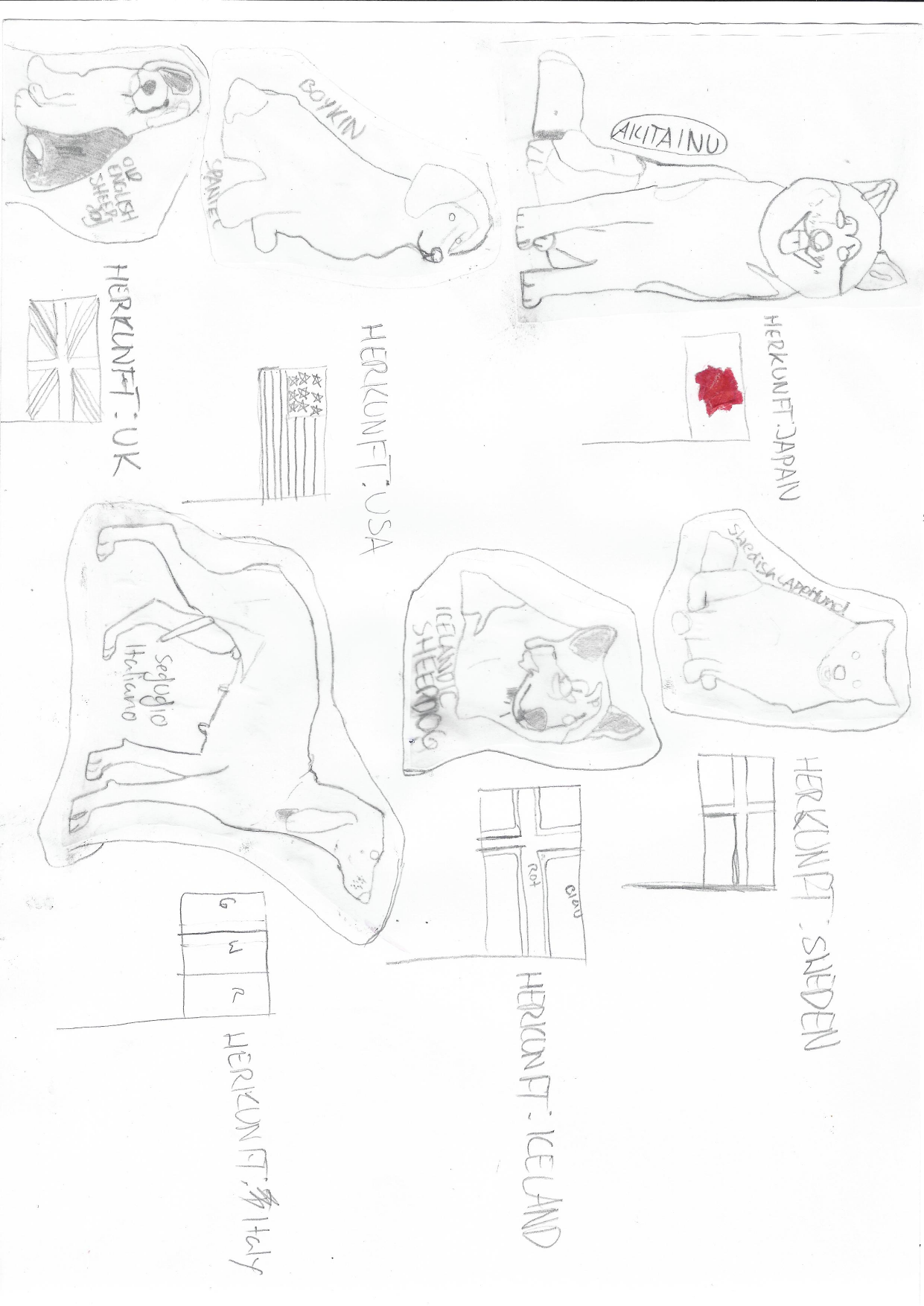
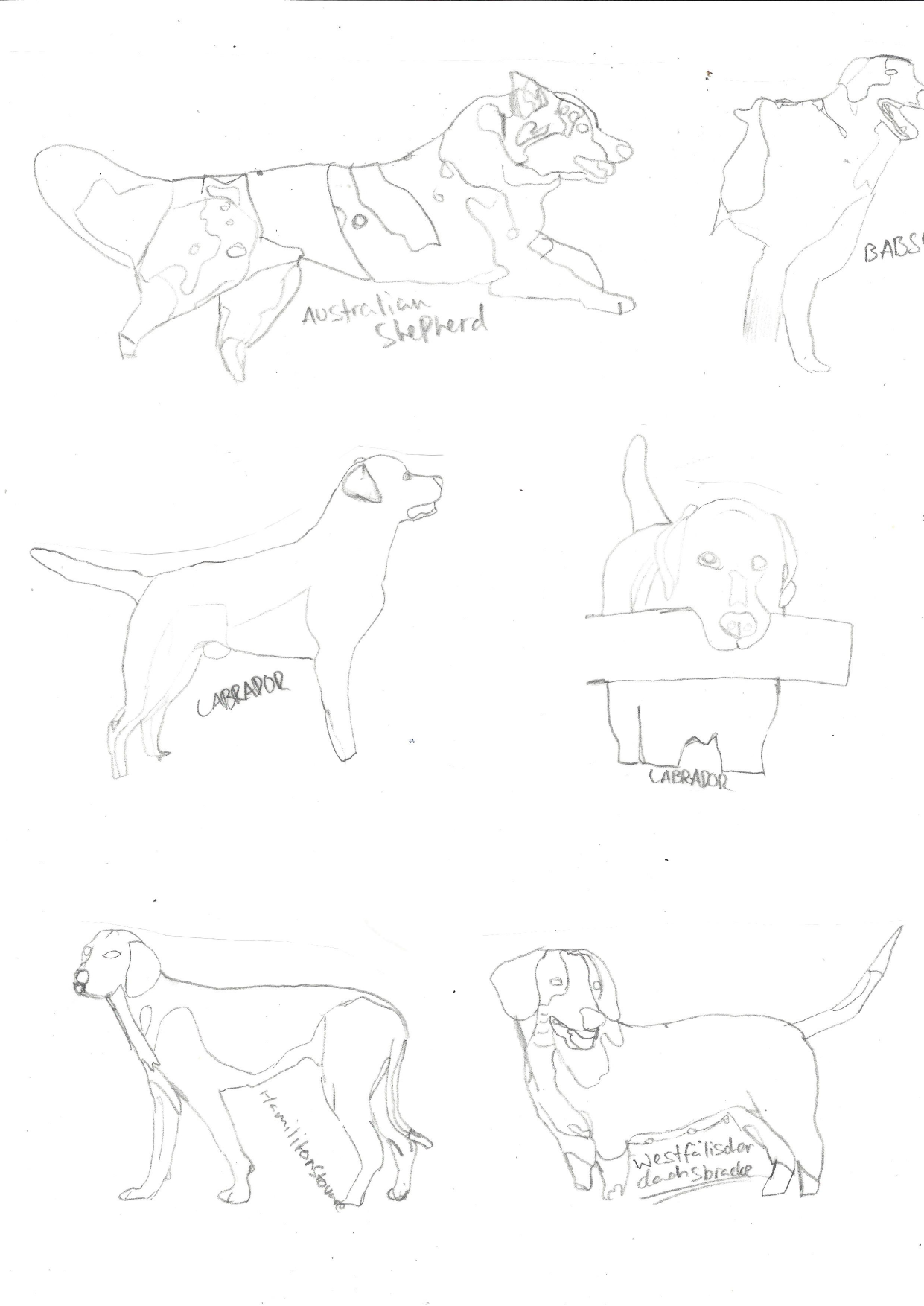
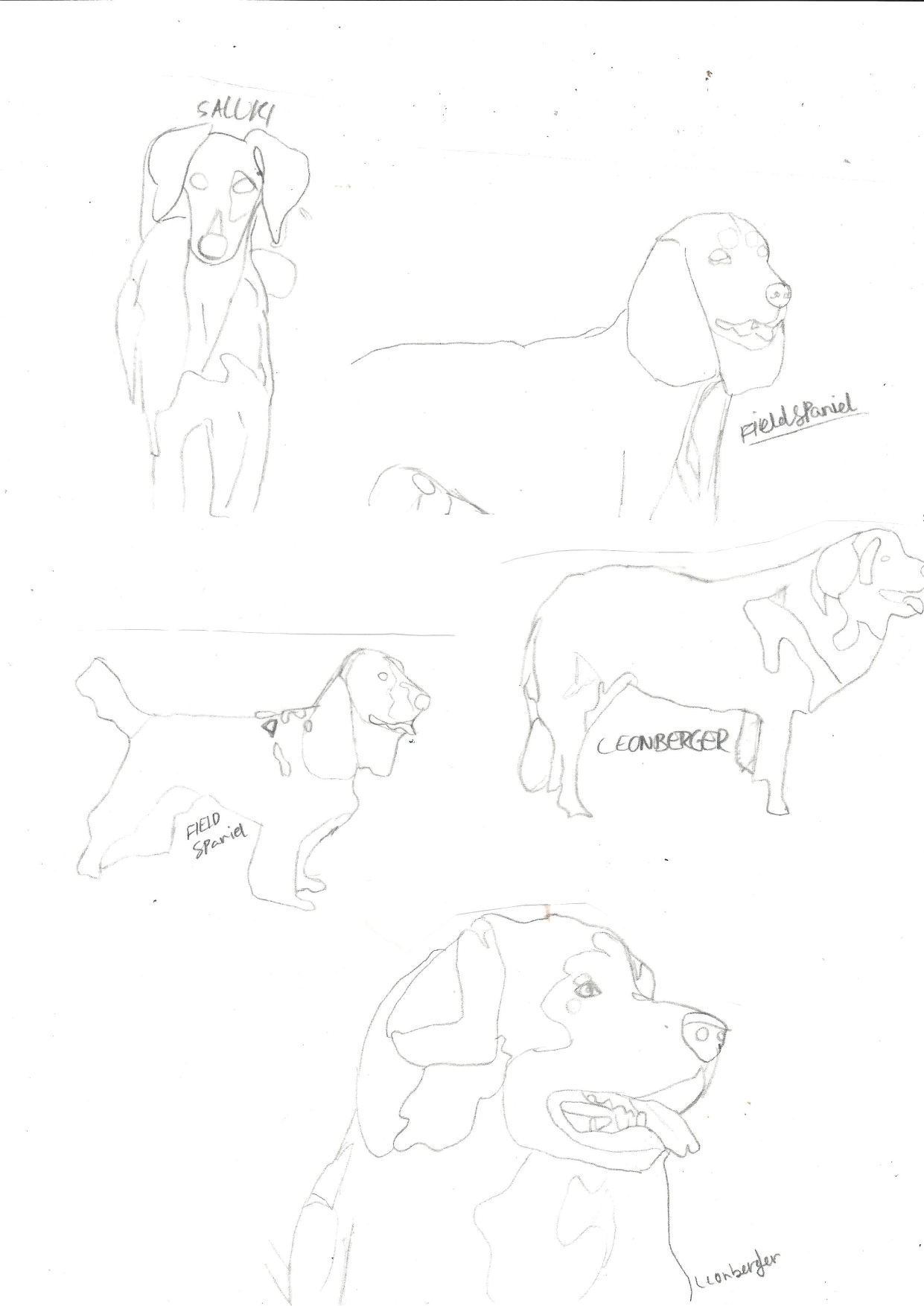
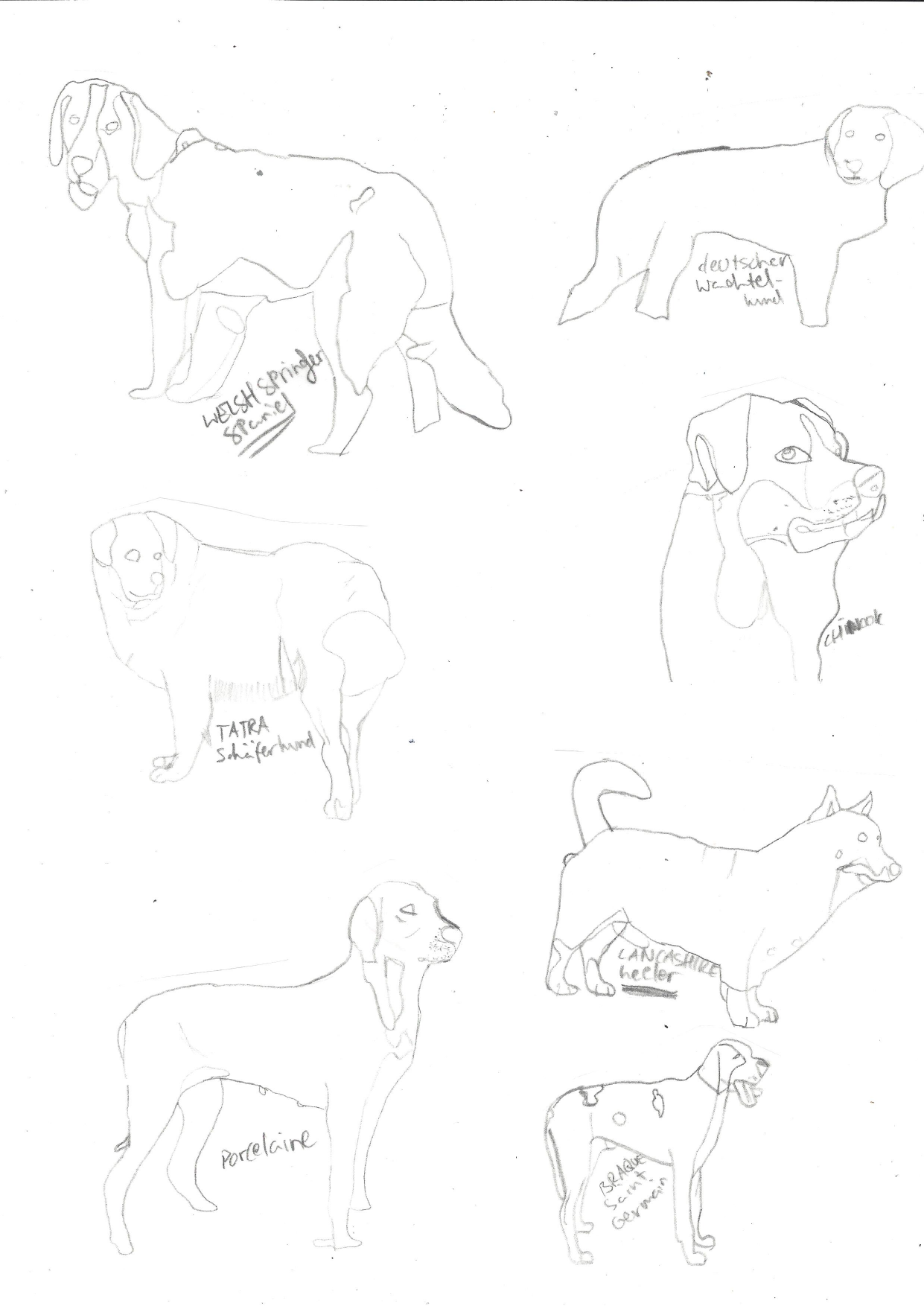
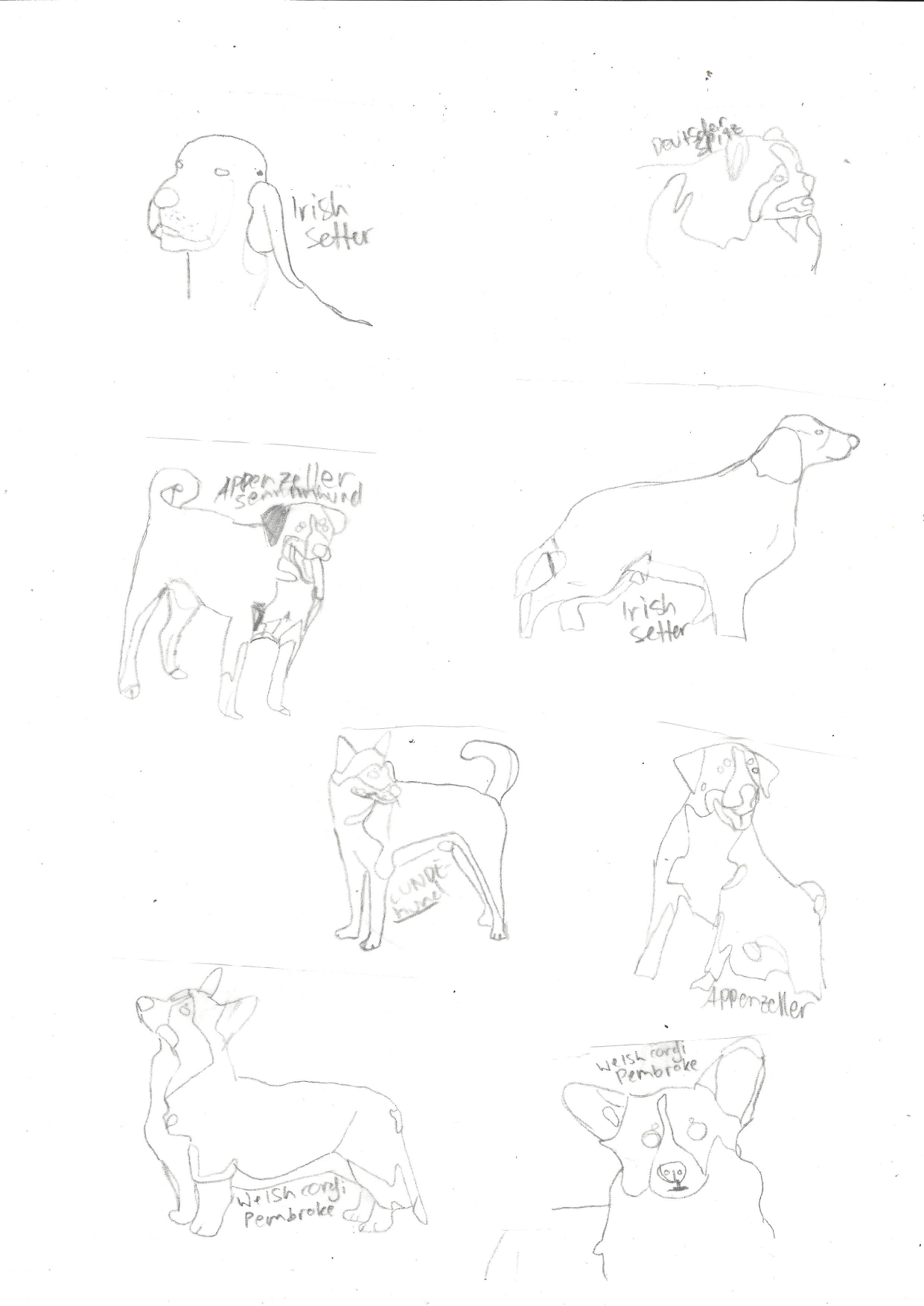
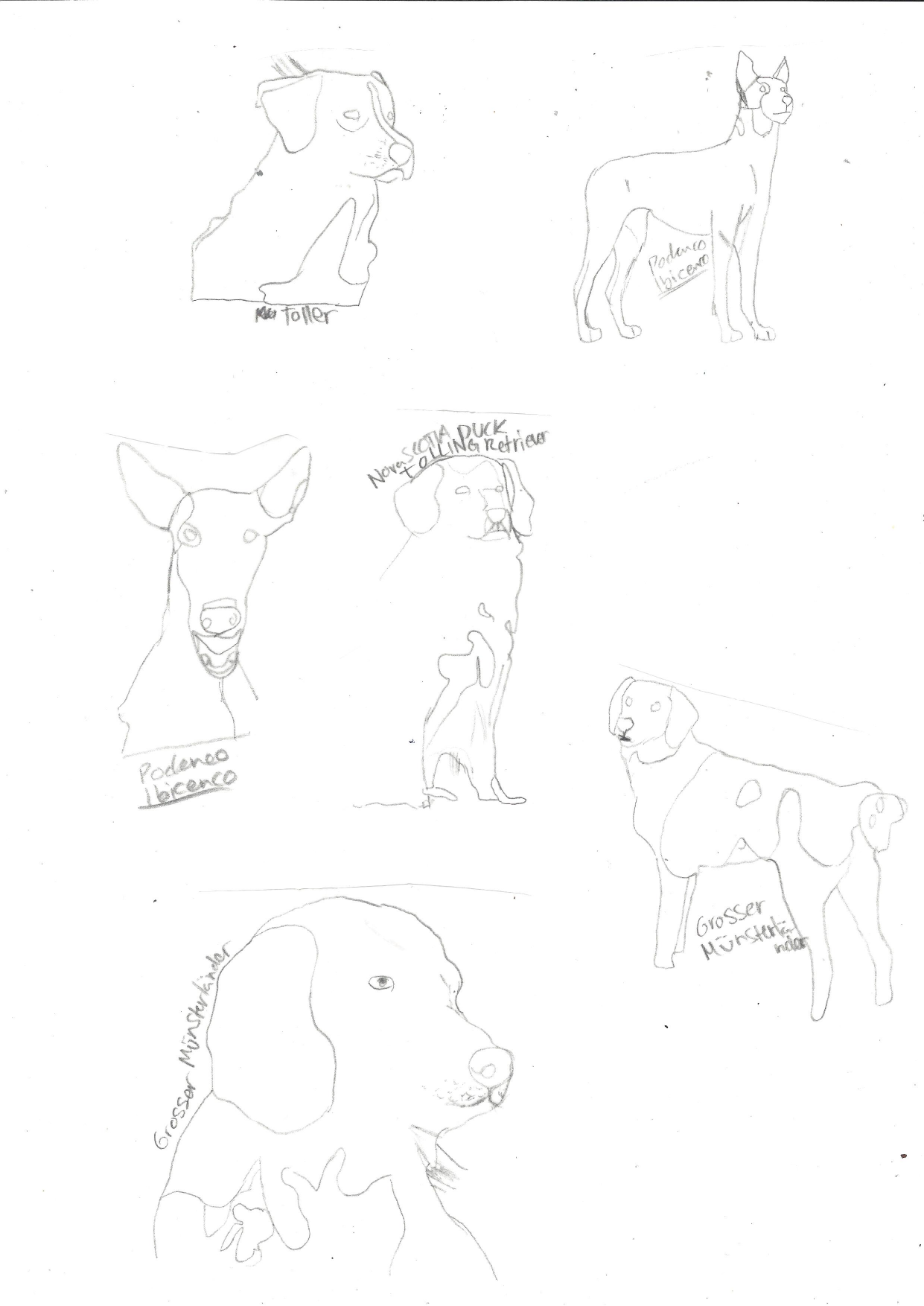
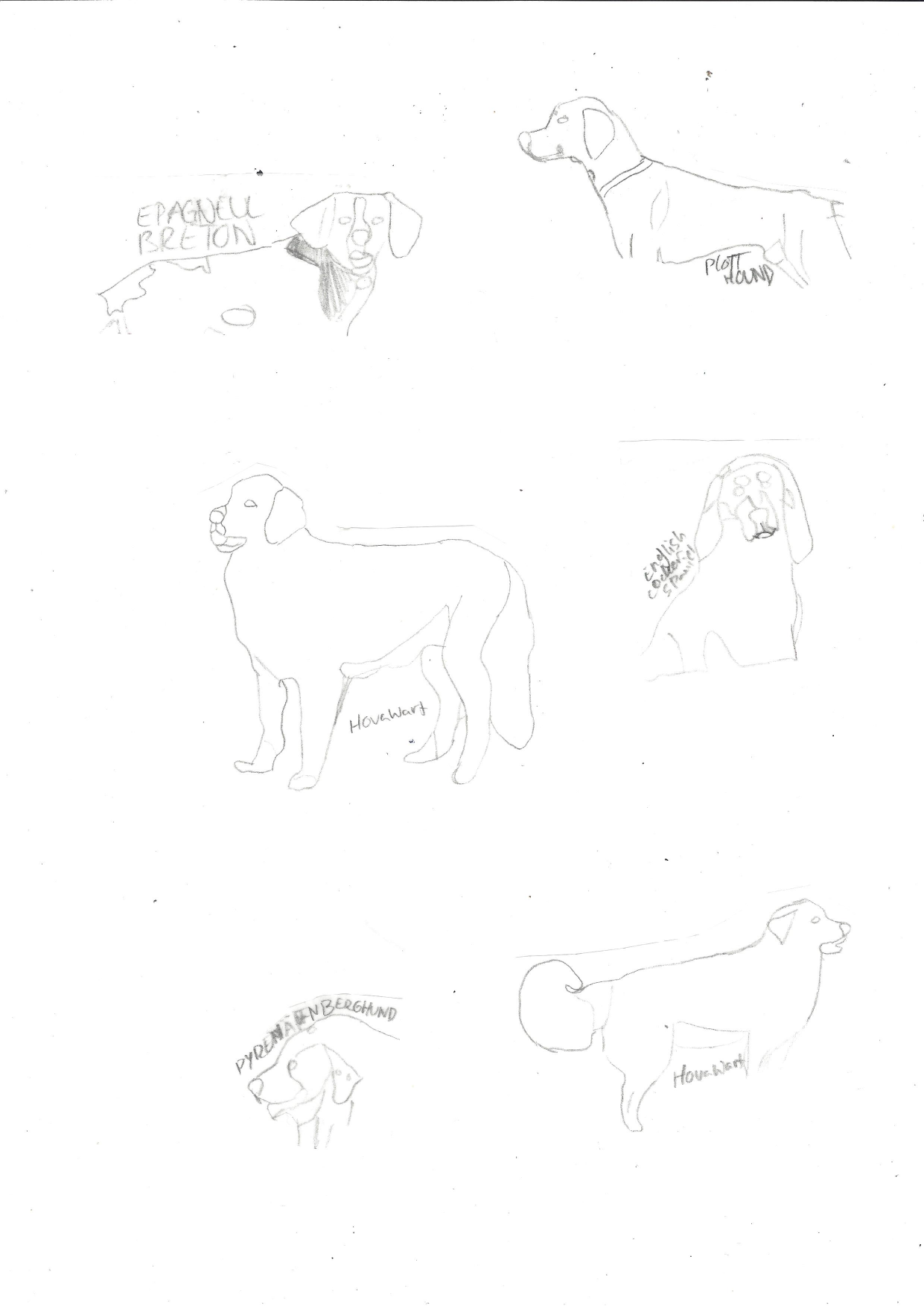
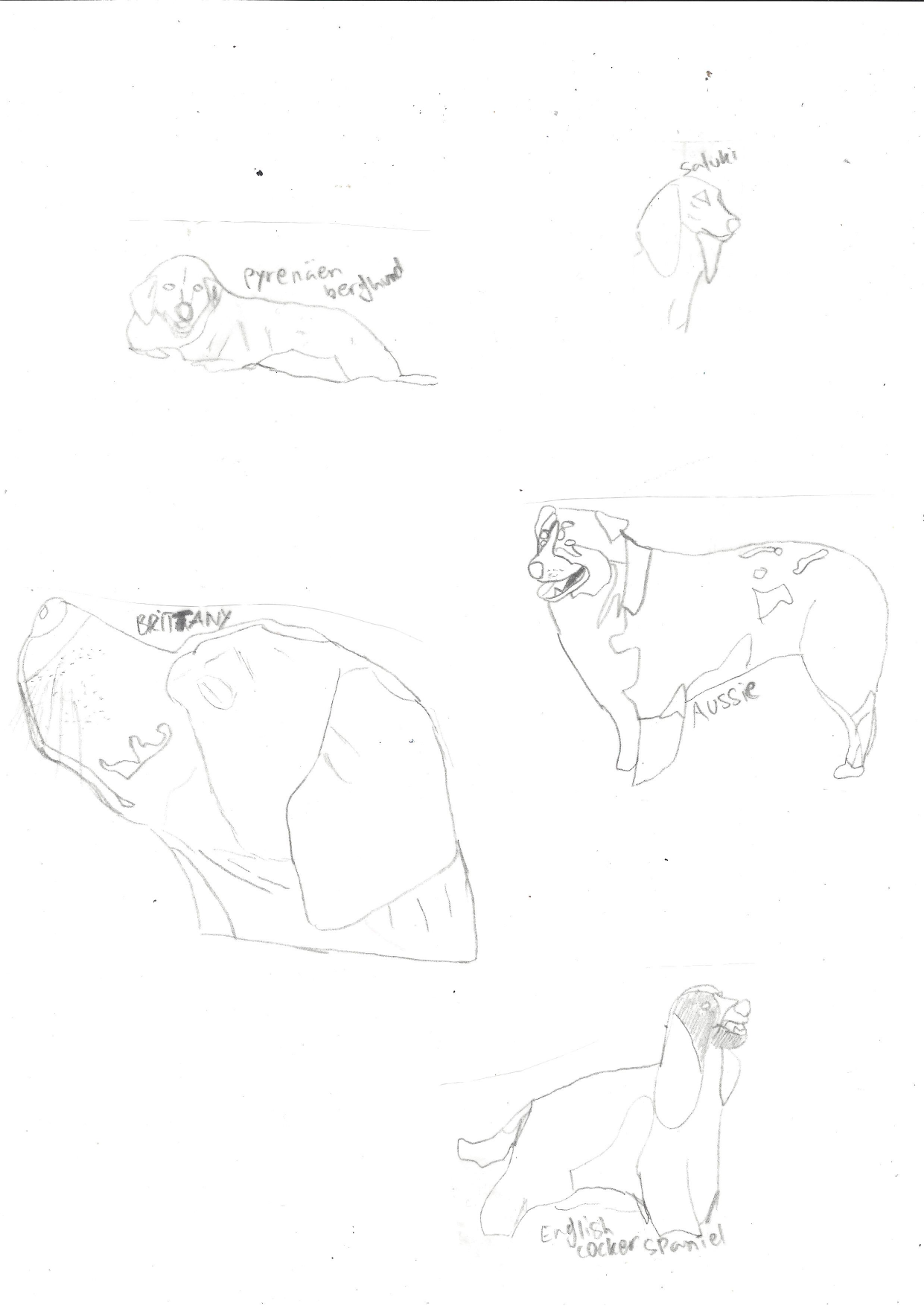
Anna
Text from Verena (Anna’s Grandmother)
My granddaughter is 15 years old and really wants a dog!
She is autistic and has difficulty connecting with other children, which is why she often feels lonely!
A dog would be a great companion. A door opener to the outside world that would bring structure to her everyday life and an important task!
A best friend who loyally supports her, listens patiently and has a calming effect when she is stressed. A friend who accepts Anna as she is!
Unfortunately, Anna’s parents‘ Caroline and Stefans financial circumstances are very difficult and the additional costs that a dog entails are not within their budget.
Text from Caroline (Anna’s mom)
Anna is extremely talented in dealing with animals. She is patient, persistent, sensitive, very eager to learn and already has a great deal of specialist knowledge.
This special connection to animals was an important part of Anna’s life from a very early age. She was allowed to take therapeutic riding lessons when she was 6 years old. At the same time, she learned everything about horses through self-study with several books and learned to recognize horse breeds.
At home she keeps rats and is a really caring rat mommy. (As long as it doesn’t involve cleaning them out ;))
She can even tame wild animals! In Green Park London she has always managed to attract the squirrels. They even sat on her lap and let Anna train them! We didn’t see much else of London other than this park!
For several years now, her main focus has been on dogs. Every dog she sees on the street is like a magnet to her. She always asks the dog owner these 5 questions;
“Can I pet the dog”
«What’s the name of the dog»
«How old is the dog»
«Is this a……..(she always guesses the breed of dog or asks if she doesn’t know.)
“Can I take a photo of the dog?”
All information is then saved on her cell phone. She has already recorded hundreds of dogs using this method. Her cell phone became her own lexicon.
At home, Anna spends hours reading books about dog breeds. With the help of the computer, she searches online for dogs that are looking for a home around the world and also notes down all the information.
And of course she watches all the dog programs on TV. For example, “Der Hundeprofi”, “Top Dog Germany”, “Martin Rütter – The puppies are coming” and on the English channels e.g. “Cruft” – Show from Birmingham or “Dogs Behaving Badly” and a several more.
Anna has acquired a great deal of knowledge through self-study and is always learning new things!
Anna has also been looking after several dogs for a long time. One of them she is allowed to take home regularly- Stella! A great dog! Anna has built a wonderful bond with Stella and has taught her an incredible number of tricks!
She wants her own dog so badly!
In the summer of 2024, Anna will finish her compulsory schooling and she wants nothing more in her life than to become a professional dog trainer! We really hope Anna’s wish will come true and she can make the best use of her talent!
Anna and autism
Text from Caroline (Anna’s mom)
The diagnosis came late! Due to her general developmental delay, neither teachers, special education teachers nor her pediatrician noticed that Anna is autistic. During countless visits to the Zurich Children’s Hospital, the diagnosis of autism was never considered.
It wasn’t until Anna was 12 years old that her father, after extensive research, suspected that our daughter might be autistic. After clarification, certainty followed by lots of insights! Some of Anna’s behavior that we couldn’t understand now made sense to us!
She is a fantastic child! She is very warm-hearted, generous, honest, correct and incredibly humorous and a rascal!
Anna is extremely independent in many things, but still relies on our help and others.
Autism
Text excerpt from Wikipedia
Autism, formally called autism spectrum disorder (ASD) or autism spectrum condition (ASC), is a neurodevelopmental disorder characterized by deficits in social communication and social interaction, and repetitive or restricted patterns of behaviors, interests, or activities, which can include hyper- and hyporeactivity to sensory input. Autism is clinically regarded as a spectrum disorder, meaning that it can manifest very differently in each person. For example, some are nonspeaking, while others have proficient spoken language. Because of this, there is wide variation in the support needs of people across the autism spectrum.
Autism dog
Text excerpt from www.blindenhundeschule.ch
The autism dog is a specially trained dog that accompanies children and adults on the autism spectrum. He is more than a therapy dog who promotes development and provides friendship through his mere presence. The autism dog takes on the role of a therapy dog and an assistance dog at the same time: As a therapy dog, it can help improve motor skills and vocabulary, allow for bonding and promote contacts. As an assistance dog, the autism dog actively takes on tasks to ensure safety. Autism dogs should not be confused with the use of dogs in animal-assisted therapy. While dogs are used as part of animal-assisted therapy in support programs for autistic children and thus promote motor skills, language skills, stress reduction and socializing, autism dogs are trained assistance dogs that help a single autistic person through various learned tasks.
When it comes to choosing an autism dog for a child, parents play a crucial role. You take complete responsibility for the dog while the dog builds a close bond with all family members and helps both the autistic person and the parents. An autism dog improves the life of the entire family.
Every autism dog is trained individually to meet the needs of the person affected. First, an autism dog goes through basic training and learns the proper behavior and standards of an assistance dog. After about 1 year, training begins on the individually helpful autism dog tasks.
Autism dog for Anna?
Text from Caroline (Anna’s mom)
Last year I inquired about the possibility of bringing in a assistance dog. But Anna made it very clear that she didn’t want that. Anna wants to become a dog trainer, so she would like to adopt a puppy that she can then raise and train herself. Makes sense! In addition, the demand for autistic dogs is already much higher than the supply and the waiting lists are correspondingly long. Many institutions also use a lottery system and only give dogs to small children or only to adults. The likelihood of getting an assistance dog for Anna would be dwindling anyway.
Crowdfunding
Text by Verena, Anna’s Grandmother
Since an assistance dog is not an option for Anna, the family will have to choose/buy a dog independently.
A dog could help Anna train her motor skills, increase her empathy and sense of responsibility, and increase her self-confidence.
The family’s financial resources are already very limited.
Anna’s father is 70% disabled, but does not receive any disability allowance or other support in Switzerland because he arrived with this disability.
Anna works with great enthusiasm and wholeheartedly and thinks about which dog is right for me and the family. She would like to visit 2-3 breeders because a dog is an adoption for the dog’s entire life.
I wish Anna’s dream will come true and that she has a loyal friend by her side for many years to come.
Cost of dog
Text – excerpt from Comparis
https://www.comparis.ch/tierversicherung/hunde/kosten
A dog’s life lasts on average around 13 years. In total, your dog will cost tens of thousands of francs during this time.
1. One-off costs for a dog in Switzerland
As a dog owner, you should expect to pay at least 1,580 francs in the first year. The costs differ depending on the dog breed and purchase. Any treatment costs at the vet as a result of an illness or an accident are not included.
Here you will find an overview of the most important one-time expenses:
Costs for dogs in the first year
Purchase from CHF 500
Basic equipment: leash, dishes, bowls, basket, blanket, toys from CHF 200.00
Combined vaccinations basic immunization from CHF 100.00
Deworming for puppies from CHF 10.00
Chip and pet passport from CHF120.00
Dog school from CHF 500.00
Dog box from CHF 100.00
Dog bag for small dogs from CHF 50.00
Total: from approx. 1580.00
Neutering a dog: Costs in Switzerland
You may only castrate your dog when it reaches sexual maturity at the earliest. Depending on the breed, this is the case from the age of six to twelve months. The cost of castration is determined by the veterinary practice. Castration is usually more expensive for female dogs than for male dogs.
Chemical castration (effective up to 14 months) CHF 250-500
Surgical castration (non-revocable) Males: CHF 250-500 Females: CHF 500-800
2. Recurring costs for a dog in Switzerland
A dog’s life lasts on average around 13 years. In total, your dog will cost tens of thousands of francs during this time. The table below gives a rough overview of the costs that can arise over the course of a dog’s life.
Annual cost of a dog
Food and treats CHF 250-1500
Dog tax (once per year) CHF 100-200
Liability insurance from approx. CHF 100.00
Toys CHF 50-100
Grooming and dog grooming CHF 50-1000
Veterinary costs for vaccinations, deworming, tick and flea treatments, check-ups from CHF 600.00
Total: CHF 1690-4100/year
We update the account balance here monthly;
Total Founding in CHF 4150.-
Total expenses in CHF:…….
We would be happy to publish photos of the puppy as soon as it is with us.
Donation account
UBS IBAN Nr:
CH45 0023 1231 8962 7540 E
Verena
5022 Rombach
Thanks for your support!



















































































































